




A CONTROVERSIAL court-ordered demolition in Benidorm could ultimately pave the way for an even taller structure to take its place. According to documents accessed by Alicante Plaza, the city council has confirmed that once the Gemelos 28 towers are taken down, new construction on the same site remains a possibility - this time rising to an astonishing 58 floors.
The twin towers of Gemelos 28, situated in the Punta Llisera area, have faced a demolition order since a 2017 ruling by the Valencian High Court (TSJCV), following a 2012 Supreme Court decision. The reason: a violation of Spain’s Coastal Law, as six metres of the buildings occupy public maritime-terrestrial land. Yet seven years later, the structures are still standing, and over 300 homeowners continue to live in legal limbo.
In February 2025, director general of Coasts, Ports and Airports, Marc García Manzana requested a new urban planning certificate from the Benidorm City Council. The aim was to determine whether the entire building potential of the plot could be realised
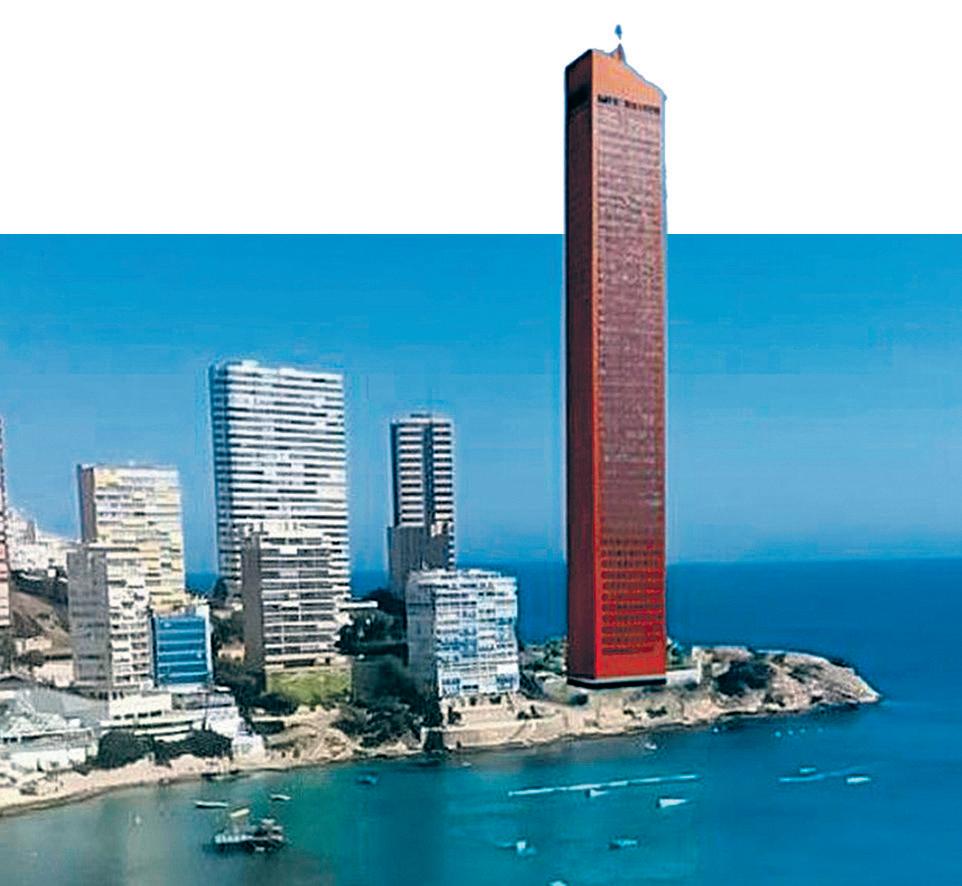
within the remaining legal area - excluding the protected coastal strip.
The city’s Architecture Department concluded that, within current planning and coastal regulations, a new residential tower could be built on a 459.72 square metre foo-
tprint - significantly smaller than the combined area of the existing towers. Surprisingly, this reduced footprint could support a much taller structure: a single tower of 58.39 floors.
However, the actual demolition of Gemelos 28

remains distant. The most recent timetable, as determined by the judicial commission of the TSJCV, sets the start of the demolition for October 2029. One of the main obstacles is the estimated €100 million cost that the Valencian government would face.





THE local authorities in l’Alfas del Pi have reinforced their commitment to beach safety with a full-scale emergency drill on Racó de l’Albir beach, aimed at testing the effectiveness of the town’s surveillance and rescue systems ahead of the summer season.
Organised jointly on Friday July 4 by the departments of Beaches, Public Health and Citizen Safety, the annual simulation is part of a wider effort to ensure that lifeguards and emergency responders are well-prepared to deal with a range of incidents that could arise in the coastal bathing area.
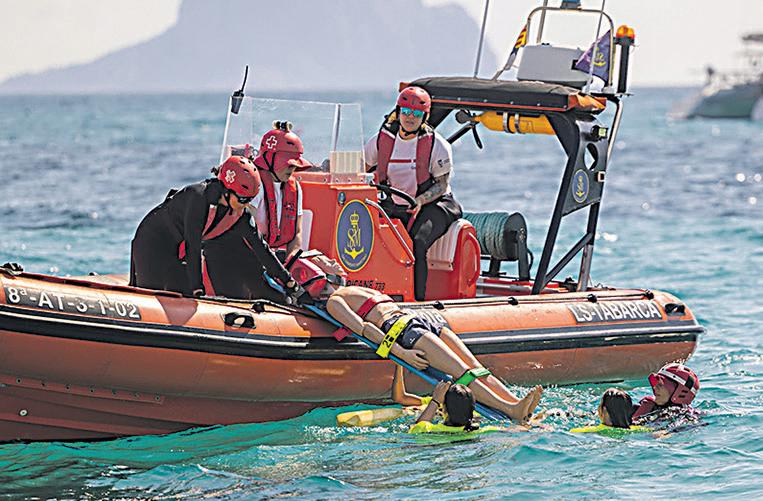
This year’s exercise began in one of the coves near the Serra Gelada Natural Park, simulating a rescue operation supported by a Red Cross lifeboat, which transported the casualty quickly
to the main beach. Onshore, a medical tent was set up where CPR manoeuvres were practised, ensuring a fully integrated response from sea to land.
Around 10 people took part in the drill, which was led by Alan Bernabeu Dalli, coordinator of the lifeguard and rescue services on Albir beach. The session confirmed that current protocols are adequate for managing emergencies on the beach. However, technical staff will now review the details of the exercise to identify areas for improvement if necessary.


REPSOL has published its latest list of establishments awar ded a Solete, the distinction granted by the prestigious Guía Repsol, Spain’s top gastronomic guide. These are beach bars and terrace venues that stand out for their good food and a relaxed, feel-good atmosphere. Eighteen new spots in the Comunitat Valenciana have received the award, three of which are in the Ma rina Alta: Cala Bandida in Javea, La Dinaora in On dara, and Cappuccino Coffee Shop in Orba.

Among the nearly 5,000 establishments now proudly displaying their yellow sticker across Spain, there are options to suit all tastes and occasions. Each café, bar, restaurant or beach bar with a Solete from Guía Repsol has its own story to tell, and this summer could be a perfect time to discover a few of them. Now in its 12th edition, the youngest category of Guía Repsol
There are options to suit all tastes and occasions.
maintains its philosophy of recognising those places you’d recommend to a friend - enticing proposals in warm, welcoming settings.
Since its founding in 1979, Guía Repsol has become a key reference point for promoting tourism and gastronomy across Spain. Millions turn to the guide each year for inspiration and practical tips to help plan their journeys and discover new destinations.



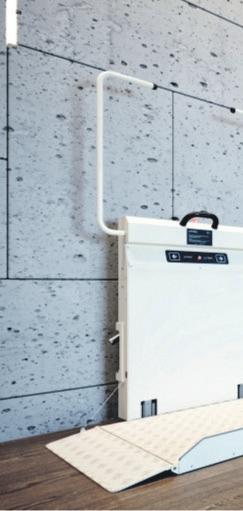



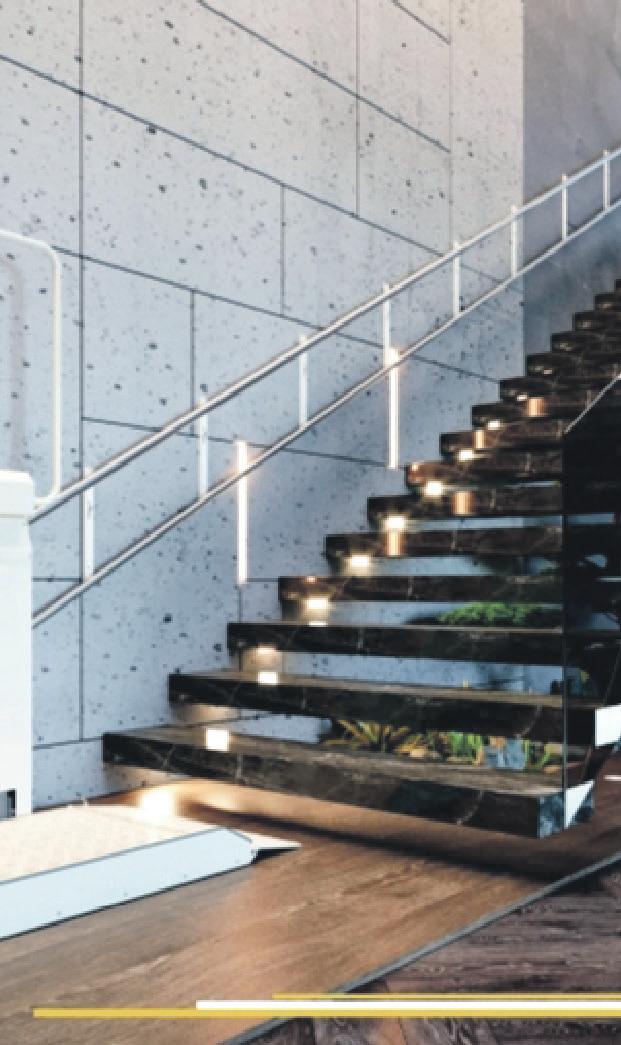






















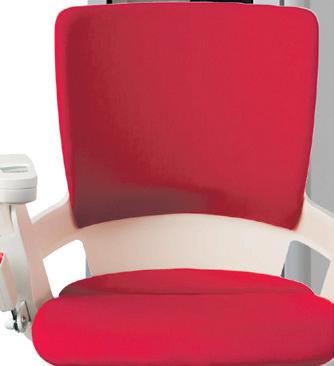











THINKING of sending money to your children or giving a family member a financial boost in Spain? You might want to double-check the rules before you hit ‘send’. Spanish tax authorities are watching private bank transfers and Bizum payments more closely than ever, and getting it wrong can result in hefty penalties.
Spain’s push to fight fraud and money laundering means banks are required to report transactions over €3,000 and ‘gifts’ or ‘donations’ above €6,000. But the scrutiny doesn’t stop there - any transfer, even modest ones between family members, can raise red flags if it seems out of the ordinary. Once flagged, the tax office (Agencia Tributaria) may demand proof of where the money’s going and why. If you can’t provide a satisfactory explanation, or if you haven’t declared a gift or donation, that’s where the trouble begins.

What many people don’t realise is that bank transfers to children, relatives, or even close friends can count as ‘donations’ under Spanish law. And donations, just like inheritances, are taxable. Failing to declare a sizeable transfer (or to pay the required
donation tax) can land you with fines ranging from €600 to €150,000.
How can you avoid problems? Declare any substantial transfer - especially if it’s more than €6,000 - keep detailed records of your reasons and, when in doubt, check with a tax adviser or gestor.
IF you live with someone aged 65 or over in Spain, you could be entitled to €1,150. According to Spain’s National Statistics Institute, more than two million households include someone aged 65+, meaning millions could benefit.
You may claim a €1,150 tax deduction per person on your Renta return, rising to €2,550 if they’re 75 or older. The same €1,150 applies to relatives with a disability of 33 per cent or more, even if they’re under 65.
To qualify, the elderly relative must live with you for at least half the tax year, earn less than €8,000 annually, and not file an IRPF return over €1,800.
Siblings sharing care must split the deduction. The Spanish government introduced this to ease the burden of caring for an ageing population.
Spain’s tax authorities have introduced a policy providing €1,150 annually for each person over 65 who resides in the household. Caring for a parent or grandparent may result in a reduced Renta bill. For example, María Sánchez in Madrid claimed €1,150 for living with her 67-year-old father, reducing her tax bill by approximately 10 per cent.
The rules: €1,150 per individual: This is the standard minimum. Spain allows this amount to be deducted directly from your taxable income for each live-in parent, grandparent or great-grandparent
bility: Relatives with a disability of 33 per cent or more qualify for the full €1,150 deduction, regardless of age.
https://sede.agenciatributaria.gob.es/Sede/ en_gb/irpf/campana-renta/informacion-ma
SPANISH shoppers have become accustomed to finding fewer crisps in the bag or slimmer chocolate bars on the shelf - a tactic known as shrinkflation, where product sizes shrink but prices stay the same. Now, Spain is fighting back with a new consumer law: from this year, companies must inform customers when a product is reduced in size but the price remains unchanged.
The law targets a practice now common in Spanish supermarkets. Until now, brands relied on the fact that most shoppers don’t weigh their groceries or count every biscuit. Everything from pasta and rice to ready meals and cleaning products has quietly shrunk - by as much as 10 per cent - while packaging and prices remain almost identical. The consumer association OCU has monitored the trend, warning that shrinkflation tends to hit hardest during periods of inflation.
Under the new rules, when a product’s weight, volume or quantity is cut but the price isn’t, companies will have 90 days to update labels and packaging. The information must be clearly visible, not hidden in the small print. It applies to all everyday items, from snacks to cereals and drinks.
With fines for non-compliance, the government hopes to restore trust and ensure shoppers know exactly what they’re paying for.
CORREOS has entered the digital finance space with a reloadable prepaid Mastercard. For €6, users can get a physical card that functions like a lightweight bank account, compatible with mobile wallets and top-ups via app or in-person.


The card comes with a Spanish IBAN for transfers, ATM withdrawals, and full integration with Apple Pay, Google Pay, and Samsung Pay. No credit check or paperwork is needed, making it accessible to students, migrants, and people in rural areas.
Unlike a traditional bank account, the card operates under e-money regulations (PFS Card Services Ireland). It’s not a deposit product but offers strong dayto-day functionality. Correos retains a physical footprint with 2,000+ offices, solving issues of financial exclusion in towns where bank branches have closed.
With more than 3,000 Spanish towns losing their last bank branch, Correos is now the last financial point of contact in many places. This product builds on earlier moves into insurance and utility payments, making Correos a hybrid of fintech and state-backed infrastructure.
It’s not a neobank in full, but for many it may be enough. In a country where trust in traditional banks is low and digital tools are not always accessible, Correos offers a no-frills, no-barrier entry into daily finance.


IN a heartfelt ceremony, the Rotary Club Internacional de l’Alfas del Pi celebrated its annual ‘Change of Collars’ - the symbolic handover that marks a new chapter in the club’s leadership. Caroline Bjälstam was ocially appointed as the new president, succeeding Rosa Cortés Aznar, who led the club for the past year.
teering, both from the town council of l’Alfas del Pi. During the ceremony, both praised the club’s ongoing social work and its role in strengthening community ties.












The event took place at The Comm Senior Living and brought together members, friends, and local o cials, including Martine Mertens, councillor for International Residents, and Isabel Muñoz, councillor for Cooperation and Volun-
Bjälstam is no stranger to the role. She served as the rst president of the club when it was founded in 2017. Her return to the presidency signals continuity in the club’s core mission: to promote values such as tolerance, service, education, and solidarity - with a strong commitment to supporting vulnerable communities and fostering local development.

As part of the recovery effort, Benidorm Fest donated €150,155 to the Red Cross.
evacuate residents and provide shelter, medical care, and emotional support.
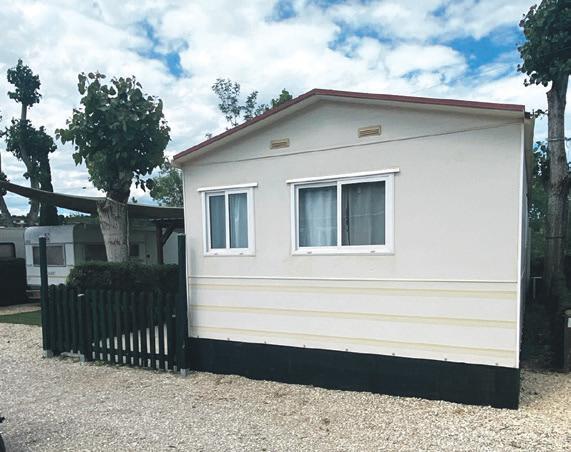




THE Spanish Red Cross has recognised Benidorm’s city council and the organisers of Benidorm Fest for their charitiy following the devastating DANA storm on October 29, 2024. During a ceremony in Valencia, councillor for Events Jesús Carrobles and Israel Martínez, Director General of Tourism for the Generalitat Valenciana, accepted the honour on behalf of the city.
The storm, a DANA (Depresión Aislada en Niveles Altos), unleashed torrential rains across the province of Valencia, ooding towns, damaging infrastructure, and leaving 228 people in urgent need. Emergency services, including the Red Cross, worked swiftly to
As part of the recovery e ort, Benidorm Fest donated €150,155 to the Red Cross, raised entirely through ticket sales. The funds supported relief and rebuilding in the worst-a ected areas.
Councillor Carrobles described the gesture as “a source of pride and satisfaction,” highlighting the festival’s commitment to standing with those in need.
Now in its fourth year, Benidorm Fest is not only Spain’s Eurovision selection event but also a platform known for promoting inclusion, cultural identity, and solidarity through music and civic engagement.
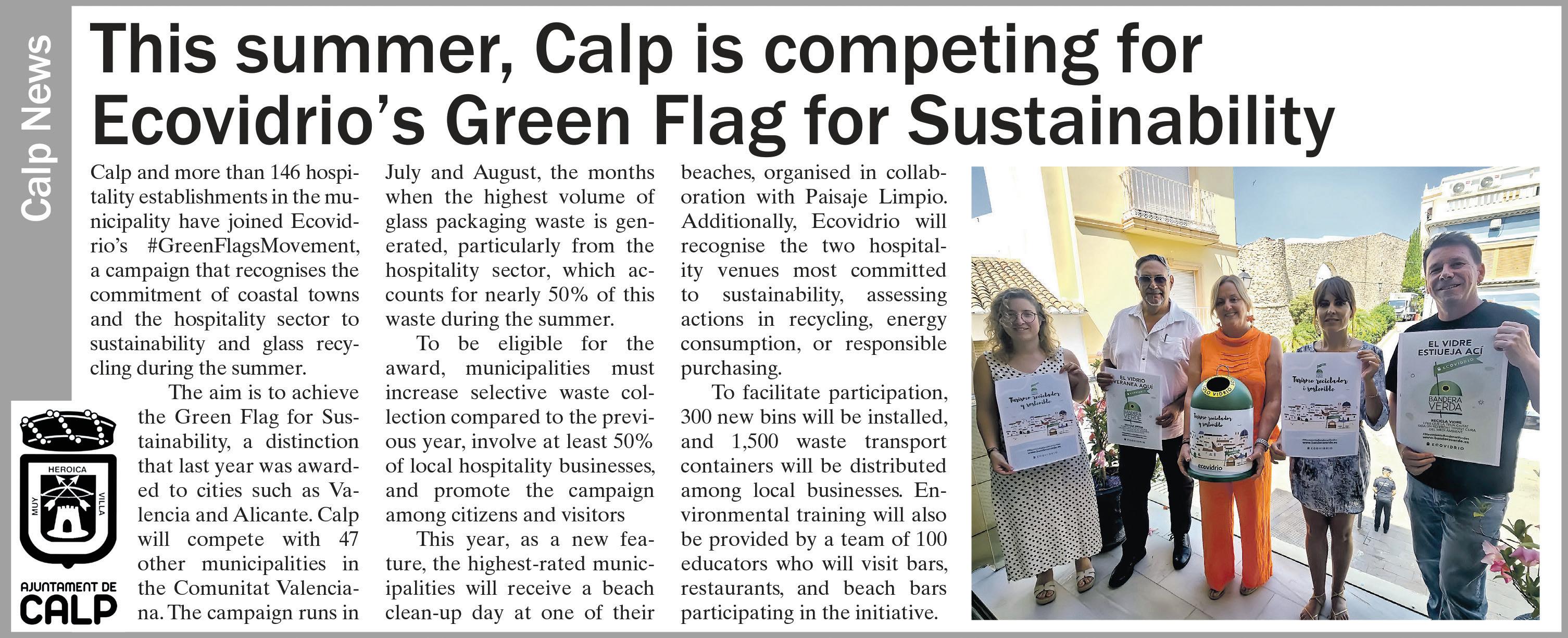
A SECTION of Arenal-Bol beach in Calpe reopened on Friday July 4 to swimmers after water quality tests confirmed the sea is in ‘excellent’ condition, according to the local council. The bathing ban, which had affected the stretch of coast near the mouth of the Quisi ravine, was lifted following the latest analysis of water samples, carried out by the regional Directorate-General for Water.
BENIDORM has launched Xato Cube, Spain’s first fully interactive smart visitor hub, reaffirming its role as a leader in tourism innovation.
Developed by Restaurante El Xato and data firm Inteligencia Turistica (IT), the AI-powered cube was unveiled at the town hall by mayor Toni Perez and regional tourism officials.
This 4.5m x 3.5m installation combines immersive screens and real-time data to offer personalised visitor experiences. It also supports sustaina-
“The results of the water analyses of the Arenal-Bol beach reveal that it is in an excellent state, which is why the town council has reopened the section of the beach at the mouth of the Quisi ravine for bathing,” said Calpe Town Council in an official statement.
The reopening comes after a temporary closure prompted by a suspected case of wastewater pollution. Discoloured water had been observed flowing into the Mediterranean from the ravine, prompting concern from both the town council and the regional department
ble tourism by managing visitor flow, easing pressure on busy areas, and promoting regenerative activities.
Xato Cube supports key sectors including MICE (meetings, incentives, conferences and exhibitions), gastronomy, and marine-focused tourism.
With over 3,000 MICE-ready hotel beds and a 30 per cent rise in events last year, Benidorm aims to solidify its position as a top destination.
The cube will remain in the town hall until midJuly, with guided sessions for tourists and businesses, before moving to La Nucia and later to Colombia for international demonstrations.
Funded by Spain’s Ministry of Industry and the EU’s ‘Ultima Milla’ programme, the project involves Benidorm, Altea, and La Nucia.
As Spain’s first real-time tourism data-sharing model, Xato Cube boosts
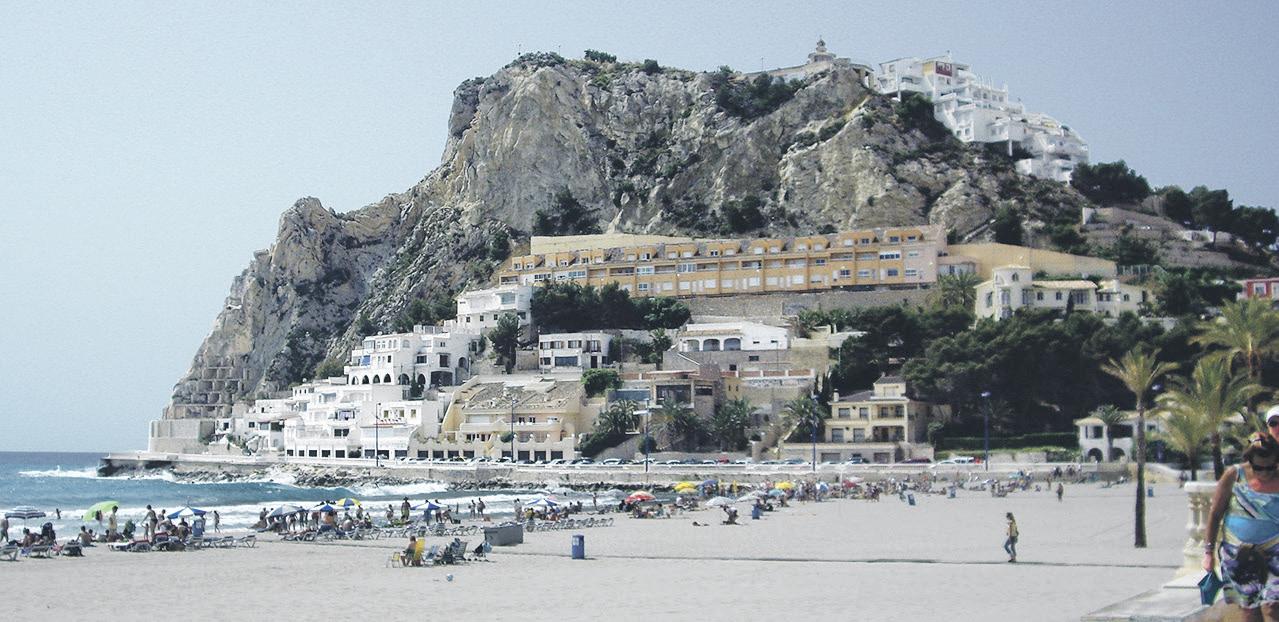
planning, competitiveness, and cooperation.
Already recognised as a European Green Pioneer for 2025, Benidorm continues to lead the way in sustainable, tech-driven tourism.
of environment (Conselleria de Medio Ambiente).
In response, the local authorities quickly cordoned off the affected area and raised the red flag to signal a bathing ban on Thursday July 3. They also removed the blue flag - an international symbol of environmental quality - and constructed a temporary sand barrier at the ravine’s mouth to prevent further discharge into the sea.





IT started with cheap pints, but now Uncle Ron’s Bar in Benidorm is making headlines (and TikToks) for something even bigger – literally.
Enter the Belly Buster Challenge, a full-English breakfast mountain that has become a viral sensation, drawing in brave Brits from across




the UK and beyond. Located on Calle Londres, Uncle Ron’s is offering up a giant breakfast for €9 - and if you can finish it in 20 minutes, it’s absolutely free.
The prize? Your name on the wall of fame and bragging rights to last a lifetime.
The catch? Almost no one can actually finish it. That’s enough to feed a small family – or at least two very hungover tourists. Clips of people attempting the challenge have exploded on TikTok.
From dramatic near-victories to early white flags, videos are clocking up thousands of views.
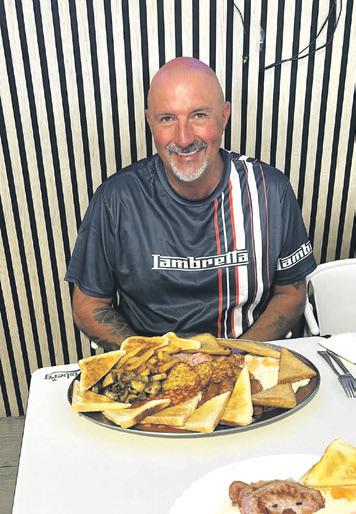
One particularly popular post shows a man nearly finishing before collapsing into his chair, defeated by the final sausage.
YouTube has jumped in too, with vloggers trying (and mostly failing) to take on the plate.
Uncle Ron’s is now firmly on the foodie map, and it’s not just about the challenge.
As the challenge took off, so did the online debates. Photos of unfinished plates sparked a flurry of Facebook, TikTok, Instagram and Youtube comments, with some users calling it a disgrace. Others were quick to defend the challengers.


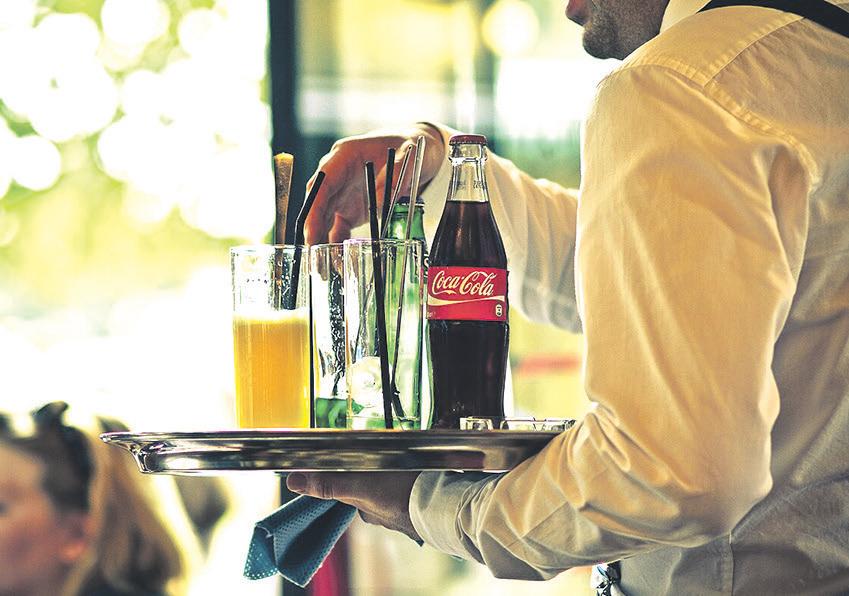
THE labour market in the Costa Blanca region is showing signs of continued recovery. In June 2025, the number of people registered as unemployed fell to 7,478 - a figure not seen since July 2008, according to the latest figures released by the Observatori Marina Alta based on data from Labora, the Valencian employment service.
The drop in unemployment is significant both on a monthly and annual basis. Compared to May, there were 245 fewer people out of work - a reduction of 3.2 per cent. Year-on-year, unemployment has fallen by 622 people, or 7.7 per cent compared to June 2024.
Analysts from the Observatori highlight that such seasonal improvements are typical at the beginning of summer, coinciding with the launch of the high tourist season. However, they also stress that “this year’s figure sets a new low in the historical series,” marking a notable milestone in the region’s post-crisis recovery. Alongside the fall in unemployment, hiring figures have seen a sharp increase. A total of 4,089 employment contracts were signed in June, marking a month-on-month rise of 40.9 per cent and an 8.8 per cent increase compared to the same month last year.
The report notes that unemployment continues to disproportionately affect women. As of June, 57.5 per cent of the unemployed in Marina Alta were women - a clear indicator that gender inequality remains a persistent issue.



DENIA Town Council’s Department of Commerce has wrapped up the rst edition of Barrival, a new initiative aimed at boosting small businesses outside the historic town centre. Organised through the O ce of City Strategies and the AFIC in Creama, the campaign distributed digital vouchers



€3,200
via the D-Denia app to encourage local shopping in the neighbourhoods of Paris-Pedrera, Camp Roig and parts of Saladar. With a total budget of €5,000, the campaign issued 270 digital vouchers
worth €10, €20 and €50. Of these, 168 were redeemed in participating establishments, representing 65.2 per cent of the total and resulting in a direct injection of €3,260 into the local economy.
Fifteen businesses took part in this rst edition, ranging from stationery shops and driving schools to health and wellness centres, beauty salons, grocers, tech retailers and leisure providers.
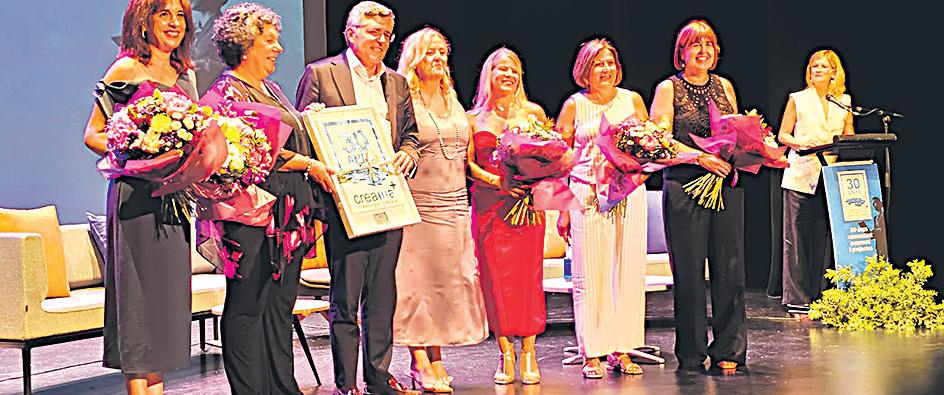
ON Friday July 4, Calpe hosted a special gala to celebrate the 30th anniversary of CREAMA - the Consortium for the Economic Recovery and Activity of the Marina Alta.
The event brought together institutional representatives, technical staff, business associations and local organisations from across the region to honour three decades of shared work.
Carlos Pastor Ventura, provincial deputy and president of CREAMA, opened the ceremony by highlighting the consortium’s long-standing commitment to public service and regional cohesion
Rosarío Donderis, CREAMA’s current director, echoed those senti-

ments, stating: “We are no longer a utopia, but a reality in Marina Alta - supporting people into employment, energising businesses, connecting individuals and ideas, and achieving the small miracle of reaching agreements every day.”
The gala featured a series of round-table discussions that reflected on the history and achievements of CREAMA, with testimonies from technicians, beneficiaries and collaborating organisations. In its 30-year journey, CREAMA has achieved remarkable figures: over 700,000 people supported, €73 million managed - more than €5 million from European funds - and 85 regional projects carried out.









THE Tramnochador, TRAM d’Alacant’s special night-time service, is back for the summer season. It will run every weekend throughout summer until Saturday August 30, covering lines 1, 2, 3, 4 and 9.
This extended service is part of a broader strategy by Ferrocarrils de la Generalitat Valenciana (FGV) to improve public transport options across the region, including a
POP band Bombai will headline a free open-air concert on Friday July 10 at 11pm on Calle La Vía in Denia. The event is part of their anniversary tour ‘10 años contigo’ and a highlight of the town’s annual Fiestas Mayores, a week-long celebration honouring the patron saint Santíssima Sang.
The Fiestas Mayores are a blend of tradition and festivity, featuring religious processions, bous a la mar (bull-running into the sea), fireworks, parades, and live music. These vibrant events draw locals
boost in night-time connections for TRAM d’Alacant and Metrovalencia.
The goal is to offer safe, sustainable alternatives for late-night travel - especially for young peoplewho might otherwise rely on private vehicles.
The Tramnochador will operate every Friday and Saturday night, as well as on Thursday August 14, the eve of the Assumption of the Virgin, a public holiday in Spain.
Train and tram frequencies will vary depending on the line and time of night. Passengers are encouraged to check schedules via:
The official website: www.tramalacant.es.
The free customer service hotline: 900 720 472
With this initiative, FGV aims to ensure that thousands of residents and visitors can enjoy Alicante’s nightlife with greater ease and peace of mind.

A NEW report has uncovered that the Oliva Nova Golf resort has been irrigating its course with potable groundwater from the protected Marjal de Pego-Oliva wetlands for the past 30 years - without the required authorisation.
and visitors alike, creating a lively atmosphere throughout the town.
Bombai, formed in Valencia, rose to fame in 2017 with their summer hit ‘Solo si es contigo’, a collaboration with Bebe. Their upbeat sound, which mixes pop, reggae and surf-rock, has won them a devoted following across Spain. Other popular tracks include ‘Vuela’, ‘Tú me has cambiado’, and ‘Imparables’.
The July 10 programme also includes bous a la mar at 10am, children’s workshops at 12.30pm, a religious

procession at 6pm, and fireworks at 9.30pm, ensuring a full day of entertainment for all ages.
Celebrating a decade of music, Bombai’s concert promises a festive night of sunshine vibes and singalongs - the perfect way to enjoy summer on the Costa Blanca.
The revelation comes as environmental group Acció Ecologista-Agró formally objects to a pending application by the developer Construcciones Hispano Germanas (CHG) to legalise the use of water from the Ullalet well, located near the natural park, for golf course irrigation. According to Agró, CHG has been tapping this source since the resort opened in 1995, in breach of Spain’s Water Law.
The evidence is contained in a report



from the Júcar River Basin Authority’s (CHJ) own Office of Hydrological Planning. It states that the golf course is currently irrigated by a pumping station located near a lake between holes 1 and 7, which receives water directly from the Ullalet well. The same report notes that sports fields forming part of the Oliva Sports Centre also occupy land originally dedicated to citrus farming, which did hold water rights.
Agró describes this as a ‘clear violation’ of national water regulations, which stipulate that groundwater granted under concession for agricultural use - specifically for irrigating citrus crops - cannot be repurposed for leisure activities like golf without prior approval.














IN a significant step towards greater accessi bility and transparency, the Calpe Town Hall has launched official WhatsApp and Telegram channels in English to keep residents fully informed of local news, events and emergencies.
The initiative is part of a broader communications upgrade, which now offers dedicated information channels in three languages - Spanish, Valencian and English. This move is designed to meet the needs of Calpe’s multilingual population, including the large community of English-speaking expatriates who call the town home.

Until now, the town’s presence on Telegram was limited to a single Spanish-language channel.
Until now, the town’s presence on Telegram was limited to a single Spanish-language channel with nearly 2,000 subs-
THE Gandia Social Club and the Oliva U3A join forces once a month to have a night-out to meet friends, to enjoy good food and entertainment in one of the many restaurants in their locality. On Friday, June 27, the venue was Salones Moli Canyar, the old rice mill site in Potries, with The Entertainers providing the music. Some 140 members assembled in-
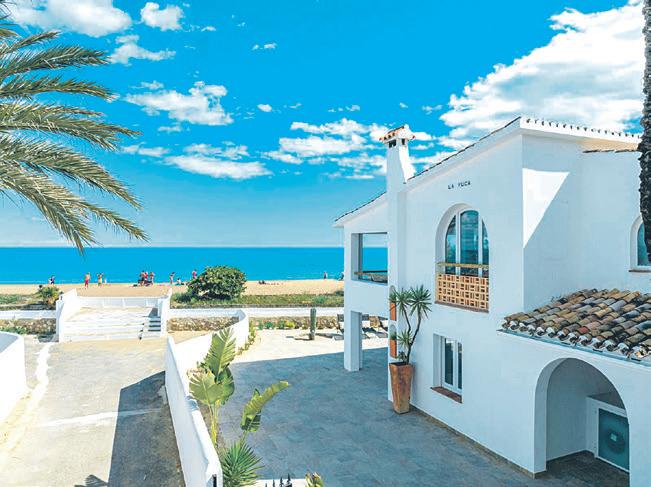
cribers. With the launch of three separate language-specific channels on both Telegram and WhatsApp, residents can now choose to receive news and updates in the language they feel most comfortable with.
The new channels will be managed directly by the town hall’s communications department, which guarantees that all information published is accurate and verified. This is especially relevant in an era where misinformation and rumours can spread rapidly via messaging platforms.
The service will also be used to issue real-time alerts during emergencies or in the case of natural disasters.
doors, as it was too hot for the planned outdoor dinner, greeted friends and settled down to their superb dinner.
With the dinner nearing completion some of the ladies were up on the floor reliving dance moves from their past and, once The Entertainers started their second set, the dance songs and memories came flooding back. It is amazing how a few chords of a song from some 40 years ago suddenly triggers the feet into wanting to dance and the brain to release the long-forgotten words. With the songs coming thick and fast the dance floor was always full of dancers, many singing along as were a
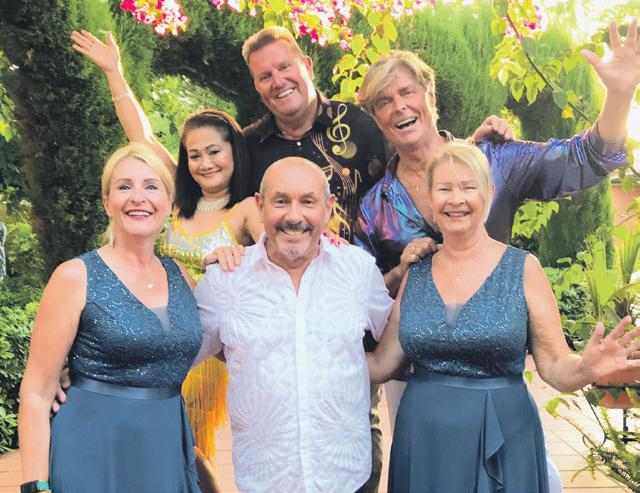
lot of the members still seated at the tables.
Another super evening for the dining club - where are they off to next month? The Entertainers’ next show - Alcalali Fiesta on Saturday July 19.
IF one clear lesson emerged from the Spanish nationwide power outage on Monday April 28, it is the pressing need for municipalities to be prepared for critical emergency situations. In the aftermath of the blackout, which caused no significant incidents in El Poble Nou de Benitachell, the local council has taken steps to enhance its emergency response protocols and contingency plans.
Following the recent approval of the Municipal Territorial Emergency Plan, the Municipal Action Plan for Seismic Risk, and the Municipal Action Plan for Wildfire Risk, and as work continues on the Evacuation Plan for Cala Moraig, the council has taken another step forward. At the last ordinary plenary session a budget amendment was passed to allocate funding for the purchase of two electric generators and 15 walkie-talkies.
Alongside the investment in technical re-

sources, the Department of Citizen Safety, headed by María José Ivars, is preparing a public awareness campaign. The initiative will include informative talks across various residential areas and neighbourhoods.
The budget amendment, financed through the council’s treasury surplus, will provide €290,500 for safety improvements and other local investments.
ARTIST and activist Jeane - known for her provocative public installations made from rubbish and recycled materials in Denia and Javea - has launched a bold new campaign challenging the use of San Fermin’s name in connection with Pamplona’s bull-running festival.
Her open letter, shared with Euro Weekly News alongside one of her latest visual pieces, questions the moral contradictions behind associating a saint revered by millions with a celebration marked by animal cruelty, drunkenness, and violence.
Jeane, who lives and works in Denia, has become known for her ‘Ugly Faces’ series - grotesque, expressive portraits made from cigarette butts and cardboard collected during local beach clean-ups. But this time, her target is not tobacco waste, but

The contradictions behind associating a saint revered by millions with a celebration marked by violence.
cultural hypocrisy.
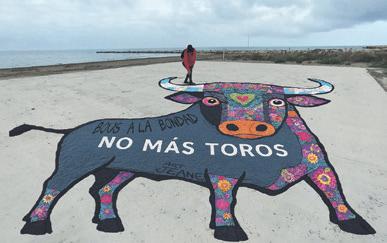

“I write as an artist, as a citizen, and as someone who defends life in all its forms,” Jeane begins. “What I see each year during the San Fermin festival is a grotesque spectacle disguised as traditionone that dishonours the very name it claims to celebrate.”
Now, her latest piece draws a parallel between spiritual decay
and environmental degradation. “Whether it’s the land or the sacred, we treat everything with the same careless hand.”
The visual piece accompanying her letter depicts a half-saint, half-bull figure, stitched with wire and plastic, head bowed under a rain of bottles. It’s striking, unsettling - and intended to provoke.
AS temperatures rise across the Spanish Mediterranean, so does the defence of one of the country’s most cherished customs: the midday siesta. This summer, the towns of Javea and Calpe, both situated along the Costa Blanca, have stepped up their efforts to preserve peace and quiet during the hottest months of the year, enforcing strict regulations to limit construction noise and other disturbances.
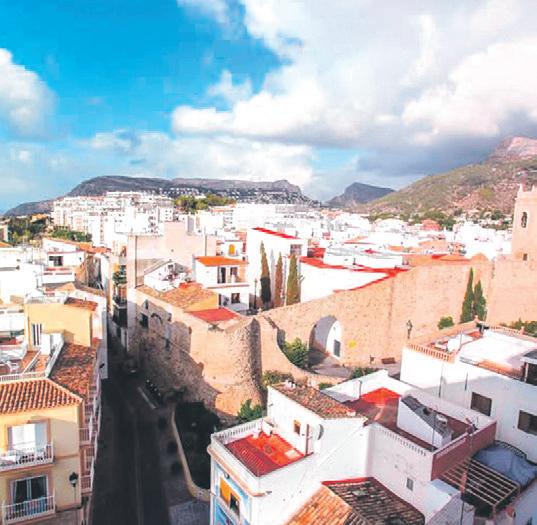
No noisy work is permitted between 3pm and 5pm.
From July 1 to August 31, the town hall of Javea has issued a municipal notice that sets out clear acoustic boundaries across the town. It defines ‘daytime hours’ as between 9am and 3pm and from 5pm to 8pm, with all other times falling under the ‘night-time’ category - when any
noise-producing activity is subject to tighter restrictions. Sundays and public holidays come with even stricter rules, with a general ban on any activity that could generate noise or vibrations.
Crucially, no noisy work is permitted between 3pm and 5pm, a window that coincides precisely with the traditional siesta - when many locals retreat indoors to rest during the peak heat of the day. Between 8pm and 9am, all works that could disturb neighbours are also off-limits.
In Calpe, located just a few kilometres down the coast, the local council has revived its summer noise control ordinance, also in force from July 1, placing similar limits on construction work.

THE right of pre-emption rights in property sales exercised by the Generalitat Valenciana has long been a source of doubts, inquiries, and delays in real estate transactions. This right affected not only social housing (VPO) but also properties surrendered to the bank to cancel the mortgage debt (dación en pago), foreclosure processes, and more. However, the recent enactment of Law 5/2025 represents a significant regulatory change. We analyse it, below.
When and why pre-emption and redemption rights applied. Decree Law 6/2020. Decree Law 6/2020, dated June 5, granted the Generalitat Valenciana a preferential right to acquire certain properties before they were sold
to third parties. In which cases did this right apply?
- Properties transferred back to the bank in lieu of mortgage repayment: when the owner handed over the property to the bank to settle their mortgage debt.
- Foreclosures: when the bank took ownership of the property after judicial proceedings for non-payment.
- Bulk sales: such as when 80 per cent or more of the units in a building were sold, or when 10 or more properties were transferred in bulk.
In all these cases (regulated by article 10 of the mentioned Decree), both seller and buyer had to notify the Valencian authorities before formalising the sale at the Notary’s office. They had to wait for the administration’s formal commu-
nication on whether it would exercise its right or not, meaning acquiring that property under the same conditions and with preference over the buyer. These procedures often delayed real estate transactions significantly.
Law 5/2025: Farewell to pre-emption rights in property sales in the Valencian region.
Published in the Official Gazette on May 31, 2025, Law 5/2025, of May 30, introduced a key change.
In its sole repealing provision, section f), Decree Law 6/2020 is completely abolished. This means it is no longer necessary to process pre-emption and redemption rights before the Valencian administrative authorities in these types of sales. That is,
when the property was acquired by deed in lieu of a mortgage debt, a foreclosure process, etc.
The law came into effect on June 1, 2025.
Does pre-emption and redemption rights still exist in any case? Social housing.
This change does not imply that pre-emption and redemption rights have completely disappeared. These rights remain in force for social housing (known in Spain as ‘VPO’). In such cases, it is still necessary to carry out the pre-emption procedure before the Valencian regional authorities, as has been done until now. It is also important to remember that these properties are often subject to other limitations such as maximum sale price, etc.
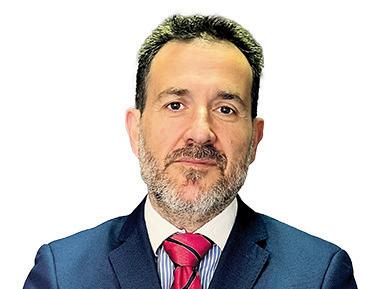
If you are thinking of buying or selling a property that was once adjudicated to a bank or transferred by deed in lieu of foreclosure, you no longer need to process pre-emption and redemption rights before the Valencian authorities. However, if it is a social housing property (VPO), these rights remain fully in force and must be properly processed with the administration. At White-Baos Lawyers, we are experts in real estate law. Contact us without obligation. The information provided in this article is not intended to be legal advice but merely conveys information relating to legal issues.

PUERTO DE XABIA Lodge No. 58 has presented a donation of €2,025 to Help of Marina Alta, reinforcing the Freemasons’ longstanding commitment to charitable work.
The funds were raised at the Ladies Gala held at Salones Carrasco earlier in the year. In addition to ticket sales, contributions came from a Grand Prize Draw, an auction of select items and personal donations
from local Freemasons.
Worshipful Master John Young commented, “Supporting good causes is a cornerstone of Freemasonry. Help of Marina Alta is one of our chosen charities this year, and I am immensely proud of our Lodge’s effort in raising this significant sum.”

DENIA has captured 284 wild boars so far this year, in what has become one of the most pressing issues for residents across several neighbourhoods. Representatives from the neighbourhood associations met with local political groups to discuss a wide range of matters affecting quality of life in the town. While recurring concerns such as mobility, waste management and safety once again dominated the agenda, a new and urgent topic emerged: the increasing
presence of wild boars in urban and residential areas.
The control of urban wildlife took centre stage during the meeting. Town officials reported 143 wild boars caught in municipal traps during the first quarter of the year, followed by another 141 in the second quarter. These numbers do not include additional captures carried out by the regional Ministry for the Environment.
Over the past decade, wild boars have become an increasingly visible presence
along Spain’s Mediterranean coast, particularly in the Costa Blanca region. Drawn by the easy availability of food and the shrinking boundaries between urban and rural spaces, these animals are now regularly spotted in residential areas, golf courses, and even city centres.
Looking ahead, the council announced plans to launch a public tender for a specific contract to manage other urban animals, including pigeons, seagulls and doves.
Accepting the cheque on behalf of Help of Marina Alta, President Candy Wright MBE said, “These funds will enhance our Care at Home service, enabling more elderly and infirm residents to remain safely in their own homes while long-term
support plans are arranged. We are deeply grateful to John, Jenny and all the Freemasons of Puerto de Xabia Lodge No. 58 for their generous donation.”
For more information on Freemasonry in the Province of Valencia or to enquire about becoming a Freemason, visit www.glpvalencia.com or email Matthew James on sec@glpvalencia.com.

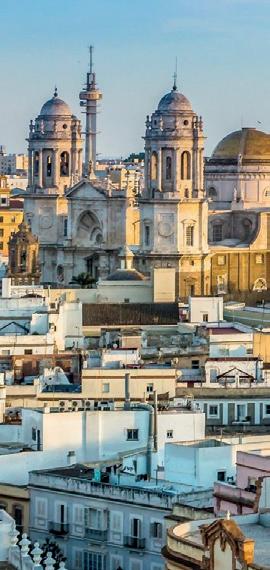
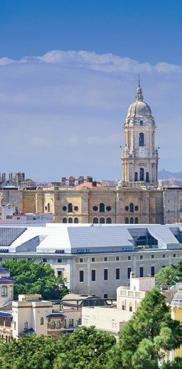
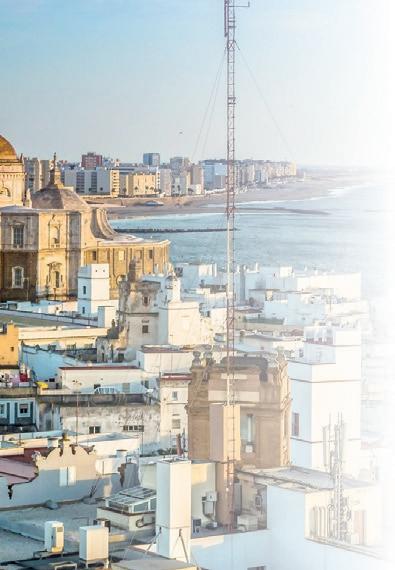

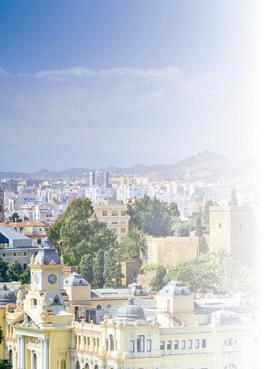



DESPITE the high temperatures currently being experienced, U3A Marina Baixa groups continue to provide activities and events for their members. Consideration is given to the importance of staying cool and out of the sun when possible.
On Thursday after -
noons at the Albir Social Centre, the Craft group meet at 12.30pm to share ideas and skills associated with a range of crafts and on Friday afternoons at 2.00pm the shade offered in the
Eucalyptus Park in Albir provides the perfect venue for a few games of friendly Petanca, with the President’s relaxed rules applied!
The afternoon is rounded off with drinks and


social time in the Eucalyptus café. New members are always welcome.
On Monday July 14 the picnic group will be meeting at around 2.00pm, again under the shade
of trees, on the Terra Mitica road overlooking Benidorm and La Cala.
Followed on Friday July 18 with Wine and Dine at Restaurante Xorta near to Guadalest.
Looking ahead to Sep -
tember, there will be a day trip to Gandia at a cost of only €20.
If you would like to become a member of U3A Marina Baixa you can join at their next General Meeting on Monday July 28 at 11.00am at the Casa de Cultura, Alfaz del Pi. Membership is only €10 for the year.
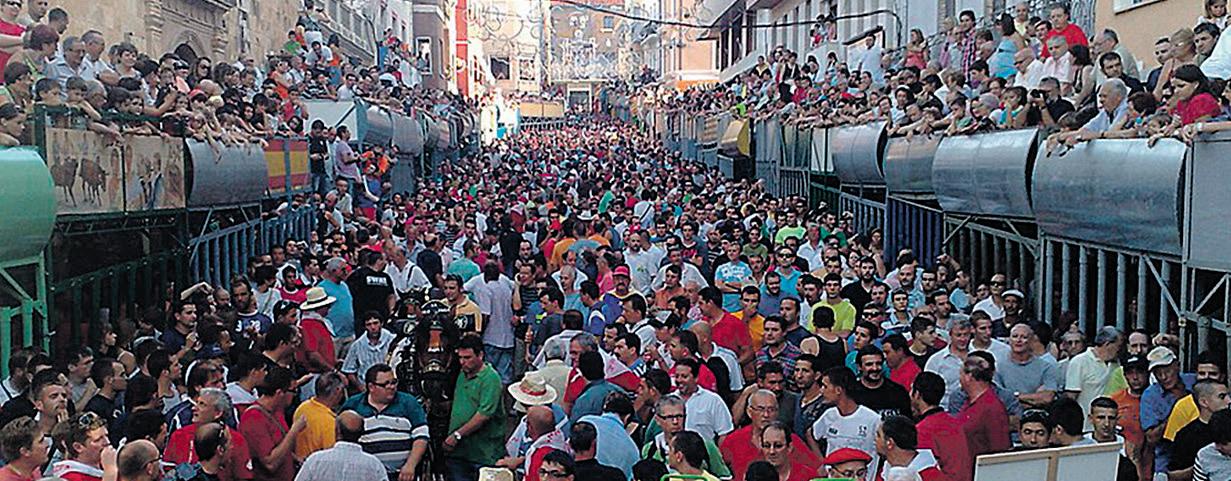
PEDREGUER has kicked off its patron-saint festivities with more than music and fireworks, renewing its commitment to safe and inclusive celebrations through the ‘NO means NO’ campaign. Led by the Department of Equality in collaboration with Youth Services, the Fiesta Commission and the Local Police, the initiative aims to prevent sexist violence during the town’s busiest nights.
A total of 2,500 leaflets will inform residents of the Puntos Violeta - safe

spaces staffed by professionals offering confidential support to those experiencing harassment or assault. These points will operate on selected dates between July 11 and 19, mainly at the Colegio de Alfas and Plaza de la Amistad, covering key nightlife hours.
To raise visibility, 1,000 fans bearing the campaign slogan will be handed out, and banners will be placed throughout the town. Police will also distribute posters outlining the sexual assault protocol to all
cábilas, ensuring widespread access to information.
For the first time, the campaign extends to Instagram via @igualdad_pedreguer, sharing content to promote safer behaviour and raise awareness. This campaign has been a central part of Pedreguer’s fiestas for several years, enjoying strong community support - especially from young people - and reinforcing the message that without consent, there is no celebration.

Credit : Zolak, Shutterstock

Planning for early retirement in Spain? Make sure you’ve got all your paperwork sorted before you apply.
DREAMING of early retirement? It is possible, Spain allows early retirement for both locals and expats, but there are a few key steps and documents to get right.
Start with your identity documents: if you’re Spanish, you’ll have a DNI; if you’re an expat, your NIE (Foreigner’s ID Number) is essential.
Next, gather your work history report, known as the ‘vida laboral’. This official document lists every job you’ve had and all your Social Security contributions in
Spain. You can request it online from Seguridad Social. If you’re leaving work due to redundancy or your company shutting down, get a formal certificate from your last employer to prove your status.
Depending on your circumstances, you may need extra paperwork. For example, early retirement due to disability requires a certificate showing at least 33 per cent disability, signed by health authorities. If your early exit follows involuntary unemployment, the SEPE (public
employment service) certificate is required to confirm you’ve met the waiting period.
Double-check that all names, dates, and numbers match across your documents and keep copies of everything.
Worked in other EU countries? Bring those recordsSpain counts qualifying work from most European countries. The process can often be started online if you have a digital certificate or Cl@ve PIN.




SPAIN’S largest cathedral is not in Burgos, Leon, or Santia go de Compostela, but in the heart of Andalucia: La Cate dral de Sevilla, officially La Catedral de Santa María de la Sede. It is the largest Go thic cathedral in the world and ranks third globally in overall size, covering over 11,500 m² - surpassing even St Paul’s in London and Mi lan Cathedral.

Built on the site of a former mosque after the Christian reconquest in 1248, the cathedral incorporates Islamic architectural elements, most notably the Giralda, a minaret-turned-bell tower and Sevilla’s most iconic landmark. Construction
A COALITION of eight countries, led by Spain and France, has proposed a recurring tax on luxury air travel - including private jets and firstclass tickets - to fund climate adaptation efforts in vulnerable nations. The plan was unveiled at a global climate and finance summit in Seville on June 30.
Unlike voluntary carbon offset schemes, this tax would be mandatory. Revenue would be collected by governments and redirected into international climate funds.
First-class passengers and private jet users account for a disproportionate share of aviation emissions. Studies show they emit up to 20 times
began in 1401 with the ambition to build a church so magnificent that future generations would think them mad. Completed in 1506 and later embellished in the Baroque era, it remains a striking example of Gothic
architecture, with flying buttresses, vaulted ceilings, and one of Christianity’s largest gilded altarpieces.
The cathedral also holds the tomb of Christopher Columbus, whose remains travelled between Spain and the Americas before returning to Sevilla in 1898. DNA testing in 2006 confirmed their authenticity, despite continued debate from the Dominican Republic.
Still an active place of worship, the cathedral hosts daily masses and major religious events like Semana Santa. Declared a UNESCO World Heritage Site in 1987, it is a cultural and architectural cornerstone of Spain’s rich history.

more CO2 per person than economy travellers. A 2023 Greenpeace report found just 1 per cent of people are responsible for over half of global aviation emissions.
Despite this, air travel remains heavily undertaxed. Most international flights
are exempt from fuel duties and VAT. By focusing on elite travel, coalition leaders argue the levy is both fair and effective.
A CE Delft study estimates the tax could generate over €100 billion annually if applied globally.
Aviation groups like IATA and ACI Europe have criticised the move, claiming such taxes risk harming connectivity and innovation. However, supporters counter that the wealthiest flyers are best placed to bear the cost.





Kathrin Barone



End-of-Life Companion & Funeral Celebrant Planning your goodbye with meaning
Tel: +34 656 42 33 85 info@lastinglegacycostablanca.com


SPAIN’S Verano Joven scheme is back, and it’s revolutionising summer travel for young Spaniards. With discounts of up to 90 per cent on Spanish trains and buses, and 50 per cent o Interrail Global Passes for those aged 18 to 30, exploring Europe by rail has never been more a ordable. This year, a 10day Global Pass costs just €167.50.
The main destinations on young travellers’ radar? Switzerland, Italy, Norway, and Lithuania are the must-visit spots for 2025. Switzerland o ers stunning train routes through Zurich, Lucerne, Interlaken, Berne, and Geneva, where lakes and mountains provide unfor-

gettable views and adventure activities like paragliding and hiking abound. Italy’s classic route lets you discover the treasures of Rome, Florence, Venice, Verona, and Milan - combining art, architecture,
great food, and lively nightlife in every city.
If you’re looking for nature and something a little di erent, Norway’s wild landscapes await. Start in Oslo, then take the scenic train to Bergen for ords
and Nordic charm. Continue north to Trondheim and Bodo, where you can experience the midnight sun - a true bucket-list moment.
Eastern Europe is also on the rise, with Lithuania o ering an alternative to the classic routes. Vilnius is a quirky capital lled with history and street art, Trakai boasts a fairytale lakeside castle, and coastal Klaipeda is a haven of fresh Baltic air. Don’t miss Nida’s giant sand dunes or the spiritual Hill of Crosses for something unique.
Thanks to these government-backed discounts, Interrail 2025 is opening up Europe like never before for Spain’s youth.
DIVORCE in Spain is relatively simple thanks to the no-fault law passed in 2005. You don’t need to prove wrongdoingjust a clear intention to separate. Whether you’re Spanish or foreign, the process depends on whether it’s an amicable split (uncontested) or you’re heading to court (contested).
For any divorce, you’ll need a recent marriage certificate, valid ID, proof of residence, and - if applicable - children’s birth certificates and a prenup. Foreigners must also provide legalised and translated documents, and sometimes a consular certificate.


Uncontested divorces are quicker and cheaper. If there are no underage children, couples can go straight to a notary. Otherwise, it’s through Family Court, with a mutual agreement outlining asset division, child custody, and alimony. These can be finalised within weeks.
Contested divorces take longer - anywhere from six months to two years
SPAIN’S property market has reached a historic milestone in 2025, with second-hand housing prices recording their sharpest annual rise in two decades. According to the Fotocasa Property Index, average home prices across Spain soared 14.9 per cent year-on-year in June, bringing the national average to €2,673 per square metre.
This record-breaking surge shows that - despite recent efforts - there’s a growing imbalance between high demand and low supply. The steepest price increases were seen in Andalucia, the

- and require separate lawyers. A judge rules on everything from custody to financial arrangements.
Costs vary. A smooth, uncontested divorce might cost €300-€600. A contested one? Expect €1,000-€5,000 or more, especially with translations and legal experts involved.
Foreign nationals should confirm their marriage is recognised in Spain and check how divorce might impact residency or citizenship.
For a complete step-by-step guide, visit Euro Weekly News at https://euroweekly news.com/2025/07/06/getting-divorced-inspain-step-by-step-guide/
Comunidad Valenciana, and the Region of Murcia, while the Balearic Islands retained their crown as the most expensive place to buy property in Spain, surpassing €5,000 per square metre.
Spain’s property boom: 2025’s fastest-rising regions and the cities breaking price records.
Spain’s property market has gone o the charts - quite literally - with house prices soaring at a pace not seen in two
decades. The cost of second-hand homes has surged by a staggering 14.9 per cent year-on-year, marking the steepest jump since the dizzy days of 2005, according to the Fotocasa Property Index.
This price explosion means the average second-hand home now sets you back €2,673 per square metre, a figure that’s got both first-time buyers and seasoned investors reeling.
AS Spanish summers get more extreme, surviving a heatwave is about more than just staying indoors. Temperatures above 40°C are becoming routine, turning ordinary days into genuine health risks for everyone - not just the very young or old. Your body’s natural cooling system can only take so much: excessive heat means sweating, which leads to loss of water and salts. Without repla
can face dizziness, headaches, confusion, or even fainting - problems that send people to hospital every summer. Spotting the warning signs early is crucial. If you - or someone with you - suddenly stops sweating, becomes weak, confused, or their skin turns hot and dry, it’s time to act. Move to the shade, hydrate, and cool off. If symptoms get worse, don’t hesitate to seek help.
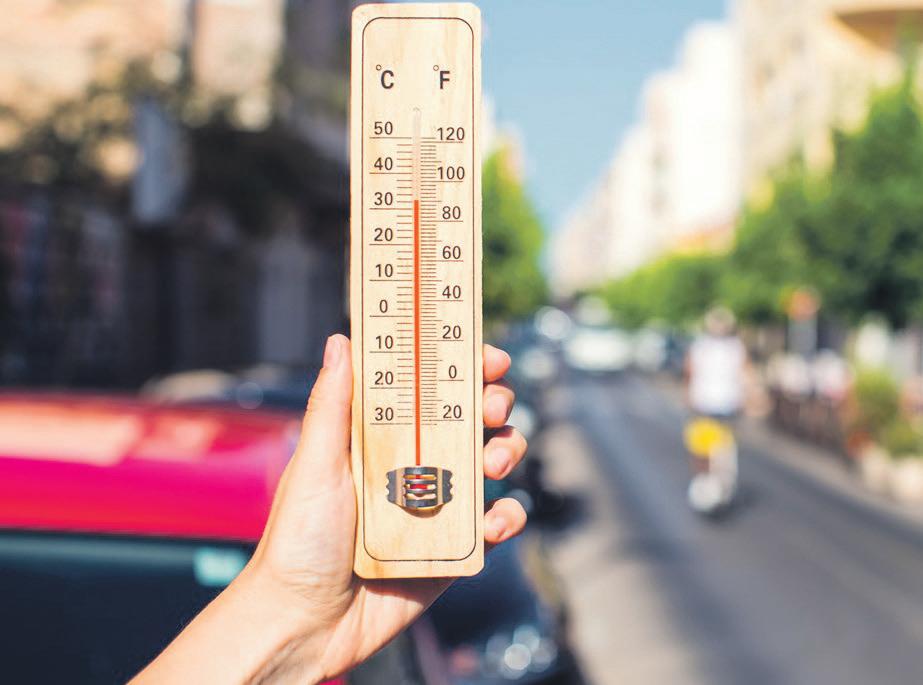
Locals know how to ride out the hottest months. Hydration isn’t just about carrying water; drink regularly, even if you’re not thirsty. Add a pinch of salt to your meals or try an isotonic drink to replace what’s lost through sweat. Avoid alcohol and coffee, which make dehydration worse. Embrace the siesta hours - Spain’s streets empty between 2pm
and 5pm for good reason. Finish errands early and stay inside during peak heat.
Dress smart: lightweight, loose, and breathable clothes are essential, as are hats, sunglasses, and sunscreen - even on cloudy days. Eat light, refreshing foods like salads, cold soups, and fruit, with watermelon and cucumbers being perfect summer choices. At home, close blinds early, use fans wisely (a bowl of ice in front can help), and keep oven use to a minimum. If you don’t have air conditioning, visit public spaces like libraries or shopping centres to cool down. Watch out for kids, pets, and older neighbours - they’re especially vulnerable. Remind children to drink, never leave pets in cars, and check on the elderly. And don’t ignore how you feel: the sun is powerful, and pushing through can be dangerous. Spain’s secret is knowing when to slow down, rest, and enjoy the cooler moments. With some planning and care, you can embrace summer and stay safe, even when the sun is relentless.
HEADING to Spain this summer with a wallet full of euros? Think again. In 2025, Spain’s cash rules are stricter than ever, and ignoring them could cost more than a missed tapas night.
The infamous €500 note is still legal tender, but don’t expect anyone to accept it. Most shops and restaurants will refuse it flat-out. Your best bet? Swap it for smaller bills at a bank.
Starting in July 2025, Spain will also crack down on old or damaged €50 notes. Retailers may reject crumpled cash, so if your bills look tired, exchange them at a local bank - ID required.
Travelling with €10,000 or more in cash? You must declare it at the border. Within Spain, carrying over €100,000 also requires official reporting using Form S1, which is available through the Spanish Tax Agency.
Even spending cash comes with limits. Locals are limited to €1,000 in cash per transaction. Tourists receive a higher ceiling€10,000 - but must present their ID.
And those tiny 1- and 2-cent coins? Still in circulation, but fading fast as Spain hints at joining other EU countries in rounding prices to the nearest five cents.
Bottom line: Cash is still welcome in Spainespecially in rural areas - but only if you play by the rules. Stick to small denominations, keep your notes clean, and be aware of the limits. When in doubt, card it.
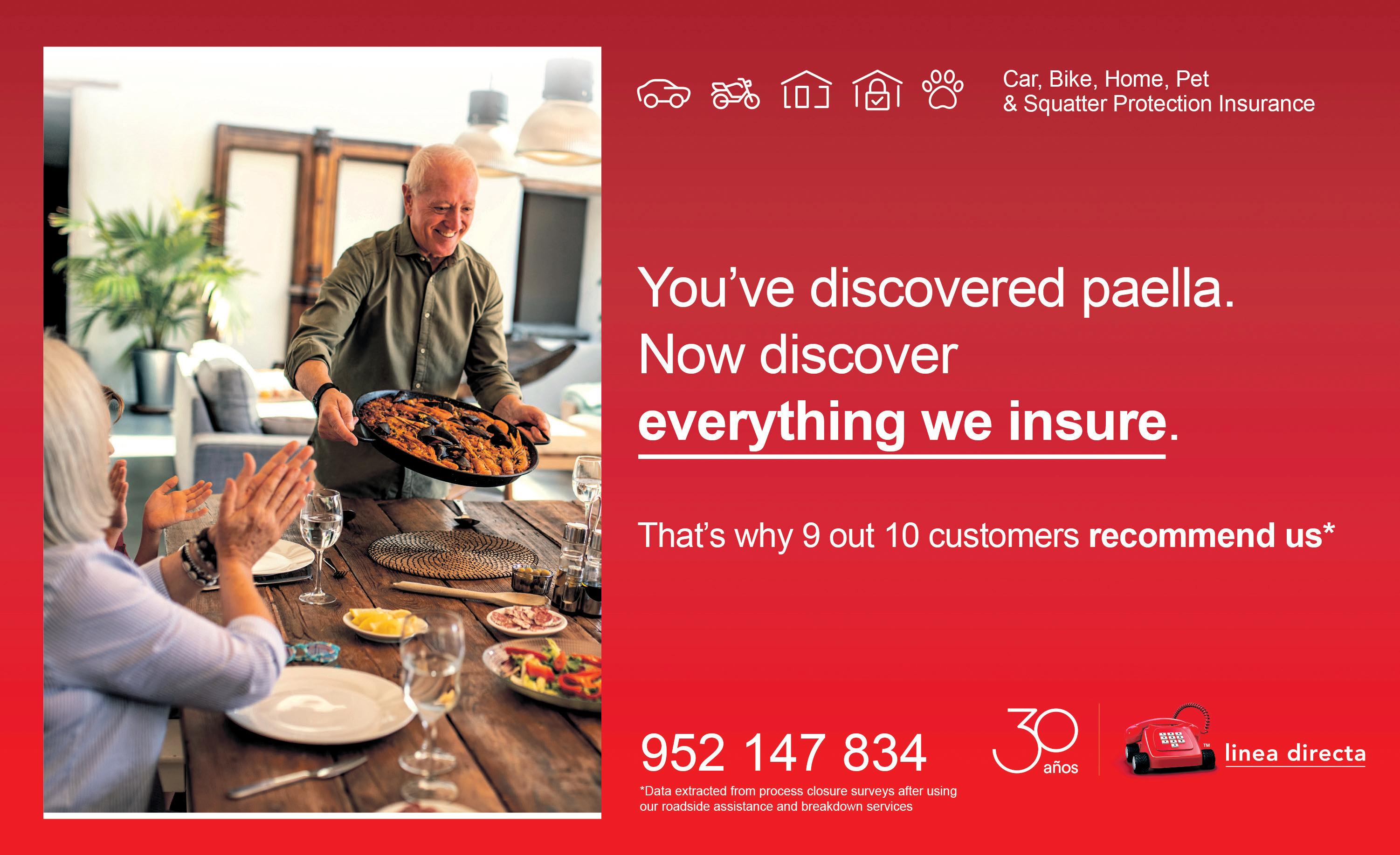





VEJER DE LA FRONTERA, located in Cadiz Province, is a striking sight on the Andalucian landscape. Its elevated position gives wide views across the surrounding countryside, including glimpses of the Atlantic coast on clear days. The old town is compact and easy to explore, making it a comfortable stop between beaches and the inland sierras.
Visitors travelling by campervan often stop here for a night or two. There is a dedicated campervan area just outside the historic centre, close to Avenida de los Remedios. From there, it’s a 10-minute walk into the heart of the town.
The historic town
Vejer’s old quarter is enclosed within ancient walls, with narrow alleyways, courtyards, and traditional houses painted in white lime. One of the main entrances is through the Arco de la Villa, part of the original defensive gate. Inside, visitors can see remnants of the town’s Islamic past, including parts of the old castle and a well-preserved minaret tower.
At the centre is Plaza de España, a shaded square with palm trees and a distinctive tiled fountain. This area is popular for cafés and quiet lunches. Nearby,
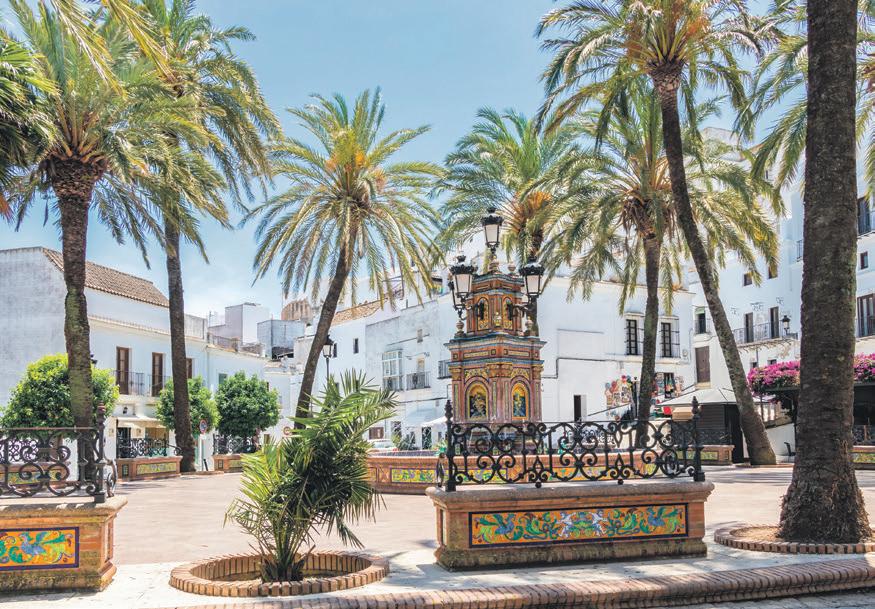
the Iglesia del Divino Salvador, built on the foundations of a former mosque, reflects the blend of Christian and Moorish influences typical of the region.
Viewpoints and walking routes
There are several viewpoints around the town. The Mirador de la Cobijada, named after the traditional local costume, provides open views toward the Barbate marshes. On the opposite side, the windmills on the hill of San Miguel show how the town once relied on wind power. Some have been restored and are open for
visits.
Walking paths connect Vejer with rural areas and nature parks. The route to the nearby hamlet of Santa Lucía passes a Roman aqueduct and is suitable for a short half-day trip.
Local traditions
One of the best-known festivals is the Feria de Primavera, usually held in May. It includes music, horses, and food stalls. In late summer, the Noche de Velas transforms the historic centre with thousands of candles, live music, and extended opening hours at galleries and shops.
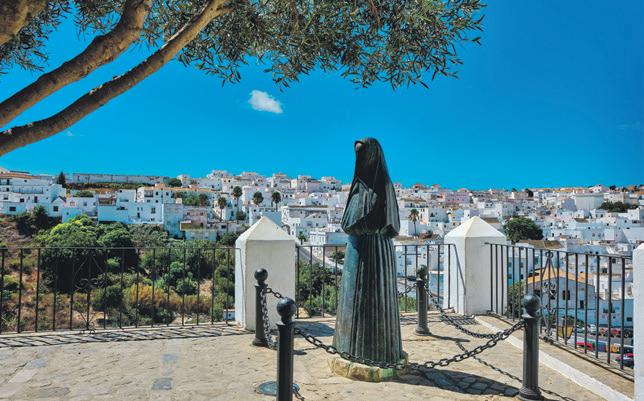
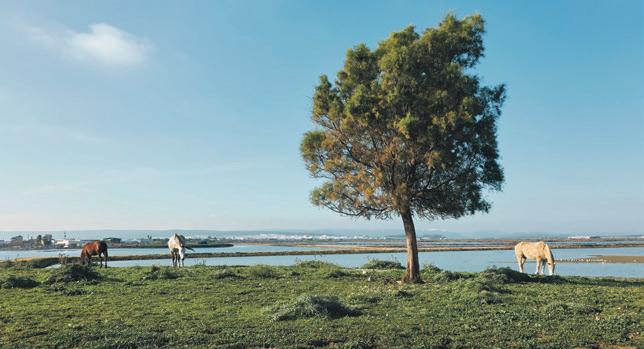
Vejer de la Frontera remains a favourite among those looking for a slower pace and a bit of history. With coastal attractions nearby and walking routes in all directions, it’s well-suited to short stays and day trips. For those travelling the coast in a campervan, it provides both a visual landmark and a welcome pause.







PONTEVEDRA has become one of the very few cities worldwide whose city centre is pedestrian-only, a utopic aspiration many have.
Notable examples of pedestrian-only cities include Venice, the largest car-free historic centre in all of Europe. Other than that, there are ski villages like Zermatt, Switzerland, and islands like Fire Island, New York, and the Isle of Sark in the UK’s Channel Islands.
However, lesser-known but equally impressive is the historic Pontevedra, a region in the northwest full of hidden gems, such as this little town on Spain’s rugged coast, offe -
WELCOMING a new baby is a joyful time, but registering the birth at the Registro Civil is a key legal step all parents must complete.
This registration provides an official birth certificate, which is essential for healthcare, passports, schooling, and other services.
In 2025, most public hospitals offer electronic registration (inscripción telemática), meaning parents often don’t need to visit the registry in person. The hospital sends the medical birth certificate and relevant details directly to the Registro Civil within 72 hours.
However, if the birth occurs outside a hospital or in a clinic without electronic access, parents must register in person within 10 working days at the Registro Civil in the municipality where the baby was born.
ring panoramic views and unforgettable sunsets.
Apart from service vehicles, deliveries, and other specified autos, cars are allowed only on Pontevedra’s outer rings.
The policy is not specifically unfriendly to motorists: you can leave your car for free, and without time limits, in designated areas. Drivers are encouraged to park and walk into the historic centre to enjoy its medieval squares, cobblestoned streets, and open-air cafés, all blissfully free of traffic.
It’s no wonder the small city, with a population of 80,000, has seen an influx of 12,000
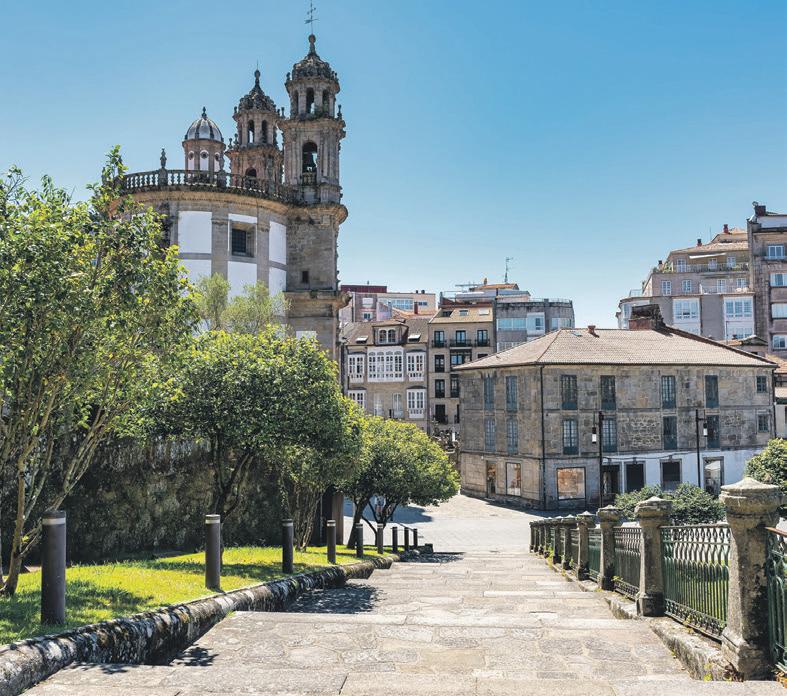

The traditional libro de familia is no longer required. Instead, each child receives an individual birth certificate. To register, parents need original documents, including a medical certificate of
birth, valid ID, a marriage certificate or declaration of parentage, and proof of address. Foreign documents must be translated and apostilled.
Parents can choose the order of surnames if they agree, but names must follow Spanish naming rules. Once registered, the birth certificate can be requested online or in person. It’s crucial for accessing healthcare, education, and legal documents.
Families are advised to contact their local registry in advance, prepare all documents carefully, and meet the legal deadlines. With Spain’s digital updates, registering a birth is now faster and more efficient for new parents.
new residents since becoming a pedestrian-friendly community in the late 1990s.
“It was a sad and stressed city,” said Xosé Cesareo Mosquera, Pontevedra’s head of urban infrastructure. “People felt like they had to escape to live on the outskirts.”
The city’s mayor, Miguel Anxo Fernández Lores, made waves by prohibiting on-street parking, lowering speed limits, replacing traffic lights with roundabouts, and pedestrianising large areas of the historic centre.


IN Spain, splitting the bill - a pagar a pachas - has long been part of the dining experience.
Whether at a birthday dinner or tapas with friends, dividing costs felt natural. But in busy tourist areas, that tradition is shifting.
From Malaga to Zaragoza, more restaurants are now enforcing strict one-bill rules. Some refuse to split bills entirely. Others allow it - but only if you pay a small fee (€1–2) per additional card. Staff cite burnout, terminal errors, and lost time as reasons.
Point-of-sale terminals in Spain often charge per transaction - usually €0.30-€0.70.
Multiply that across dozens of tables, and the cost adds up fast. In
smaller restaurants, even a simple coffee order becomes a logistical issue when split three ways.
Is this allowed? Yes, but with a catch. Spanish law permits one-bill policies as long as they’re communicated before ordering. FACUA, the consumer watchdog, warns that surprising diners after the meal could violate transparency rules under Article 60.
To steer clear of surprises: Ask the waiter about payment options early, look for printed signs near the bar or menu, Settle the bill with one card, then split it with apps like Bizum, Revolut or PayPal
So plan ahead, stay flexible, and focus on enjoying the meal - not the math.

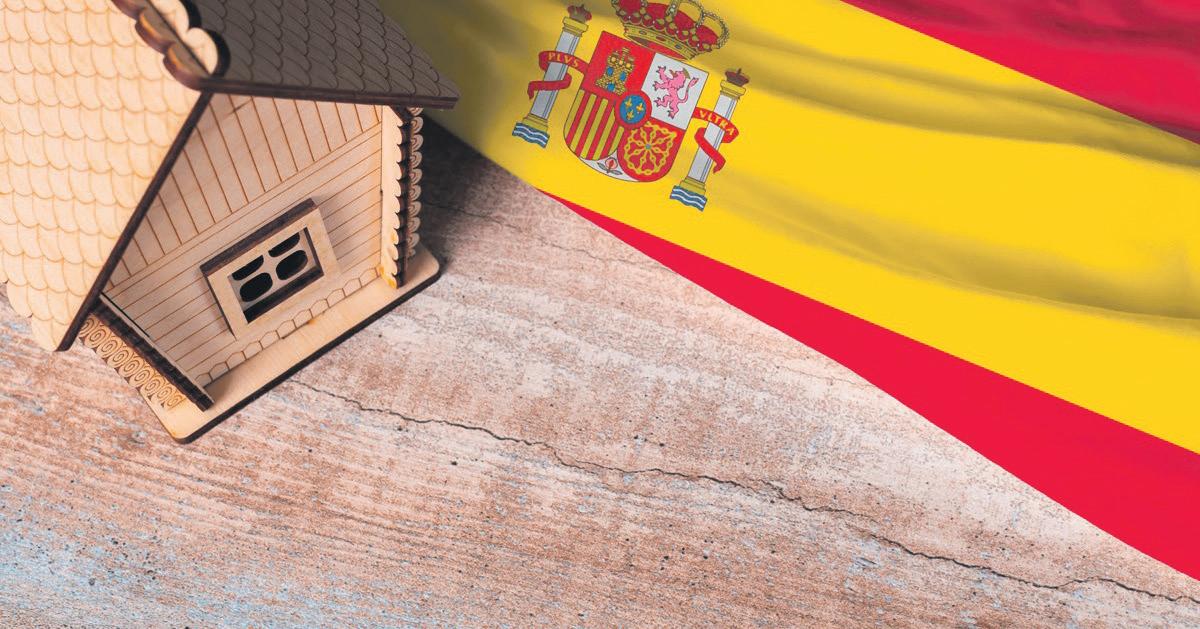
There are ways to avoid paying tax - if you know the rules.
of selling your home in Spain?
Good news: you might not have to pay any tax on your profits if you follow the rules. Spanish law allows many homeowners to avoid capital gains tax, especially if you’re selling your main residence.
The most popular route is simple - if you reinvest the money from your sale into another




home (which must become your main home) within two years, you can claim an exemption and keep your profits taxfree. The process is flexible: you can buy your next property anywhere in the EU, not just in Spain, as long as you’re a Spanish tax resident and genuinely move in.
There’s more: if you’re over 65, you get special privileges. You can sell

your main home and pay zero tax on the gain, no need to reinvest or fill out extra paperwork.
For retirees wanting steady income, rolling your proceeds into a life annuity within six months also brings exemption on up to €240,000 of gains. Those with official severe dependency status can access the same relief as pensioners, as long as it’s your main residence.
You must prove the property was your main home - usually, you need to have lived there at least three years (with exceptions for divorce or job moves).
To get the full exemption, reinvest all the sale proceeds, not just the money left after your mortgage.


has introduced new legal requirements for owners of short-term rental properties. From July 1, , all authorised shortterm rental properties must be registered with the Land Registry (Registro de la This is now a mandatory legal obliga-
If you rent out your property on platforms like Airbnb, Booking.com, or Rentalia, failing to register by the deadline could result in fines, restrictions on advertising, or difficulties selling or transferring your property.

What is the NRA?
The Número de Registro de Alquiler (NRA) is a unique national rental registration number issued by the Land Registry. It is separate from your regional tourist licence and serves as additional proof that your property is a legally authorised short-term rental.
Without this registration, you may not be allowed to list or rent your property from July 2025 onwards.
Does it apply to all rentals?
The requirement mainly affects short-term or tourist rentals, but definitions can vary by region. Longterm residential lets (12 months or more) are not affected. If your property is already licensed as a tourist
Get in touch
rental, this is an additional step to register that licence with the Land Registry.
What’s Involved?
The process typically takes up to two weeks, although in some areas you may receive a Provisional NRA within 24-48 hours. This allows you to begin or continue renting while your full registration is processed.
To register, you’ll need:
• Property details
• Your NIE
• Existing tourist licence (if applicable)
You don’t need to be in Spain to complete the process - it can be done via Power of Attorney or a digital certificate
Our Registration Service
• Document preparation and submission
• Coordination with the Land Registry
• Legal support across Spain (mainland and islands)
If you own multiple properties, we can help register each one and discuss bundled support options.
What happens if you fon’t register?
Missing the deadline could result in:
• Fines or penalties
• Restrictions on advertising or renting
• Legal complications when selling
We recommend starting your registration early to avoid delays or last-minute issues.
At My Lawyer in Spain, we offer a complete NRA registration service for €269, including:
To ensure your rental property remains compliant and fully authorised, contact us at info@mylawyerinspain.com to begin the registration process.

ORESUND BRIDGE, an eight-kilometre marvel of engineering that connects Denmark and Sweden, has celebrated its 25th anniversary.
The €2.6 billion structure, linking Copenhagen with the Swedish port of Malmo, has transformed the region into a business powerhouse and economic success story as well as a symbol of European integration.
Once a geopolitical chokepoint where Danish kings extorted transit fees from passing ships, the Oresund Strait is now a busy commuter corridor. The bridge, opened in 2000, has all but merged Copenhagen and Malmo into a single metropolitan area. “There is a before and after the bridge,” said Linus Eriksson, CEO of the bridge’s operating company. “Before, Malmo was a town in crisis, and Copenhagen struggled. Now, the region thrives economically.”
However, the real issue for daily commuters is the high cost of the toll. A one-way car journey
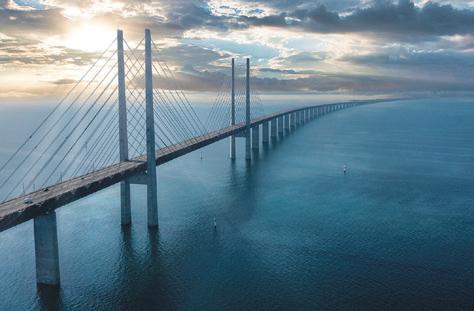
now costs 510 Danish kroner (€68), making it the world’s most expensive bridge toll. A passenger car with a trailer costs €122, and a motorhome costs between €122 and €215 depending on the size.
The bridge, jointly owned by Denmark and Sweden, is financed by loans that tolls help repay.







Swedish/Australian ecommerce consultant and small business owner Dannie Ahlgren decided to leave his home in Sweden behind 11 months ago and carve out a new live in the south of Spain.
Why Spain?
“As cliché as it may sound - the wea ther. Especially coming from Sweden, the amount of sun we get all year round there compared to here - it’s a no-brainer.”
How’s your Spa nish?


“It’s super basic. Very busy with work, but also the international crowd is so large I’ve been managing just fine with English. But, I must stop making excuses and start working on it ASAP.”
What are the biggest cultural differences you’ve found?
“The bureaucracy is a nightmare.


All the paperwork. Especially for a small business owner. It makes you really inefficient.”
Is there anything you would change about Spain if you could?
“Apart from the paperwork?
The postal service. Although, it has taught me to be more patient here. That’s a good thing.”
Would you ever go back to living in Sweden?
“At the moment, I don’t see that as an option. The Costa del Sol already feels like home. If I did have to leave Spain, it wouldn’t be for Sweden. It would definitely be Australia.”
ON July 4, a high-voltage transmission line near the Ledvice substation in Czechia failed just before noon. That one disruption cascaded into a system-wide failure. Eight substations went down, large parts of Bohemia lost power, and Prague’s metro ground to a halt. Hospitals switched to backup. Elevators froze. By 12.30pm, much of the capital was dark.
Grid operator ČEPS quickly confirmed it was not a cyberattack, nor a weather-related failure - it was a mechanical fault that the safety system couldn’t contain. The failure started with the V411 line. Normally, bac-

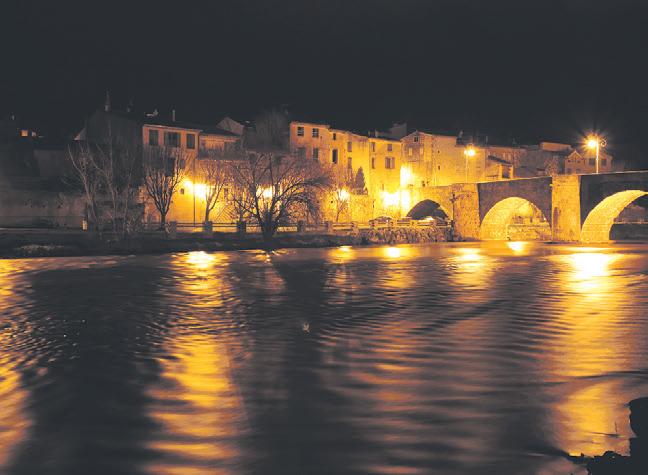
Streetlights cast a warm glow as darkness looms.
kup mechanisms isolate these faults. But in this case, the reroute logic failed. Load wasn’t shifted fast enough, and the system split. Over 1,500 megawatts of production and 2,700 megawatts of demand were knocked offline, pushing part of the grid into island mode.
Restoration began within an hour, and full power returned by early afternoon. But the damage wasn’t just physical - it was reputational. The system cracked too
easily.
This was Europe’s third major blackout in three months. Spain experienced a regional grid failure in April. In June, London’s substation fire cut power to airports and thousands of homes. Operators still frame these as separate events. But the pattern - ageing infrastructure under strain - is hard to ignore. European grids are no longer handling one country’s needs. They’re managing a continent’s.
Credit: Porapak Apichodilok, Pexels

STARTING March 2026, people in Sweden will be able to send real-time text messages to SOS Alarm instead of calling 112.
The new feature, called real-time texting, allows users to type messages to 112 operators while audio from their surroundings is still transmitted, helping emergency responders assess the situation.
“Sound is actually a very important part for our SOS operators to be able to make an assessment. You can, for example, hear if it is restless on the spot, what the breathing of the one who calls sounds like, if he has chest pain,” said Björn Skoglund, operations specialist at SOS Alarm (Cited by Sweden Herald).
While the service will be open to everyone,
it’s designed primarily for people with disabilities, and particularly those who cannot speak or hear well. It could also prove vital in situations where it’s dangerous or impossible to speak, like during a violent incident, such as the mass shooting at Risbergska School in Örebro earlier this year.
For the past 15 years, a limited SMS service has been available to those with hearing or speech impairments, averaging around 880 emergency texts a year.
False alarms and irrelevant messages are already an issue. Some people mistakenly think they can text 112, with messages ranging from burglar alarm alerts to casual texts like ‘Hello sweetie, what’s for dinner?’
IN July 2025, a stretch of autobahn near Hesse buckled under extreme heat. The road didn’t melt - it cracked open. Concrete slabs were pushed upward by thermal expansion, causing rare speed restrictions and massive traffic delays.
The mechanics are simple: as temperatures rise, both concrete and asphalt expand. On long, flat surfaces like motorways, this pressure builds at cross-expansion points - especially where joints are weak or materials have aged. If the surface temperature exceeds 50°C, that pressure turns into rupture.
Air temperatures reached 39°C in parts of Germany. Surfaces got even hotter. Most roads weren’t built for this. Their spacing, ventilation, and materials are outdated, not designed for 40°C+ heat - let alone
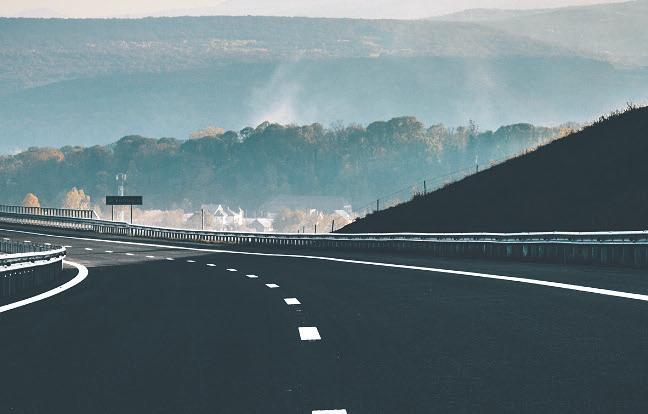
back-to-back heatwaves.
Similar heat-induced road failures occurred in 2019 (Saxony-Anhalt) and 2023. What’s new in 2025 is the frequency and intensity. The German Weather Service confirms the country is warming nearly twice as fast as the global average.
Between 2018 and 2023, heat-related damage cost Germany over €300 million. That figure is expec-
ted to rise. In July, emergency road crews were deployed again - and speed restrictions, rare on the autobahn, were reinstated. Germany’s roads weren’t designed for this climate. Emergency resurfacing is temporary. Long-term investment is needed - rethinking roads not as static structures but as systems that must adapt to volatility.

OUR COMMITMENT TO YOU
At Elysium Funeral Plans, we are dedicated to protecting you and your family. Our plans offer unmatched security and peace of mind.
HOW YOUR MONEY IS PROTECTED
Unlike other providers that use ‘trusts’ - which are not legally recognised in Spain - we operate with full transparency. Funds held in trusts may be moved offshore, placing them outside Spanish jurisdiction.
WHO HOLDS YOUR MONEY
Your funds are securely managed by Banco Sabadell and Sabadell Asset Management, part of Amundi Investment Solutions (owned by Crédit Agricole, regulated by the FCA - Ref: 401883).

As of 30 September 2024, Amundi manages:
• €2.24 trillion in assets
• 100+ million clients
• 1,000+ institutional and corporate clients
• Highest market capitalisation of any European asset manager
• Ranked a global Top 10 asset manager (IPE, June 2024)
We believe this offers greater


transparency and security than a faceless trust.
Your funds remain in our Banco Sabadell business account during the 30-day Consideration Period. After this, they are transferred to our investment partners to ensure your funeral plan is fully funded when needed.



• A 10- and 14-Year Legacy & Refund Commitment
• A free professionally written, registered, and notarised Will
• Community giving: Up to €50 donated to charity and one tree planted for every plan
PREPAID FUNERAL PLAN vs FUNERAL INSURANCE
Insurance offers a cash payout, which may not cover rising costs.

Your funds are ring-fenced and protected. If Elysium closes or a director passes away, you can choose to transfer your plan or receive a full refund.
We’re the only funeral plan provider to offer:
Our Prepaid Plans lock in today’s prices and arrange everything in advance, giving you total peace of mind.
of mind.
Plans start from €2,200 or from just €16.25/month for a Clarity Plan - a simple, dignified direct cremation. Discounts available for couples and families. Up to 10 years interest-free.
Plan - a simple, dignified direct
WE CARE, PROTECT & SUPPORT
Our qualified celebrants support you and your family before, during, and after your time of need. From planning and funding to giving back to the community, we’re by your side.
TALK TO US. Our English-speaking team loves answering questions. Book your FREE consultation today! Contact: +34 960 730 230 or WhatsApp +34 604 183 005 - Visit our website: www.elysiumfuneralplans.com


FLIGHT cancellations are surging across Europe this summer, leaving thousands of travellers stranded and frustrated. What began as isolated industrial action has rapidly escalated into a full-blown travel crisis.
Strikes by easyJet cabin crew and French air traffic controllers have caused widespread disruption, grounding hundreds of flights. Dublin Airport alone saw 16 connections scrapped due to the French ATC strike. Even transatlantic travel hasn’t been spared - delays from JFK Airport in New York have added to the mounting chaos.
The impact is being felt by everyone from holidaymakers and families to business travellers, often with little notice or opportunity to rebook. Travellers across Europe and beyond are left wondering whether their own flights will make it off the ground.
We asked our readers if they’ve ever been affected by flight cancellations, and their responses reveal just how widespread the disruption has become:
Ali Palmer was direct: “Yes, many times because of French strikes.”
Others echoed similar frustrations. Bodil A Fröling simply said, “Yes!” while Kay Horsnell added the same response. Peter Hurley noted, “Yes, several times,” and Alison Steele replied, “Oh yes.”
For some, the delays caused far more than mere inconvenience. Kenneth Faktor Carslund recounted a chaotic expe-
rience: “Yes. Qatar Airways from Cebu to Doha. I should have flown at 6pm, but it became like 7am. I had to spend three hours in a hotel. Sadly, it took so long to get us all on buses there, that the last arrived after 11pm...”
John Smith remembered a particularly long disruption: “Stuck in Cape Verde for three days as Gambia Airline kept cancelling.”
Judith Dominique Wolfenegg described a mixed experience in Copenhagen: “Yes. Once in Copenhagen, for technical problems. They put us at the Clarion Hotel Copenhagen Airport, gave us vouchers for dinner and breakfast, and we could fly the next morning. Also, I got several hundred Euros from an organisation who sues airlines for cancellations like this. For me it was not a problem, but for my friend it was a disaster - she should have attended a funeral the next morning...”
Not everyone has faced full cancellations - but delays still disrupted plans.
Trish Carey-Blaschke noted, “Delays yes, but luckily no cancellations.”
The responses made one thing clear: flight cancellations have become a common and frustrating experience for many travellers. From brief delays to days-long disruptions, nearly everyone who responded had been affected in some way. While a few managed to avoid outright cancellations, most shared stories of missed connections, lost time, and stressful travel.

SAYS IT
THINK IT

ODD to be referred to as a Dinosaur in the somewhat derogatory letter I received last week. It actually got me thinking how our existence is often steered by those among us who have endured for somewhat considerable periods.
Age and experience are of course extremely important to the survival and advancement of the human race. Indeed, if we only relied on the young to guide us in this existence, we probably wouldn’t be allowed to continue beyond the age of around 25! I do however agree that some of our older representatives can be a total pain in the proverbial to those eager to forge ahead. It got me thinking of my own experiences with one individual I considered to belong to an age gone by.
In the early 50s, my teenage band had attained some measure of success with the introduction of skiffle, which had begun to sweep the country. At the start of 1958 I received a message
from my new agent informing me I was invited to audition for a coming season at the London Palladium in a show entitled Large as Life. The Pop era was in its infancy and there were still only a small number of UK singers actually involved in this new form of entertainment. I duly auditioned and to my surprise and delight I was actually selected for the show.
My skiffle band were not invited as it required Rock n Roll, subsequently with a great sadness I decided to leave my beloved group and join the new band that was being formed from jazz and session musicians. It was led by the brilliant saxophone player Rex Morris, who later joined up with ‘Lord Rockingham’s Eleven’, having a big hit the following year with ‘There’s a Moose Loose Around this Hoose’. The show was to be a presentation of music through the ages.
This entailed beginning the presentation with minuets and culminating in the new phenomena of RnR. We were told to rehearse four songs for our spot in the final part of the production. Rex and I attacked the rehearsals with gusto. Somewhat oddly the
other band members were jazz men who also hated the new music. Still, we were soon ready. Then the bomb dropped. The producer also despised RnR! He was in fact, yes you’ve guessed it; a Dinosaur! In the end he cut us down to one song (’Whole Lotta Woman’).
He actually went further and even excluded us from the printed programme. We always stormed the show and I even delightfully gained a short fling with Hattie Jacques, (it’s in the book!) who was starring with Harry Secombe and Terry Thomas among others.
But we never got anywhere. The producer also left us out of that year’s Royal Variety Command Performance. The show itself was a resounding success, but Leapy’s career hit a brick wall. All down to a Dinosaur, who despite his out-of-date attitude, actually gave the public a great show. So, you see we do need our Dinosaurs, even though they are sometimes difficult to agree with.
Keep the faith Love Leapy. leapylee2002@gmail.com
Leapy Lee’s opinions are his own and are not necessarily representative of those of the publishers, advertisers or sponsors.

MORE and more American retirees are choosing Spain for a retirement rich in culture, comfort, and peace of mind.
The Association of Americans Resident Overseas estimates that around 108,000 Americans already live in Spain, out of 5.5 million US citizens living abroad. Experts believe those numbers will climb as Spain’s relatively affordable lifestyle and strong healthcare system attract retirees looking to make their pensions go further.
Spain has been named the top European destination for American retirees by expat network InterNations, which highlighted the country’s top quality of life and abundance of leisure activities - from worldclass food and sports facilities to lively cultural scenes in cities like Madrid, Valencia, and Barcelona.
In its 2025 report, Global Citizen Solutions ranked Spain the number one
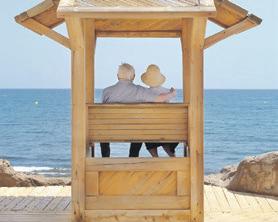
Retired Americans swap US price hikes for Spanish life of comfort and class.
retirement spot for Americans, estimating monthly living costs between $2,000 and $2,500 - a figure that often includes rent. For many, that makes it easier to stretch savings and enjoy a comfortable lifestyle.
Healthcare is another standout: Spain ranks ninth on the 2025 Health Care Index, well ahead of many other popular retirement destinations, offering high-quality medical care at a fraction of the cost of private systems elsewhere.
For thousands of Americans, Spain is a chance to embrace a rewarding new chapter.

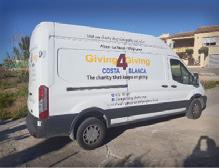










BENIDORM will be one of just three cities in Spain chosen to host an official fan zone during the group stage of the UEFA Women’s Euro 2025. The Costa Blanca’s tourism capital will join in the celebratory atmosphere surrounding the Spanish national team as they compete in the continental championship, with a free fan space set up on Friday July 11 for supporters to watch the crucial match between Spain and Italy live.
The event will take place in Plaza de SS.MM. los Reyes from 7pm, featuring a full programme of entertainment and activities for all ages. Although the match - to be held at the Wankdorf Stadium in Bern, Switzerland - kicks off at
9pm, festivities will begin much earlier, with a DJ, interactive games, freestyle football displays and official merchandise giveaways. A large turnout is expected, as both tourists and local residents are set to enjoy what promises to be a lively evening lasting until around 11pm.
Since their appearance at the last Women’s Euro, held in England in 2022where they were knocked out in the quarter-finals by the host nation and eventual champions - Spain’s women’s football team has undergone a historic transformation, marked by unprecedented sporting success and significant internal changes.
THIS summer, El Poble Nou de Benitachell offers residents and visitors a unique chance to enjoy two cultural experiences.
The cycle started in June and will continue with Finca Mont Roig from Pedreguer on July 17, and Manu Guardiola’s bodega from Jalon on August 21. The finale on September 27 features BioMoscatell, who will also lead a tour of traditional vineyard terraces, showcasing the area’s distinctive dry-stone landscapes.

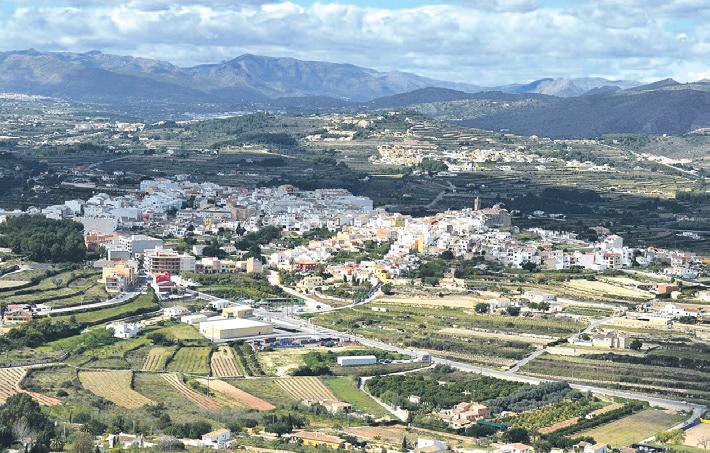

Alongside the tastings, Respira l’estiu (Breathe the Summer) offers guided open-air meditations in scenic spots around the municipality. These sessions encourage relaxation, mindfulness, and a deeper connection with Benitachell’s natural surroundings.
The initiative honours the longstanding wine culture of the Costa Blanca,
where moscatel grapes thrive amid coastal breezes and terraced hillsides. Local producers balance tradition with sustainable methods, making this an authentic way to experience the region’s identity.
All activities are free but places are limited. Registration is required via the Inscribirme platform. For details, contact Turismo Benitachell at turisme@ elpoblenoudebenitatxell.com or call 966 493 346.


Set beside the Censal park and just a short walk from the sea.
AS the sun sets over Villajoyosa’s central beach, a once-forgotten estate is coming back to life with music, food, and culture. Hundreds of residents and visitors will flock to Estiu a la Senyoreta over the coming weekends to experience the town’s new summer offering - a vibrant evening market and cultural space at the historic finca La Senyoreta de l’Hort.
Set beside the Censal park and just a short walk
from the sea, the estate now hosts a buzzing atmosphere every weekend from Friday to Sunday, between 7pm and midnight. Visitors can stroll among artisan stalls, sample gourmet street food from a range of food trucks, and enjoy live performances under the stars.
The initiative forms part of a wider push to animate Villajoyosa’s summer nights and enhance the town’s cultural and leisure landscape.
The councillor for Tourism, Rosa Llorca, who unveiled the full summer schedule this week, emphasised the family-friendly nature of the project.
The summer programme at La Senyoreta will also include outdoor film screenings, children’s workshops, and performances designed to appeal to a wide audience - from families with young children to older residents looking for relaxed entertainment.

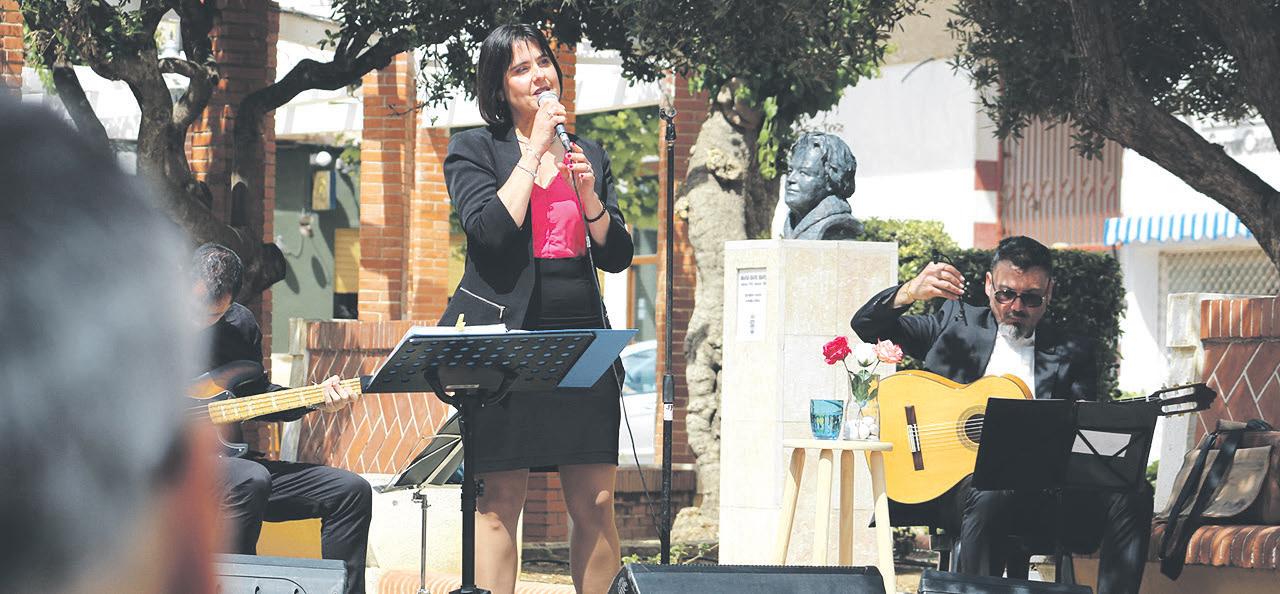
DENIA is offering more than sea and sun this summer with 40 cultural events scheduled between July 16 and September 7 across seven themed festivals. Parque de Bassetes hosts outdoor concerts and films every Wednesday night, starting with guitarist Alberto Tarin on July 16, followed by jazz fusion, salsa and biopics like Elvis and Saben aquel.
The 26th Cantada de Habaneras takes place on July 19 in Calle de la Via, with choirs from Barcelona and Denia performing traditional sea songs.
Musica al Castell (July 23–27) brings five nights of music to the castle and Plaza del Consell, featuring folk artist Miquel Gil, Cuban septet Nabori, Spanish fusion band
El Naan, and the legendary Martirio. Most concerts are free; tickets for El Naan and Martirio are €10 and €15. From August 1 to 21, the Jazz Festival returns to Torrecremada gardens with international acts like Pia Tedesco, David Hermlin and Ronald Baker. Tickets start at €15.
Sonafilm, Denia’s film music festival, presents Noches de fuego on August 22, with Moanin Project and special guest Vince DiCola.
Cinema fans can enjoy family-friendly films on Playa Punta del Raset every Sunday night from July 20.
Finally, the 32nd International Folk Dance Festival closes the season September 5 to 7 in Plaza del Consell.

FROM Friday July 11 to Sunday July 13, the historic heart of La Nucia will once again be transformed into a bustling medieval village, celebrating the anniversary of the town’s foundation. The event marks the signing of the ‘carta pobla’ on July 9, 1705, and has become a local tradition since its inception in 2005.
This year’s Medieval Market promises to be as spectacular as ever.


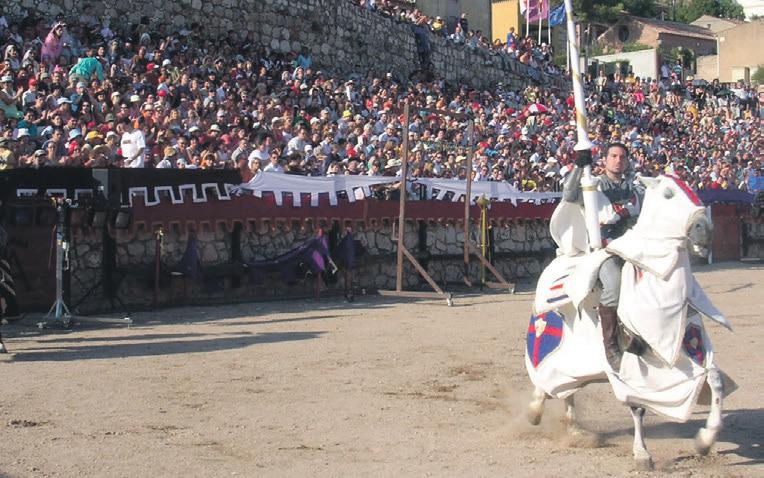

This year’s Medieval Market promises to be as spectacular as ever, with three days of immersive experiences, historical re-enactments and artisanal wonders. The streets and squares surrounding the town hall will be lined with colourful stalls, all offering genuine handmade goods created by more than 40 skilled artisans. Shoppers can browse a wide
variety of items in-
cluding ceramics, blown glass, hand-carved wood, jewellery, natural soaps and perfumes, wooden toys, puppets, lamps made from gourds or wire insects, rugs and more.
At the heart of the market lies a gastronomic corner, where visitors can indulge in artisan cheeses and cured meats, jams and sweets, handmade chocolates, and dishes from a medieval tavern, a pulpería
(octopus stand), a crêperie, and a jaima serving Arabic food.
While adults relax and recharge, children can dive into a world of medieval games and activities: archery and fencing workshops, pottery wheel experiences, traditional board games, and even a ride on a mythological carousel.
The full programme is available at: www. puebloartesano.es/la nucia.

















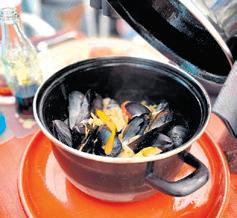
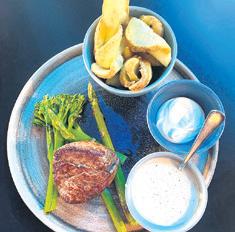































SUNDAY July 6 was anything but ordinary in Benidorm, as dozens of friends, family members and long-time customers gathered to celebrate the 60th birthday of local pub legend Tad Crocker. The party took place at the lively Why Not Bar and kept the drinks flowing and the music playing until late into the warm summer night.
Tad first moved to the Spanish resort 22 years ago, seeking sunshine and a fresh start after several pit closures back in the UK left him searching for a new path. What began as a new chapter has since turned into a legacy: today, Tad owns a small empire of Yorkshire Pride pubs by the sea, beloved by holidaying Brits for their traditional English beer, hearty

pub meals and welcoming atmosphere.
Many will recognise Tad from his appearance on the Channel 5 show Bargain Loving Brits in the Sun, which followed him last year as he opened his fifth Yorkshire-themed pub in the resort. The programme captured his signature charm and relentless work ethic - qualities that have made him a household
name in Benidorm.
Sunday’s birthday bash reflected all of that and more: good vibes, laughter, birthday surprises and a true party atmosphere from start to finish. Locals and tourists alike joined in the fun, raising their glasses to the man of the hour. Icy drinks were served by the bucket, music boomed through the balmy evening air.
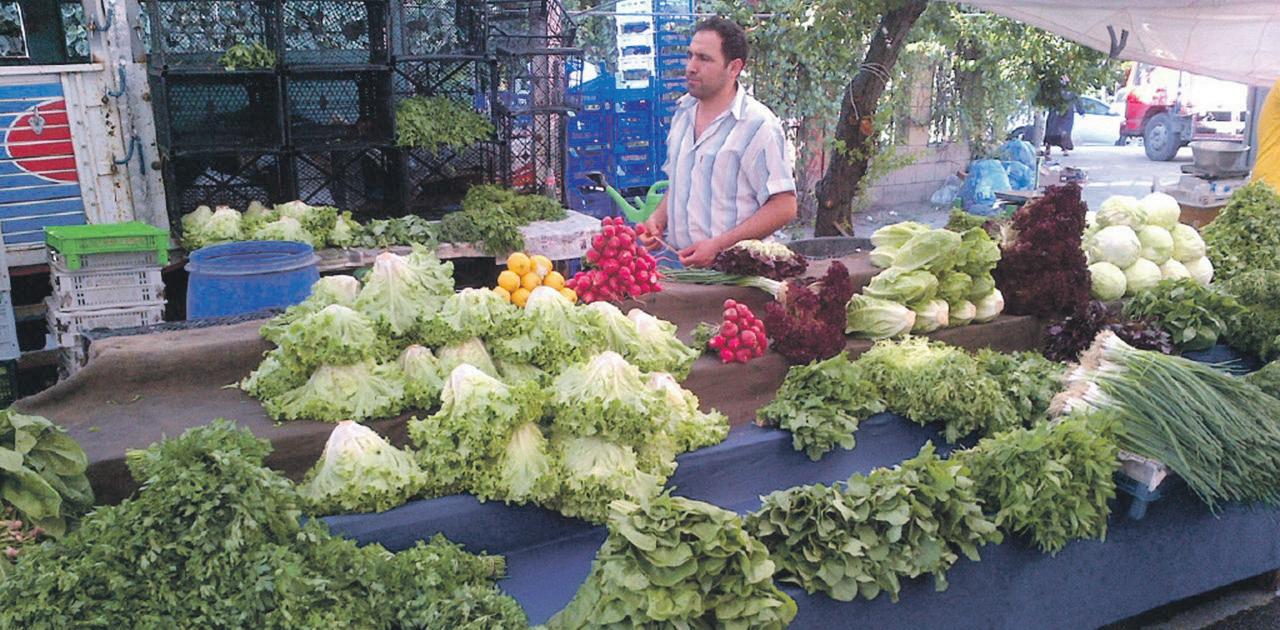
EVERY week, two of the Marina Alta’s most charming towns - Pego and Denia - come alive with their bustling weekly markets, offering everything from fresh local produce to clothes, accessories and the warmth of Mediterranean community life. For residents and visitors along the Costa Blanca, these markets are not only a chance to shop local, but to experience the historic and social heartbeat of the region.
Every Thursday from 8am to 2pm, Pego hosts its Mercado Semanal (Weekly Market). It’s spread across two main areas: the Plaça del Mercat, and the adjoining streets including Carrer de la Pau, Avinguda d’Alacant, and Plaça de l’Antic Regne.
Every Friday from 8am to 1.30pm, Calle La Vía transforms into a vibrant fruit and vegetable market, where local farmers and producers from the comarca come to sell their seasonal harvests. From vine-ripened tomatoes to Valencian oranges and locally-grown olives, this is a true farm-tomarket experience.
While smaller than Pego’s general market, Denia’s Friday market is beloved for its authenticity and qualityand many expats have made it part of their weekly routine. If Friday falls on a public holiday, it’s best to check with the town hall whether the market will take place.
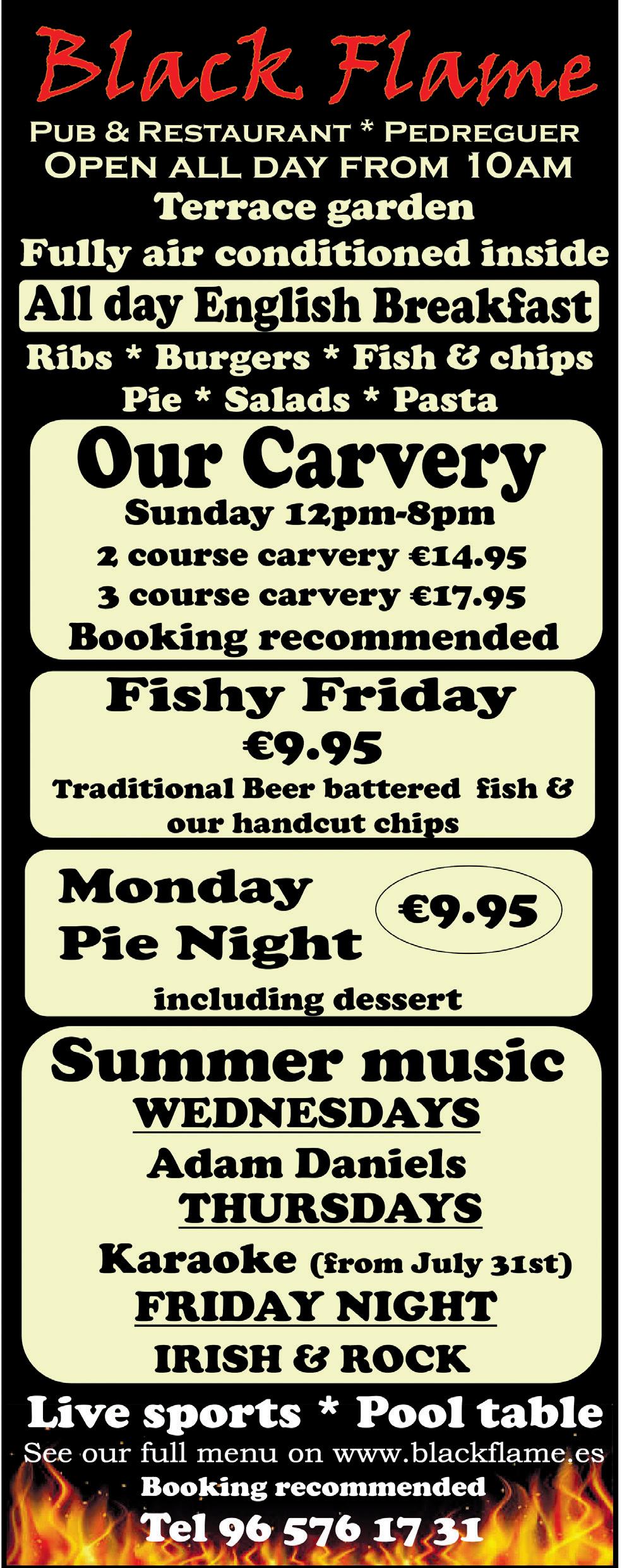




BENISSA is inviting residents and visitors to discover its free guided tours designed to explore the town’s history, culture and stunning natural surroundings. With the chance to join evening strolls through the old town in English or French, with expert guides sharing the stories, architecture and traditions that have shaped Benissa over the centuries.
Groups are divided by language, with English tours available on Thursdays throughout July and August (July 10, 17, 31 and August 14, 28), and French tours scheduled on select Thursdays (July
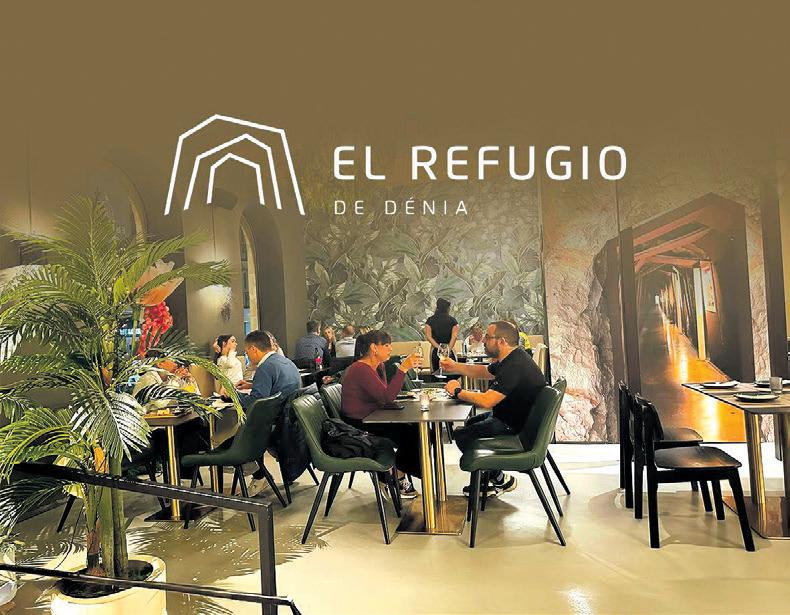




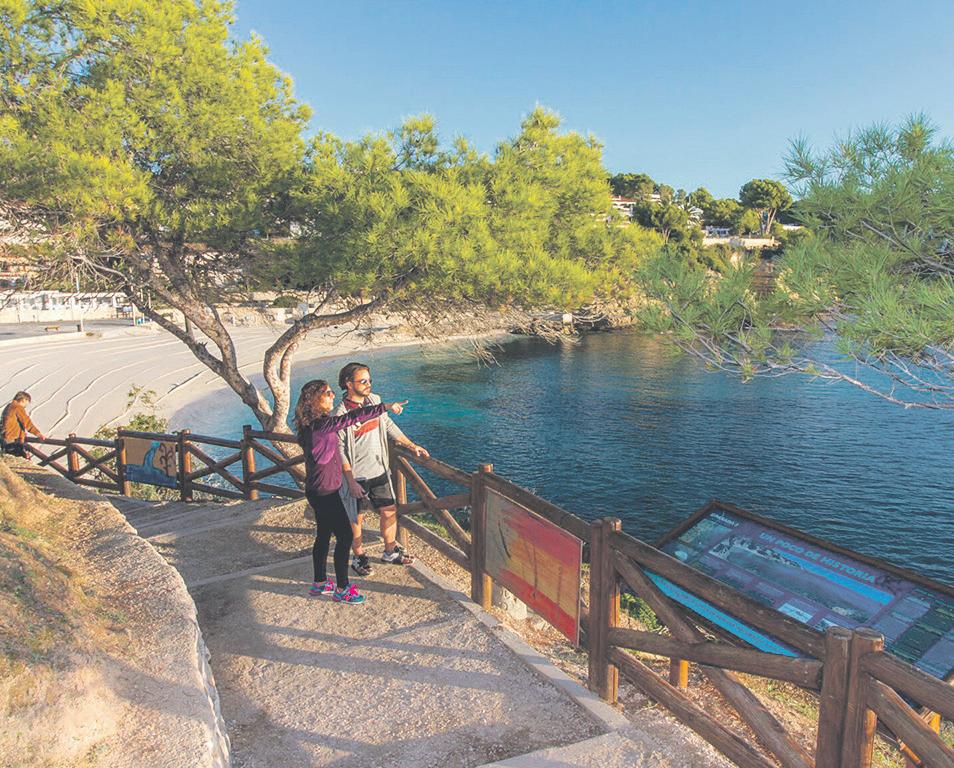
24, August 7 and 21). All tours start at 7pm, departing from the entrance to the Basílica de la Puríssima Xiqueta, the town’s most iconic landmark.
Benissa is also offering night-time coastal tours during the full moon. While these are currently only available in Spanish, they provide a magical way to experience the Paseo Ecológico, the ecologi-
cal trail that winds along Benissa’s rugged coastline. The moonlit walks will take place on Saturday July 12 and Saturday August 9, starting at 9.30pm from the lifeguard post at La Fustera beach.
All tours are free of charge, but prior booking is essential. Participants are advised to bring water, wear comfortable footwear, and for the coastal tour, pack a light picnic for the traditional ‘cena de sobaquillo’ - a Valencian-style bring-your-own dinner.
Bookings: WhatsApp: +34 627 307 511
turismo@ajbenissa.es
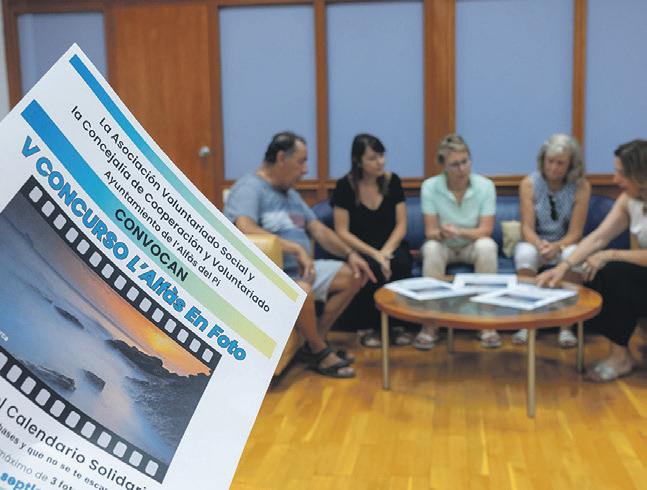
L’ALFAS DEL PI is launching the ‘#LalfasEnFoto’ photography competition, a charitable initiative aimed at selecting 12 images to illustrate the 2026 Charity Calendar of the Social Volunteering Association.
ges of cultural events, festivities or elements of local heritage. People of l’Alfas: portraits or everyday scenes that capture the town’s intercultural spirit and sense of community.
Months of the year: snapshots of seasonal activities and events throughout the calendar year.

























































As in previous years, proceeds from calendar sales will go towards supporting the Food Bank of l’Alfas del Pi. This is a joint initiative by the Departments of Cooperation and Volunteering, International Residents, Tourism, Commerce and Festivities, in collaboration with the Social Volunteering Association. The competition is divided into four thematic categories, designed to reflect the town’s essence, diversity and richness:
Submissions are now open and will be accepted until September 1, 2025. Entries should be sent by email to: cooperaciony voluntariado@lalfas.com with the subject line ‘Photography Competition #LalfasEnFoto’.
First prize: one night for two people with full board at Hotel Sun Palace Albir.



















Landscapes and iconic locations: photographs showcasing natural beauty and well-known local spots.
Culture and tradition: ima-
Second prize: a photography and stationery gift pack from YoEly.
Third prize: lunch for two at Restaurante Casa Teo Albir.













TUCKED away in Plaza Benidorm, just a short stroll from Denia’s bustling streets and coast line, Mediterrasian is an invitation to journey through a unique blend of Me diterranean soul and Asian flair.
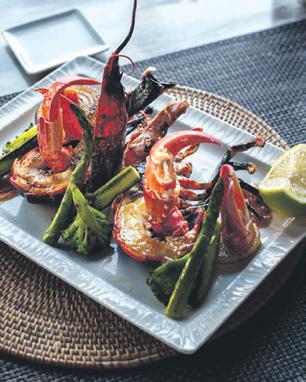

The restaurant’s warm, modern interior welcomes guests into a relaxed, stylish setting. Clean lines, pale woods, and soft lighting set the tone for both casual lunches under the Mediterranean sun and intimate dinners beneath a starlit sky. Whether you’re visiting for a quick bite or celebrating something special, Mediterrasian has the atmosphere - and the ambition - to turn an ordinary meal into something memorable.
Mediterrasian’s culinary identity is defined by its bold yet balanced fusion. Far from mimicking dishes from Japan, Thailand or Vietnam, the kit-


Flavourful and deeply satisfying food.
chen reimagines these influences through a Mediterranean lens. Think Denia prawns transformed into delicate tartars with Japanese dressings, or traditional rice dishes like arroz a banda infused with the warmth of coconut milk.
The restaurant’s approach is not just about surprise - though you’ll find plenty of that in each plate - but about creating flavourful, deeply satisfying food. Each dish is built on strong culinary foundations: slow-cooked stocks, precise cooking points, and
imaginative presentation. There’s no unnecessary complexity - just creativity, craft and care.
From small, cold plates designed to whet the appetite - like the mature tomato salad with anchovies and boquerones, or the smoked beef carpaccio with Comté shavings - to warming dishes that showcase Mediterranean ingredients through Asian techniques, the menu is dynamic and deeply seasonal.
Plaza Benidorm, 18, Denia mediterrasian.es Tel: 965 785 083
EVERY TUESDAY evening throughout July and August, Javea’s Arenal Beach transforms into a giant outdoor cinema as the Cine Vora la Mar series returns for another summer of films by the sea.
The initiative offers free open-air screenings from 10pm. With a focus on family-friendly entertainment, the programme combines accessible culture, quality cinema and a relaxed beachside setting to create memorable summer nights under the stars.
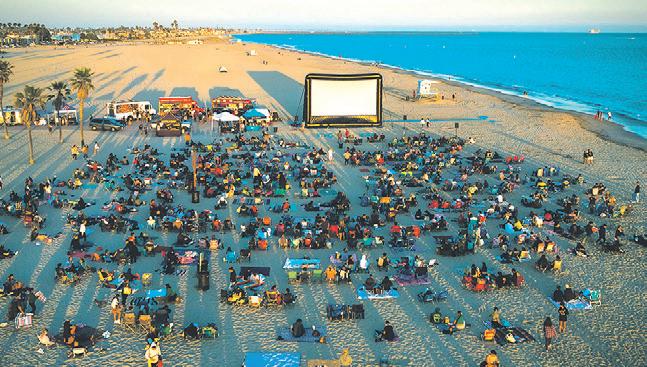
screening on August 5, is perfect for children and families. On August 12, superhero fans can enjoy Shazam! Fury of the Gods, a dynamic American action film rated 12+. The pro gramme concludes on Au gust 19 with Buffalo Kids, a recent Spanish animated adventure suitable for all.








On July 15, the spotlight turns to time-travelling science fiction with the Spanish family film ¡Salta!, seen through the eyes of a young boy. July 22, brings high-stakes thrills with Twisters (USA, 2024), a gripping action-packed sequel not recommended for under-13s. Rounding off the month on July 29 is Los buenos modales, a Spanish comedy aimed at viewers aged seven plus.
August opens with animation for younger audiences. Guardiana de dragones (Spain, 2024),


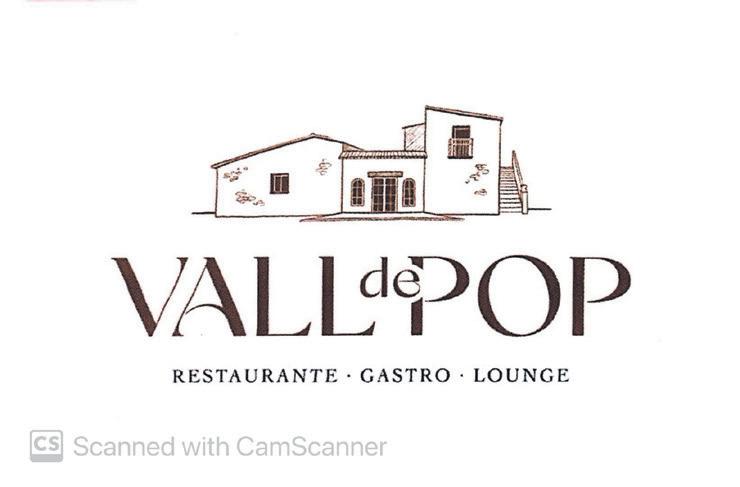

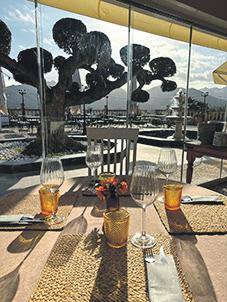




EVERY Saturday evening, as the sun begins to dip behind the mountains, the quiet town of Orba in Alicante comes to life with the colours, sounds and flavours of Mans de la Terra, a community market rooted in sustainability, creativity and local pride.
bles are picked close to home, with the vibrant colours of summer produce shining from the stalls. The market offers an eclectic mix of handmade jewellery, leather goods, natural skincare products, macramé, clothes, ceramics, incense, and more.
At 9pm, local musicians take to the stage, creating a relaxed and joyful atmosphere where families, visitors and locals can share a drink, a bite to eat, and a sense of community.








Mans de la Terra is a gathering point - a weekly celebration of the land and the people who care for it. From 6pm to 11pm (summer schedule), the village square transforms into a lively scene of stalls, live music and neighbours reconnecting over shared values: local produce, handmade goods, and a slower, more mindful way of living.
At Mans de la Terra, visitors can do part of their weekly shopping in a way that feels good - supporting small producers, reducing environmental impact, and enjoying food that is seasonal, organic and full of flavour.
Honey, jams, and sweet treats sit beside rustic breads, pastries, and stone-baked pizzas. There are cheeses of every kind.
The fruit and vegeta -

IN a world awash with wine labels and classifications, Spain offers something rare and poetic: Vinos de Pagon - wines born not just of place, but of profound identity. These are not mass-produced bottles, but expressions of singular estates where the soil, climate, grape, and human hand converge with quiet precision. Officially recognised by Spanish law, a Pago is a vineyard so unique it earns its own appellation, standing apart even from its broader region.

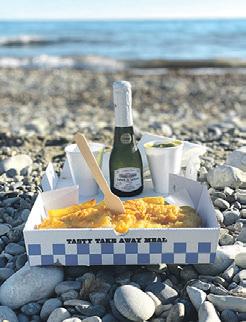

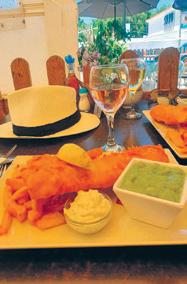






Yet beyond the legal framework lies something deeper: a soulful commitment to excellence. Grandes Pagos de España, a private association of elite estates, em-
braces this ethos. It unites some of the country’s most passionate winemakers, from Castilla-La Mancha to Navarra, who craft wines that speak with clarity and confidence about where they come from. In both Vinos de Pago and Grandes Pagos, we find an antidote to uniformity - a return to the land’s voice, filtered through tradition, innovation, and deep respect. These wines invite us not just to taste, but to listen. To slow down. To recognise that sometimes, a single vineyard can tell a story as grand and timeless as any region or nation.
A sip of Pago is a sip of soul.
martha@marthasvineyard.es What’s App: +34 711 023 344


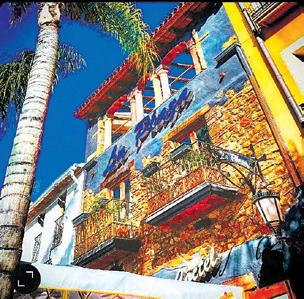
NOW in its 14th summer, Fishy Fishy has become something of a local institution in Moraira, offering a warm welcome, traditional British fish and chips, and an authentic sense of community that’s increasingly rare in today’s restaurant world.
Set just off the coast road, this charming spot is run by Craig and Nicola, who opened the doors back in July 2012 with little more than a shell of a building and a lot of hope. What began as a leap of faith has clearly paid off. In the early days, they relied solely on word of mouth and local newspaper advertising.
The results of that slow, steady graft are clear: Fishy Fishy has thrived thanks to loyal customers, wordof-mouth recommendations, and a consistency that keeps people coming back year after year.
The setting is unpretentious yet inviting, with the option to take away or dine in on the terrace - perfect for a laid-back lunch or a relaxed summer evening. The service is friendly and personal, with staff that genuinely cares whether you’ve en-
joyed your meal. Jamie, their son-in-law, is still at the helm, adding a real sense of continuity and family-run charm.
The menu is a celebration of classic British fish shop fare. Cod in home-made beer batter is the star of the show, crispy on the outside and tender within. Hake offers great value at €8. Portions are generous, and the muspeas are a nostalgic touch. For something different,





with tartar sauce and peas) is a surprising highlight. Fish-
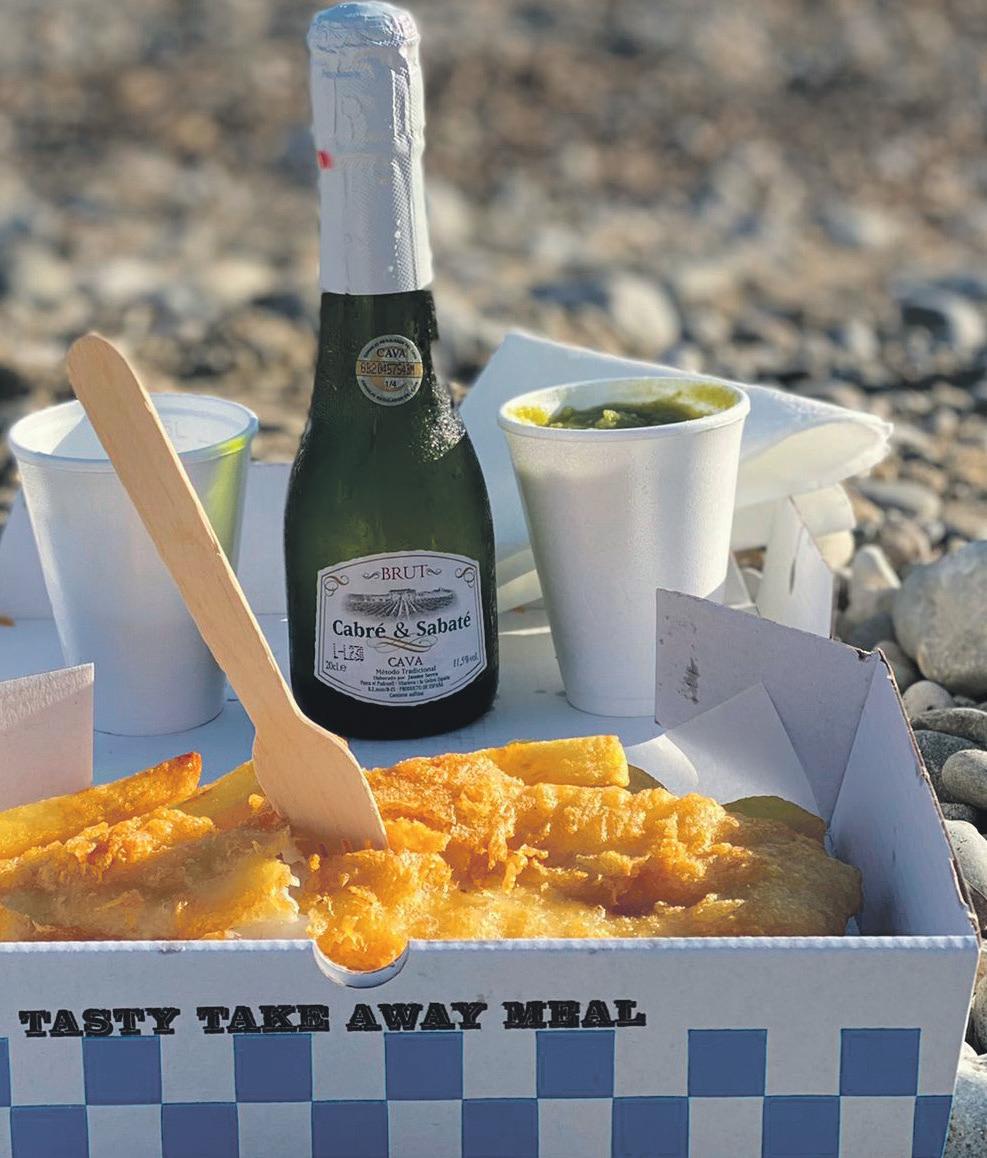








Brexit and Covid to rising fish prices and North Atlantic quotas. Yet Craig and Nicola remain committed to offering value without compromising quality. Their openness and humility - even admitting to mistakes and learning from them - make Fishy Fishy more than just a restaurant: it’s a story of resilience, family, and community.
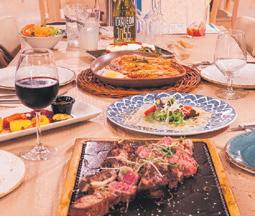






Craig months






work-life balance in a family-run business.

They operate a reduced schedule during the hottest months (lunches on Wednesday to Friday, and dinners six nights a week from 5pm-9pm), and they’re closed Sundays - a nod to the importance of work-life balance in a family-run business. What’s perhaps most telling is the loyalty of their customer base: regulars include Spanish locals and British expats alike, and even one couple who drive three hours every month just for a plate of Fishy Fishy’s finest.
In short, Fishy Fishy offers more than just good fish and chips - it delivers a heartfelt reminder that small, independent restaurants still matter.


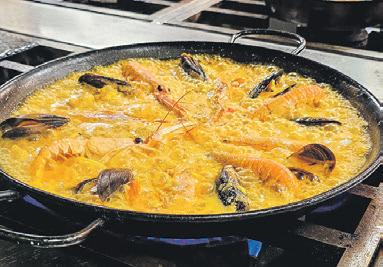






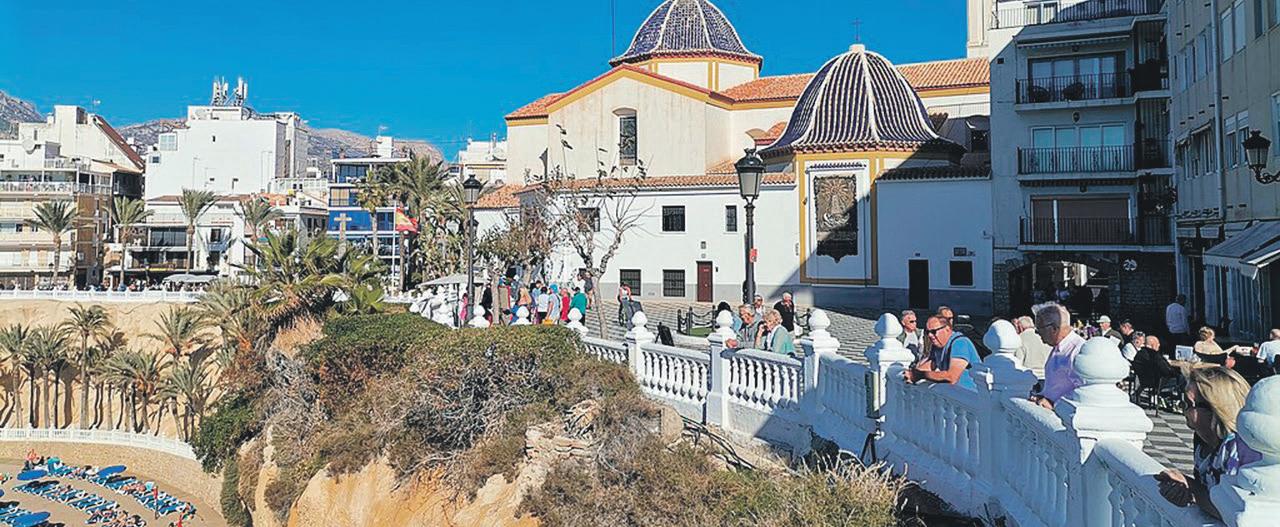
LES NITS DEL CASTELL DE BENIDORM returns this summer with workshops and its beloved craft market, held every day from 7.00`m to 1.00am until September 30. Held in Plaza de Castelar and Plaza de la Senyoría, the event is organised by the Department of Commerce and the local traders’ association.
This year’s edition features 13 accredited artisans offering handmade jewellery, soaps, cold porcelain, and other crafts. A dozen artists, including caricaturists and silhouette cutters, add a live art element to the vibrant atmosphere.
One of the main highlights is the free artisan workshops, held every Monday to Thursday at 8pm in Plaza de la Senyoría. July sessions include wor-


king with seashells, weaving, costume jewellery, and polymer clay. In August, participants can learn techniques in ceramics, bookbinding, and more. Each session is led by a participating artisan, who shares their skills directly with the public.
The local disability association, Asmibe, also runs a stall showcasing fans, notebooks, and other items crafted by its members - part of the council’s ongoing commitment to inclusion.
Mayor Toni Pérez and councillor for Commerce Javier Jordá encouraged both residents and visitors to enjoy the summer programme, which blends creativity, culture and community in the heart of Benidorm’s old town.
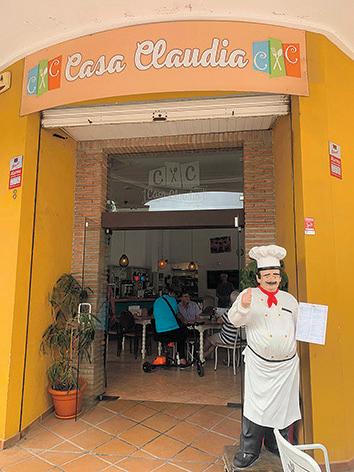
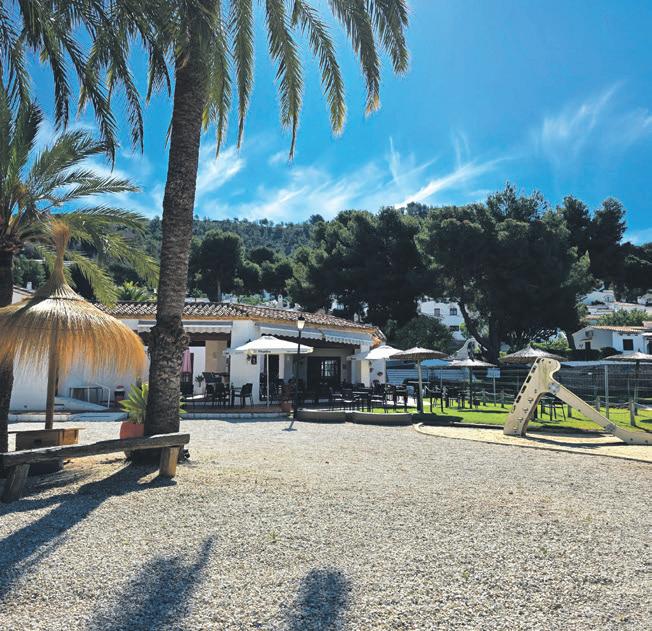



MORE than a dozen artists will exhibit original works in Plaza del Castell, Els Poblets, turning the square into an open-air gallery on Saturday July 12. This event continues the spirit of Persianes amb Art, bringing art into public spaces.
Art markets differ from craft fairs; while both boost local culture and commerce, true art markets are rare in the Marina Alta region. The Costa Blanca is famous for lively street markets, but those focused exclusively on original artworks are uncommon. The Mercat d’Art offers a unique platform for professional and emerging artists from Valencia and the Balearic Islands to present paintings, sculptures, ceramics, screen prints, lithographs, artist-designed t-shirts, illustrations, and photographs.
The summer edition takes place from 19.00 to 22.00 in Plaza del Castell. Organised by the town
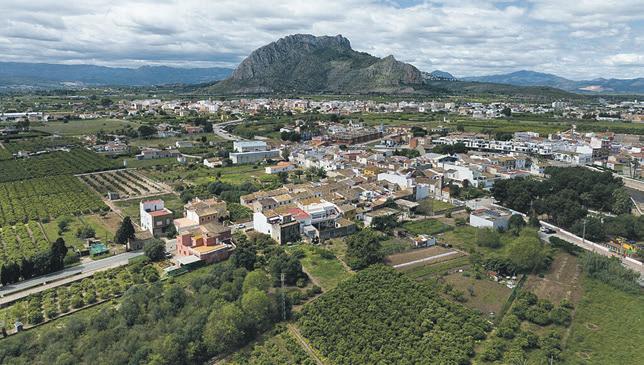
hall and Fundacio Balearia, it is part of a series of four events throughout 2025, with earlier sessions held in May and June, and a final one planned for August.
The market will become a vibrant social hub, where
visitors can buy unique art, meet the creators, and share stories.
This event breaks down traditional gallery walls, letting art spill into the streets and become part of everyday life in Els Poblets.
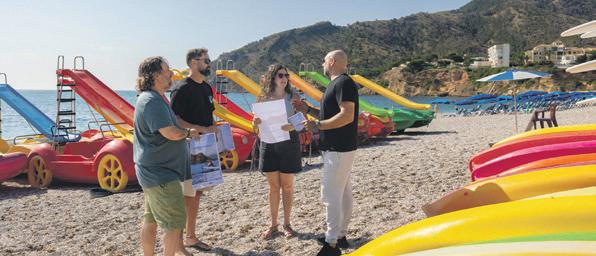
discover the coastline.














WHAT began as a small local initiative has become one of the most popular and eagerly anticipated summer activities for young people in the area - combining sport, nature and fun in a safe and educational environment.
The outings take place along the stunning coastline of the Serra Gelada Natural Park, offering participants the chance to explore hidden coves and learn about the area’s unique environmental, geological and cultural heritage.
the months of July and August. Each trip starts at 10.00am and lasts approximately two hours.
Participation is free of charge and limited to groups of eight people per outing, ensuring a safe and guided experience.
The programme is open to young people aged between 16 and 35, with priority given to residents registered in l’Alfas del Pi.

The excursions will take place every Tuesday morning throughout
For more information, contact the Youth Department via email at juventud@lalfas. com, or by calling 965 887 435 or 610 205 329.






BENIDORM - In a bold leap forward, Benidorm Palace, the Costa Blanca’s most iconic entertainment venue, has launched its latest production: ELEMENTS. This spectacular new show redefines the live performance experience, delivering a multi-sensory journey that fuses cutting-edge technology with breathtaking talent - all set against the backdrop of an inspiring narrative.
For decades, Benidorm Palace has been a beacon of showmanship, captivating audiences from around the world with its world-class performances. Now, with ELEMENTS, the venue is ushering in a new era, marrying the timeless
appeal of theatrical arts with the dynamic power of digital innovation.
At the heart of this season’s show is Arche, a compelling artificial intelligence figure whose awakening sets the story in motion. Through Arche’s transformation, the show explores the elemental forces - earth, water, fire, and air - as symbols of rebirth and renewal. The result is an inspiring tale of hope and environmental harmony that speaks to all generations.
More than 50 performers from Spain and across the globe grace the stage each night. Their talents span an array of disciplines, including contem-

porary dance, gravity-defying acrobatics, mind-bending illu sion, and precision balancing acts. Each performance is a visual masterpiece, enhanced by stunning choreography and a soundtrack that pulses with energy.
The production’s technical mastery is equally impressive. ELEMENTS boasts a state-ofthe-art sound and lighting system, immersive video projections, and elabo rate stage design that together create an atmosphere unlike anything else in Europe. Every moment is crafted to pull the audience deeper into the world of the elements, evoking won der, excitement, and emotional connection.

Benidorm Palace has long been known for its all-inclusive entertainment experience, and ELEMENTS continues that tradition. Patrons can enjoy a gourmet dinner before the curtain rises, followed by an evening of mesmerising performance and live music.
It’s an ideal night out for families, couples, and groups looking to celebrate a special occasion or simply treat them-


also invited to go beyond the curtain with the exclusive Backstage Tour. This unique addition offers a rare glimpse into the inner workings of the show - from the costume and makeup rooms to the intricately designed stage sets. Guests can witness firsthand the immense preparation and coordination that bring the magic of ELEMENTS to life.
The response to ELEMENTS has been overwhelmingly positive, with both locals and tourists calling it a ‘must-see’ du-

ring their time in Benidorm. Its universal themes, combined with unparalleled spectacle, make it a standout experience in the region’s entertainment scene.
So, are you ready to witness the power of the elements and be swept away by a show unlike any other?
Don’t miss your chance to be part of this extraordinary adventure. Book your tickets now - and prepare to be amazed.

UK bonds and the pound tumbled sharply on July 1 amid rising concerns over Finance Minister Rachel Reeves’ future. Ten-year gilt yields saw their biggest surge since 2022, and sterling dropped over 1 per cent. Market jitters followed political uncertainty after Reeves appeared emotional during a major fiscal policy reversal in Parliament.
EU countries are pushing back against Brussels over cross-border banking mergers. Italy cited national security to restrict UniCredit’s bid for Banco BPM, while Spain faced EU warnings for scrutinising BBVA’s takeover of Sabadell. The European Commission argues such resistance undermines efforts to build a unified banking market across the bloc.
PEDRO SÁNCHEZ’S right hand man Santos Cerdán, has been jailed amid a corruption probe. Accused of involvement in a kickback scheme linked to public contracts, Cerdán’s detention has intensified political pressure on the Spanish government. The investigation continues.
THE UK Parliament has launched an inquiry into the rapid growth of private markets since the 2008 financial reforms. The investigation will explore the impact on traditional banking, regulatory oversight, and potential risks. Authorities aim to ensure transparency, protect investors, and maintain financial stability.
SPANISH police dismantled a €460 million crypto fraud ring, arresting five suspects. The operation targeted over 5,000 victims worldwide, involving complex laundering through global networks. Authorities continue investigating to uncover further details and prevent future scams.
is the average length of a mortgage in Spain in 2025 with some extending up to 40 years for residents under specific conditions.
SANTANDER has announced it will buy British bank TSB for £2.65 billion, raising fresh concerns about job losses and branch closures across the UK. The deal, expected to complete in early 2026, will see TSB absorbed into Santander’s existing UK operations, making it the third-largest provider of personal current accounts in the country.
TSB currently operates around 175 branches and employs approximately 5,000 people. With Santander already running a large branch network, fears are growing that overlapping locations could lead to widespread closures and redundancies.
Staff and unions have called for reassurances as the integration process begins. The acquisition also strengthens Santander’s footprint in the UK banking sector at a time of increasing consolidation.

Executives say the move will improve efficiency and deliver hundreds of millions in cost savings, but critics warn that streamlining often comes at a human cost.
The future of the TSB brand remains uncertain, with industry insiders suggesting it may eventually be phased out. The deal still
THE owners of the collapsed Prax Lindsey oil refinery in the UK extracted £11.5 million in pay and dividends in the years leading up to the site’s financial failure, according to financial disclosures. Sanjeev Kumar Soosaipillai and his wife Arani reportedly took millions in executive pay and shareholder payouts while the company was incurring heavy losses.
Between 2022 and 2024, the refinery division posted losses of £109 million. Despite this, $7.3 million in dividends were issued, with a significant portion later reclassified as a debt to the company after exceeding distributable reserves. The collapse puts more than 400 jobs at risk and has raised concerns about fuel supplies. Government ministers have called for an urgent investigation into the directors’ conduct.
ASTRAZENECA’S CEO, Pascal Soriot, is reportedly considering relocating the company’s stock market listing from London to the United States. This stems from dissatisfaction with the UK’s regulatory environment and NHS rebate schemes. While AstraZeneca already trades in the US via American depositary receipts, a full move could impact the London Stock Exchange and the UK life sciences sector. The company has not yet informed the UK government about these discussions. AstraZeneca shares rose 2.7 per cent following the news.
needs approval from regulators and shareholders before it goes ahead. Communities served by both banks now wait to see how the merger will affect their local services and whether the promised benefits of the deal will outweigh the potential disruptions to jobs and customer access.

Prax’s auditor, KPMG, resigned in 2024, citing accounting concerns. The Insolvency Service is now assessing whether formal action should be taken against the company’s leadership.
A RECENT report has found that the fire at Heathrow Airport’s North Hyde electrical substation in March 2025 was caused by a preventable fault. The National Energy System Operator revealed that moisture in transformer components, identified years earlier, was not properly addressed. Additionally, the substation’s fire suppression system had been out of service since at least 2022.
The fire forced the closure of the airport, disrupting more than 1,300 flights and affecting thousands of passengers. In response, energy regulator Ofgem has launched an investigation into National Grid Electricity Transmission and ordered an independent audit of critical infrastructure.
SPAIN has the highest reliance on temporary work agencies (ETTs) among major EU countries, according to recent reports. About 4.1 per cent of Spain’s workforce is employed through these agencies, a figure notably higher than Germany’s 2.8 per cent and France’s 2.7 per cent.
The industrial sector, along with agriculture, hospitality, and logistics, heavily depends on temporary workers due to seasonal and fluctuating demands. While Spain’s use of ETTs is significant, other EU countries like the Netherlands see an even larger share of temporary employment through agencies. This highlights Spain’s flexible but often precarious labour market structure.
BRITISH bakery chain Greggs saw its shares drop over 12per cent following a profit warning linked to the recent heatwave. The soaring June temperatures, exceeding 33°C, led to fewer customers visiting stores, hurting sales despite higher demand for cold drinks.
Although first-half sales rose 6.9 per cent, Greggs now expects its full-year operating profit to be slightly lower than last year. The company continues its expansion plans, opening 87 new outlets while closing 56 in the first half of 2025.
SPAIN’S tax agency, Hacienda, has extended the deadline for mutualistas to request refunds of IRPF (income tax) for the years 2019 to 2022 and earlier periods still eligible. The extension follows delays in approving legislation to allow a single combined payment in 2025. While the new law awaits Senate approval expected in July, mutualistas can continue submitting refund applications through Hacienda’s online portal. This move provides relief to many taxpayers seeking reimbursement.
BANCO Sabadell’s president, Josep Oliu, has made it clear that shareholders who accept BBVA’s takeover offer won’t get the extra dividend tied to the sale of TSB. The €0.50 per share payout, part of a €3.8 billion plan to reward shareholders, will only go to those still holding shares when the dividend is paid. Sabadell is using this to encourage investors to think twice before agreeing to BBVA’s bid ahead of an important vote on August 6.
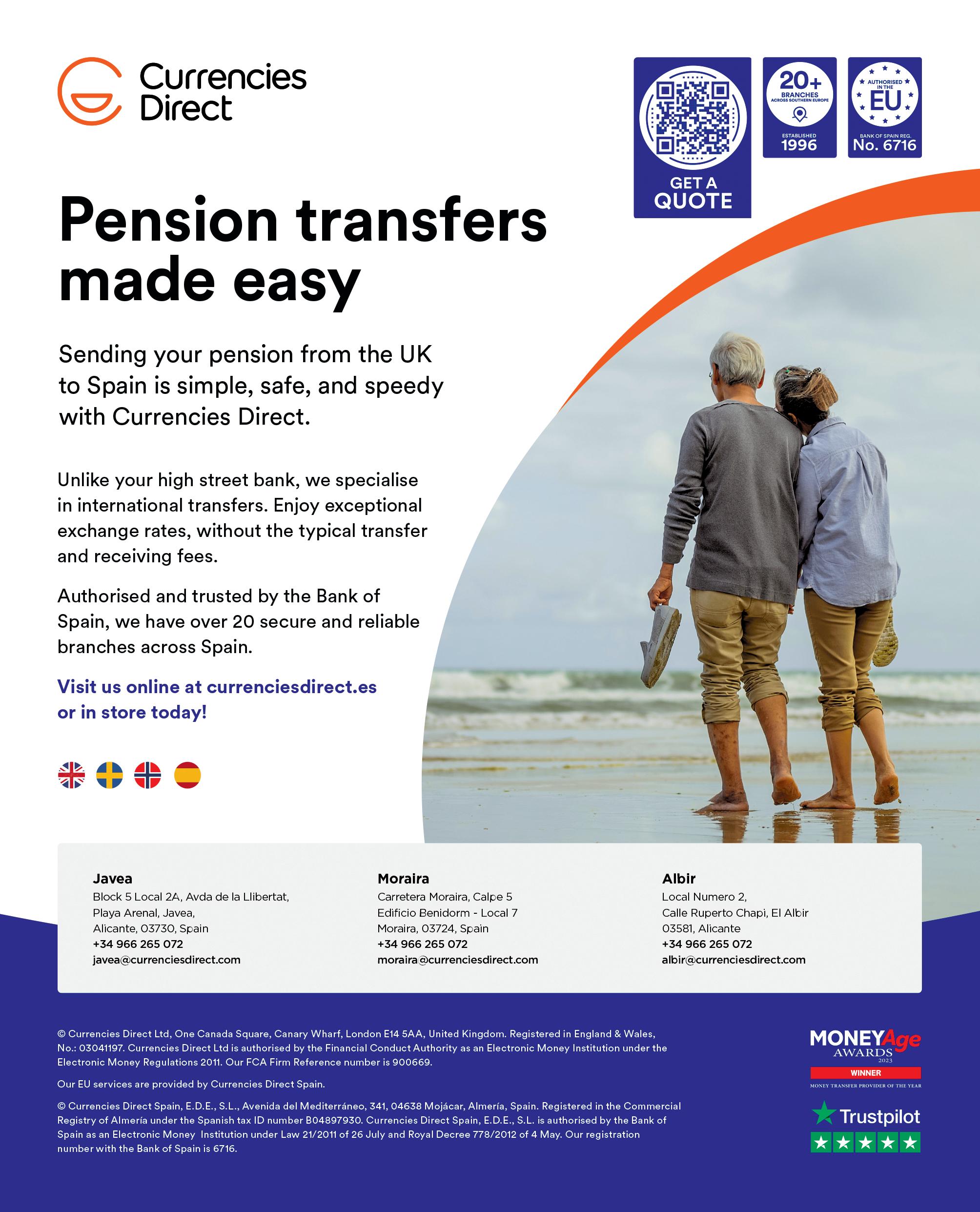
3I Group 4.054,00 4.060,00 4.044,00 7,69K
Group 3.370,6 3.376,0 3.356,0 5,17K Airtel Africa 180,20 180,20 178,00 103,82K Anglo American 2.183,9 2.190,0 2.182,0 29,37K Antofagasta 1.888,00 1.892,50 1.886,00 80,05K Ashtead Group 4.753,0 4.763,0 4.739,0 10,77K
British Foods 2.080,0 2.080,0 2.075,5 6,78K
10.284,0 10.364,0 10.274,0 30,59K
Trader Group Plc 813,20 813,40 808,93 5,18K
615,22 617,00 614,52 98,08K B&M European Value Retail SA 273,40 275,47 272,80 68,41K BAE Systems 1.863,27 1.872,00 1.857,00 195,24K
332,55 333,70 331,55 707,8K
Redrow 422,41 424,30 422,00 39,77K
Beazley 910,00 913,50 907,50 25,14K
Berkeley 3.604,0 3.617,4 3.588,0 3,87K
BP 373,15 379,00 372,45 1,4M
British American Tobacco 3.565,0 3.569,0 3.533,0 111,22K
Group 196,78 197,30 196,37 148K
2.340,0 2.362,0 2.334,0 12,64K
160,05 160,15 159,75 223,44K
HBC AG 4.060,0 4.064,0 4.030,0 4,87K
2.501,00 2.503,00 2.494,00 25,48K
Group 263,40 264,40 263,00 16,91K
4.814,0 4.826,0 4.806,0 6,13K

675,20 697,50 675,20 4,03K
1.495,00 1.498,00 1.484,00 48,33K

TTI Algeciras is about to invest €150 million to expand its terminal at the Port of Algeciras, boosting capacity by 500,000 containers to 2.1 million. The project, extends the concession to 2065, massively boosting the port’s global logistics role as well as the possibility for Spain’s external trade.
A SEVILLA judge has cancelled an €11.3 million debt for a woman, granting her a ‘second chance’ under Spain’s bankruptcy law. This is the second-largest debt exoneration in Spain, following a €19 million cancellation for a Cordoba resident in 2024. The woman, who guaranteed her husband’s business, faced debts liquidation.
WHILST the British government appears to have enough money to double its commitment to NATO (just a mere £43 billion) and to allow the Army to sponsor England football on TV, it continues to ignore the plight of pensioners and the disabled.
It has undertaken a partial U-turn in the case of winter fuel allowance and after an ‘uprising’ from Labour back benchers over planned welfare cuts, it continues to be obdurate over the case of the ‘WASPI Women’ although the group is demanding a third U-turn.
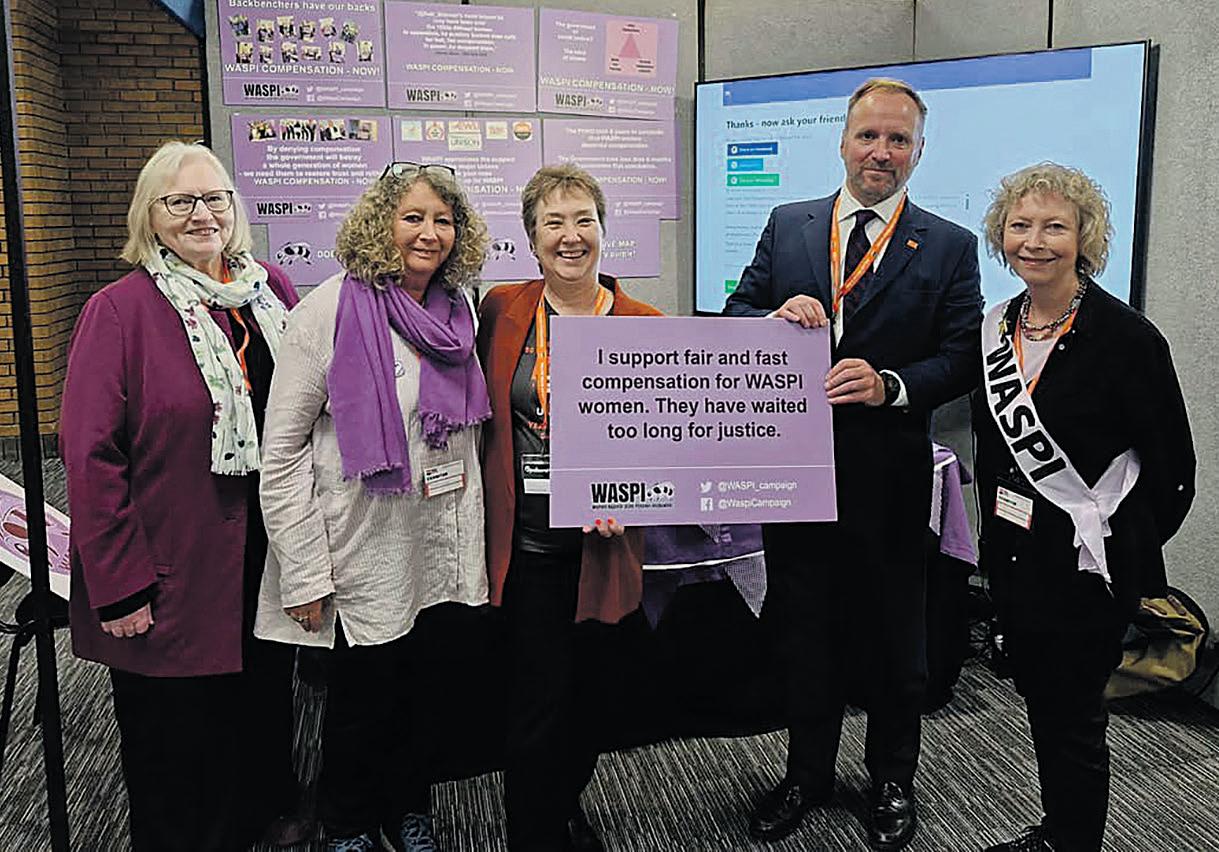
The Parliamentary Ombudsman found that those women born in the UK between 1950 and 1960 discovered, often too late to do anything about it, that their rights to receive State Pension support had changed and they would have to wait until they were 65 to receive their pensions. Its office recommended that those who were affected (and there were originally some 3.6 million although that has dropped due to death by 379.400 so far) should receive some form of financial compensation calculated at between £1,000 to £2,950 each.
dership of WASPI (Women Against State Pension Inequality) is taking the government to court, but first applied for financial support from government lawyers proposing a costs capping arrangement, in line with the clear public interest in this case, and its complexity.
Perhaps unsurprisingly the response was negative, so the next step was to apply to the Court for approval so that the WASPI case may go ahead without the risk of bankrupting the organisation and those involved with it should the case be lost.
The Department of Work and Pensions (DWP) whilst prepared to apologise if any were inconvenienced refuses to make any compensation payment to any of the women affected.
For this reason, the lea-
At the very last minute, the government capitulated and agreed to a costs cap although WASPI still faces enormous legal costs in hiring lawyers and experts to argue the case for the three million plus women involved.

AS men move past 40, maintaining lower body strength and balance becomes increasingly important for overall health, mobility and injury prevention. With natural muscle mass starting to decline, targeted effort is needed to stay strong and stable.
The lower body, particularly the legs, hips and core, plays a key role in daily movement, posture and joint support. Simple
strength building exercises such as squats, lunges and step ups can be done at home without equipment. These movements not only build muscle but also support knee and hip health. Balance is equally vital. As reflexes and coordination naturally slow with age, exercises
like single leg stands, heel to toe walking and controlled leg lifts help maintain stability and confidence, particularly on uneven surfaces.
Adding in regular walking, swimming or cycling boosts endurance while being gentle on the joints. Stretching and mobi-













lity work, especially around the hips and ankles, prevents stiffness and aids movement. Consistency is key. Just a few sessions each week can deliver lasting results, improving not only physical strength but also overall well-being and independence into the years ahead.
BAREFOOT running has become a rising trend in the fitness world, with many embracing the idea that less is more when it comes to footwear. Advocates claim that running without shoes or in minimalist alternatives encourages a more natural stride, improves posture, and strengthens muscles in the feet and legs that are often neglected in cushioned trainers.
Traditionally, modern running shoes have encouraged heel striking, where the heel hits the ground first. Barefoot running, by contrast, typically shifts the stride to a forefoot or midfoot landing, which some believe reduces joint impact and mimics how our ancestors moved. However, switching too quickly can cause injury, as years of wearing supportive footwear mean those key muscles may not be ready for the change.


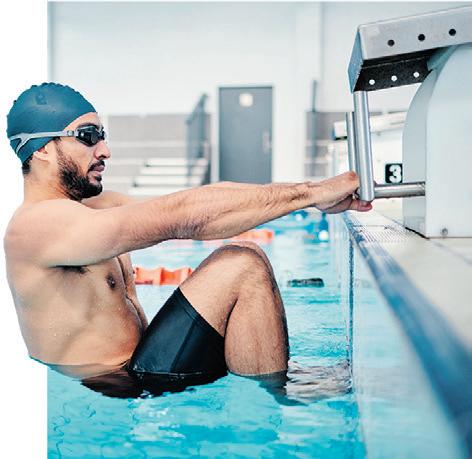

Is it better for you? The answer depends on your body, running style, and surface. For some, it offers fewer injuries and a stronger connection to the ground. For others, it may lead to strain if not approached carefully. If you are curious, start slowly, listen to your body, and consider speaking to a podiatrist or running expert before kicking off your shoes.
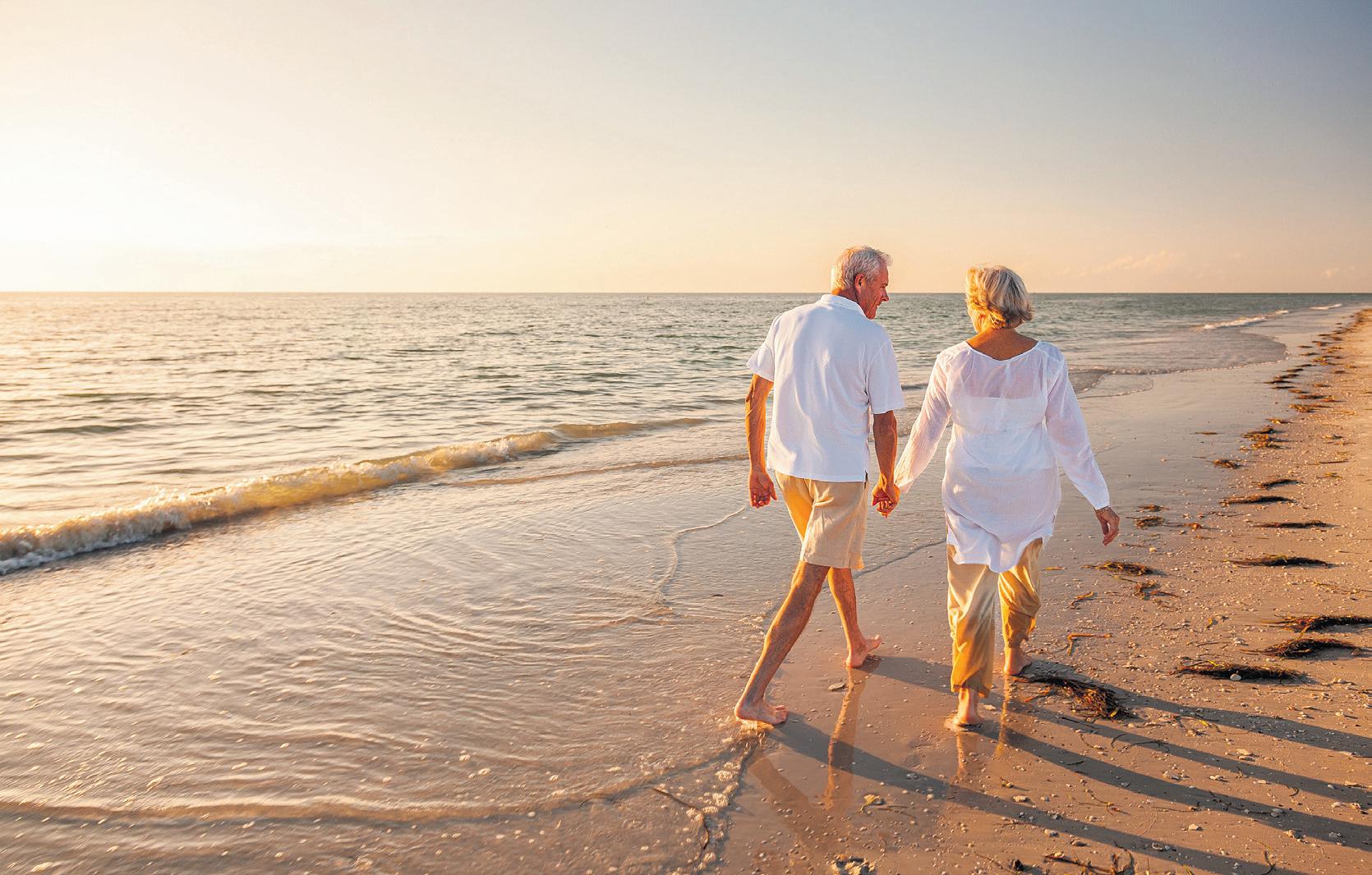




YELLOW lens glasses have become increasingly popular for their potential to reduce glare, improve contrast, and ease eye strain. These tinted lenses work by filtering out certain wavelengths of light, particularly blue light, which can be harsh on the eyes.
Originally marketed for night driving, yellow lenses help reduce gla-
re from headlights and streetlights, making nighttime vision feel sharper and more comfortable. However, their use has expanded beyond the road. Many people now wear them indoors or while using digital screens to block out blue light and reduce eye fatigue.
Some users report improved focus and

reduced headaches, especially during long hours at a computer or under fluorescent ligh-
ICE rollers are handheld skincare tools with a cold metal or gel-filled head that you roll across your face. They’re designed to reduce puffiness, tighten pores, soothe inflammation and boost circulation. Often stored in the fridge or freezer, they give an instant cooling effect that many people find refreshing, especially in the morning.
puffiness, calm redness and give your skin a temporary lifted look. They may also help relieve tension or headaches when used around the temples and jaw.
On the plus side, they are affordable, easy to use and reusable. However, the effects are usually short term and they will not replace more intensive skincare treatments.
ght find the cold too harsh, so it is important to use rally cost between ding on the brand and materials. For a quick, cooling pick me up, they are a simple addition to








IF you are ready to add a splash of personality to your hair, purple balayage might be the perfect trend to try. This vibrant, yet wearable colour is taking over social media and salons alike, offering a fun twist on the classic balayage technique with rich shades of violet, plum, and lavender woven seamlessly through your hair.
Balayage, a French word meaning ‘to sweep’, involves hand-painting colour onto the hair to create a natural, blended effect. With purple balayage, stylists apply shades of purple in soft strokes, often focusing on the mid-leng-
ths and ends, so the look remains low maintenance and grows out gracefully.
What makes it popular is its versatility. You can go bold with deep jewel tones or keep it subtle with pastel highlights. It works well on both light and dark hair, and suits a wide range of skin tones.
To keep your colour vibrant, use sulphate-free shampoos and a purple toner to reduce fading. Purple balayage is the perfect mix of edgy and elegant and a stunning way to express your unique style.
FEELING flushed after a long walk or a day in the sun is a sign of your body heat in action. This internal warmth is produced by your metabolism, the system that keeps your body functioning every second of the day. Most people maintain a body temperature of around 37°C, but this can rise with physical activity, stress, or exposure to high temperatures. In extreme conditions, body heat can climb above 38°C or even reach 40°C, which may lead to heat exhaustion or heatstroke if not properly managed.



to release excess warmth.
To stay cool, drink plenty of water, wear breathable clothing, and avoid intense activity during the hottest parts of the day. Cooling foods like cucumber, watermelon, and mint can also help.
RETURNING to daily life after a holiday can sometimes bring a sense of sadness or low mood. This feeling is normal but can be managed with a few simple strategies. One helpful tip is to clean your home before you leave, so you return to a tidy and peaceful environment. Coming back to a clean space can help reduce stress and create a calming atmosphere.
Try to ease back into your routine gradually rather than jumping straight into busy schedules. Allow yourself some downtime to relax and adjust. Planning something enjoyable to look forward to, such as a social activity, can also help shift your mindset.
Your body naturally regulates heat through sweating, which cools the skin as it evaporates, and vasodilation, where
Getting enough rest and managing stress also supports temperature regulation. With a few simple habits, you can stay cool, comfortable, and healthy throughout the warmer months.

Maintaining a healthy lifestyle is important. Regular exercise boosts mood-enhancing chemicals in the brain and helps reduce stress. Eating a balanced diet and getting enough sleep are equally essential in supporting emotional well-being. Staying connected with friends and family provides emotional support and reduces feelings of isolation. Sharing your holiday memories with others can keep the positive feelings alive. If possible, try to bring elements of your holiday into daily life. This could be through cooking favourite dishes from your trip, listening to music you enjoyed, or continuing a new hobby discovered while away. Finally, if feelings of sadness persist or worsen, consider seeking advice from a healthcare professional. Post-holiday blues are usually short-lived, and with time and self-care, you can transition smoothly back to everyday life.
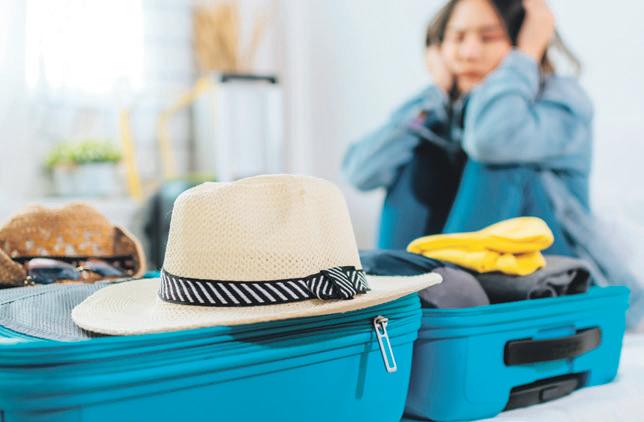
















































BULLFIGHTING resumed in Estepona on July 6, with a sold-out event drawing families to the bullring, where they cheered the ritualistic spectacle. However, animal rights groups, including AIMS (Animals in Marbella Sanctuary), protested peacefully outside, condemning the practice as barbaric and torturous to animals.
Witnesses made note of how many children under 16 entered the event, despite European laws prohibiting minors from attending bullfights or participating in bull-running, despite fundamental children’s rights.
Supporters argue bullfighting is a centuries-old Spanish tradition, symbolising bravery and cultural identity, particularly in Andalucia. It generates significant revenue, supporting jobs in breeding, tourism, and event management. Some claim fighting bulls are raised in better conditions than factory-farmed animals, living in open pastures before their brief time in the ring.
Nerja beach crowned
NERJA, often called the undisputed jewel of Axarquia, never fails to turn heads. According to travel search engine Jetcost, Nerja’s Calahonda beach is not just beautiful, but it’s one of Europe’s 14 most original and secret beaches. Topping this original list, Calahonda stands out thanks to its central location near the famous Balcon de Europa, a cliffside viewpoint offering stunning Mediterranean views.
Jetcost highlights its distinctive charm: whitewashed houses and old fishermen’s storage buildings situated against rocky cliffs, all facing a dark-sand, U-shaped cove. At just 120 metres long, the beach may be quite small, but it’s packed with a lot of character. A stone promenade and nearby restaurants make it both scenic and accessible. What really makes Calahonda shine is beneath the surface. Literally. Its clear waters are perfect for snorkelling and scuba diving, with colourful fish, octopus, and starfish among the sights. Underwater caves and rock formations add to the adventure. Only five Spanish beaches made Jetcost’s top 14 list.
Dua Dazzles in Deia
ENGLISH and Albanian pop star Dua Lipa is enjoying her luxurious holiday in Mallorca with some friends. The singer recently took to Instagram to share some photos from her holiday, and amidst crystal blue waters, lush greenery, scenic hills and mountains, and a studded black bikini, it’s clear Dua Lipa is having the time of her life in Cala Deia.
Mallorca is a quick holiday pit stop as the artist continues her Radical Optimism Tour, the third studio concert tour of her career so far. The tour promotes Dua Lipa’s most recent studio album, Radical Optimism, which was released in May of last year and saw booming success. The tour is set to kick off again on August 1 in Pristina, Kosovo, but until then, it seems the singer is recharging her batteries on the shores of marvellous Mallorca.
This is not the first time the star has visited Mallorca. In 2019, Dua Lipa captured the hearts of Mallorcan citizens when she visited the isle wearing a jacket with the Mallorca flag on it.
ALICANTE has a new and improved cultural zone for music, dancing, eating, and festivities. The Muelle Live, or Live Dock, is a leisure area being revived by the city of Alicante for events in August, and promises to be an atmospheric and popular part of the already-bustling coastal city. Muelle Live, located on Dock 12 in Alicante’s port, will reportedly focus mainly on gastronomical and musical events, but will also be a hub for the promotion of art and Spanish culture. With a capacity of up to 8,500 people, it can host both large-scale and intimate events, and is set to be in full swing during August. Among the new additions and refurbishments added to the area, the dock will have a central auditorium with brand new and top-notch infrastructure, a gastronomic zone with food trucks offering savoury dishes and restaurant-style dining for a scenic evening, and another multipurpose area for exhibitions, art fairs, cultural events, talks, and more. Concerts are already being arranged to be held at the venue.
LADY LUCK has once again smiled on the province of Almeria, as last week’s Lotería Nacional draw held on Thursday July 3, delivered a windfall of cash to lucky ticket holders, this time in Nijar, Huercal de Almeria, and Mojacar. The First Prize, worth an impressive €300,000 per décimo, went to the number 57.638, with the winning ticket sold at the lottery kiosk on Paseo del Mediterráneo 335 in Mojacar. This popular coastal spot has been the source of several lucky strikes in recent years, reinforcing its growing reputation as a fortunate corner of the Levante. Meanwhile, the Second Prize, carrying a generous €60,000 per décimo, went to number 76.862. This winning ticket was sold across three outlets in Almeria Province: Calle Real 27 in Huercal de Almeria, Pipaces 1 in San Isidro (Nijar), and a third location outside the region. The news has generated a quiet buzz in the local communities, with residents hopeful that neighbours or local patrons were among the winners. As per usual with Spain’s national lottery, the identities of the winners remain unknown.
THIS year’s Rock Imperium Festival in Cartagena was the biggest yet, drawing over 50,000 rock and metal fans to the city over four days. With top international acts like Scorpions, The Cult, and Till Lindemann headlining, the event attracted visitors from across Europe, the US, and South America. The atmosphere was electric, with two main stages hosting back-to-back performances in the heart of Cartagena. Fans came from countries including the UK, Germany, France, Argentina, Brazil, and Japan, giving the festival a truly international feel. According to the Cartagena City Council, the festival had a huge impact on the local economy. It generated around €15 million in spending and pushed hotel occupancy above 90 per cent across the city. The council backed the event with €200,000 in sponsorship and worked closely with organisers to support the smooth running of the festival. More than 650 security and emergency personnel were involved.
WHETHER you live in Spain full-time or own a second home, having the right home insurance is essential. Although not legally required unless you have a mortgage, it provides peace of mind and protects against costly damage or unexpected events.
At Generali Expatriates, we understand buying insurance abroad can be confusing. Here are five common questions about home insurance in Spain to help you make informed decisions.
1. Is home insurance compulsory in Spain?
No, except if you have a mortgage. Then, lenders usually require buildings insurance (covering the structure) as part of the loan conditions.
You are free to choose any insurer; you don’t have to take the policy with your bank, as long as the policy meets the minimum coverage required by the lender.
Even without a mortgage, home insurance is highly recommended - especially if you rent out your property or leave it unoccupied for long periods. Generali Expatriates offers flexible policies, so you pay only for the cover you need.

If you are unsure about your protection, our expat experts can help tailor a suitable policy without unnecessary extras.
2. How do I know how much contents insurance I need?
It depends on your belongings - from kitchen appliances and clothes to garden furniture. Valuables like jewellery may require separate declaration.
Generali Expatriates advisors can help estimate realistic amounts and specific requirements.
3. What is the ‘excess’ in my policy?
The excess is what you pay toward a claim before the insurer covers the rest. For example, with a €100 excess on a €500 repair, the insurer pays €400.
Choosing a higher excess can lower your premium - useful if you don’t expect to claim often.
4. Does home insurance include Public Liability?
Some policies include Public Liability, especially with contents insurance. This
To find out more, request a quote, or find your nearest broker or agent, visit www.generaliexpatriates.es or call 913 422 549.
NEAR the tip of Italy’s boot, where the sea ba rely stretches wider than a ferry ride, workers are gearing up for a feat no one has pulled off before: connecting mainland Italy to Sicily via the world’s longest single-span sus pension bridge.
Backed by €13.5 billion in funding and champio ned by Prime Minister Giorgia Meloni, the Mes sina Bridge has re-entered public debate after deca des of false starts, politi cal drama, and national scepticism.
Construction is scheduled to begin in summer 2025. But the question still lingers - is this the launch of a historic structure, or just another chapter in an endless cycle of ambition and delay?
This isn’t the first time the Messina Bridge has made headlines. First imagined under Mussolini and revived under Berlusconi, it was shelved again

in 2013.
But Meloni’s government took it a step further. In March 2023, it passed a decree putting legal and financial backing in place. The project remains controversial. The strait is a protected marine zone, home to migratory birds and fragile ecosystems. Calabria, one side of the proposed build, is also a stronghold for the ’Ndrangheta - one of Eu-
rope’s most powerful criminal networks.
The Messina Bridge is more than steel and cables. It’s a symbol - of unity, of progress, and of how Italy confronts its own contradictions. If it’s built, it will break records and reshape the country’s south.
If it fails again, it may become the final chapter in a story already filled with ghosts.
protects you if someone is injured or their property damaged due to your home (for example, water damage to a neighbour). Coverage varies by insurer and policy. Generali Expatriates includes Public Liability automatically with contents cover, with an option to extend up to €1 million.
5. Is dog liability covered?
Dog owners are legally responsible for damage their pets cause. Coverage depends on the insurer and policy details; sometimes it’s included under Public Liability if you have contents cover.
Generali Expatriates covers liability for your dog if the legal owner lives at the insured address. For ‘potentially dangerous breeds’, specific Public Liability cover is required and can be arranged via your policy. Just declare your dog when insuring.
Something as important and valuable as your home in Spain deserves the right protection, so we always recommend seeking advice from a qualified insurance advisor.


FROM August 2025, around 150,000 Finnish students will lose housing aid during non-enrolled months. That includes July and August unless they’re taking summer courses. A flat €88 is now given to those paying rent to family, even if they pay full market rate.
The change is part of Finland’s 2025–2026 austerity push. Kela, the national benefits agency, says the aim is to make payments conditional on active study months. However, for many, this means a sudden drop from €200300 a month to nearly nothing.
Students renting from relatives are especially impacted. One case in Turku saw aid drop from €217 to €83. The state treats all fa-

mily arrangements as low-cost, even if market rent is being paid.
Students living alone on 12-month leases face similar gaps during breaks.
Finland’s average student rent is €566. With subsidies, the cost usually drops to €482. That gap now widens, especially for those who don’t have summer work or backup support. The new po -
licy is expected to save €5 million annually but at a growing cost to students.
This isn’t just about a few months without money. For low-income students, the reform pulls support from under their budgets. Rents don’t pause in July. Leases aren’t that flexible. And most can’t just move out and return in September without losing their place.
SOMETIMES it can be due to the amount of work they have (because no one is perfect), but in the case of HomeAlbir, they always contact their clients, either to give them good news or to tell them they can’t help them.
How many times have you requested a specific property from an agency, and they sent you properties that don’t fit your requirements? Surely many times...
From the beginning, HomeAlbir asks clients many questions to be able to match them as closely as possible to what they are looking for.
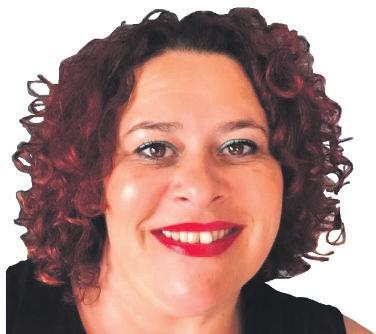
HomeAlbir help you find the home of your dreams. And if they cannot help you find it, they will tell you. They are that straightforward with all their clients.
HomeAlbir is like your ‘personal shopper’ for properties. It doesn’t matter whether they have it on their website or not, because if they don’t have

Contact Elena, +34 636 458 541 (phone or whatsapp) or homealbir@gmail.com (email) or www.homealbir.com (website) on all social media platforms. How many times have you tried to contact an agency and received no response?
it, they’ll search for it exclusively for you until you get the house you want.
That way, you’ll save a lot of time searching the internet and sending countless emails without a response.
Clients should enjoy their time, and HomeAlbir should work for them. And considering the price will be the same... So, why not do it?
And even if clients find a property on their own (which sometimes happens), HomeAlbir offers the option of reviewing all the documentation so that the entire purchase process is perfectly legal and clear. HomeAlbir takes care of preparing and/or requesting all the necessary information, so clients only have to go and sign their ‘dream’. HomeAlbir has been operating in the market for 11 years, with sales and also


rentals, always in a reliable, honest, sincere, and, of course, legal manner. They are registered in the Valencian Community as a Real Estate Agency and they are members of API.
HomeAlbir’s work area is Altea, Alfaz del Pi, El Albir, Benidorm, Finestrat, La Nucia, Polop, and Callosa d’en Sarria. If you’re looking to sell, buy, or rent a property, contact them. You’ll see that HomeAlbir is a completely different agency from the others.


MANY of our pet charges at HouseSit Match are used to having new companions come to their home to play with them. Dylan’s very friendly and simply loves to play. Could you be his next pet-sitting companion, pet-sitting like a friend? Read on to learn more.
HouseSitMatch saves you money
Our role at HouseSitMatch is to promote collaborative exchange enabling house-sitting and pet-sitting matches, through our managed online system. You experience free accommodation for free pet care! It means everyone benefits in that exchange.

HouseSitMatch is safe - all members are checked
All members are checked for safety, and you choose which house-sitters come to care for your pets in your absence.
Your pets stay at home - safe and undisturbed
All pets benefit from staying at
Dylan loves playing with petsitters - are you his next sitter?
home, so their routines are undisturbed.
If you’re planning travel this year, join now. Get organised today:
1. Register as a house-sitter or a homeowner on HouseSitMatch.com
2. Join for as little as £89 / €99 per year
3. Create a profile with photos 4. Sitters apply for the available house-sits, you hold a video interview via the site and match!
How does it work?
Join our network for a small annual fee. You get ID checked for safety, then house-sitters build a profile and homeowners build an advert to find sitters.
House-sitters see your advert, respond and you choose.
Trustpilot Testimonials - 4.8 / 5 Excellent
HouseSitMatch is an amazing community of caring and supportive people who can take care of your house and pets in exchange for accommodation. I’ve always met the loveliest people and never had any problems with handing over my house and my pet. Always in safe hands. Lamia is also very supportive and interacts directly with users of the website. Couldn’t recommend it more!
Dog owner - Juana Date of experience: June 6, 2025
How do you join? Register online via www.Housesitmatch.com
Need a pet-sitter? House-sitting is a win-win, free house and pet-sitting exchanged for free accommodation!
THERE is something instantly calming about stroking your cat or dog at the end of a long day. That soothing moment is more than just emotional comfort, it is a chemical reaction happening inside your brain and body that promotes feelings of calm, connection, and happiness.
When you stroke a pet, your brain releases oxytocin, often called the bonding or love hormone. This hormone plays a key role in reducing stress and increasing feelings of trust and well-being. At the same time, levels of cortisol, the stress hormone, begin to drop. This calming chemical mix helps slow your heart rate, reduce anxiety, and even lower blood pressure.
The repetitive motion of stroking also activates areas of the brain linked to pleasure and relaxation. These physical and mental responses can be especially powerful in moments of stress or loneliness,
THE most popular dog names in 2025 include Luna, Bella, and Charlie, with Max, Cooper, and Milo also frequently being chosen. Other popular choices include Daisy, Lucy, and Rocky. These names tend to be popular across various lists and are considered classic and timeless for both male and female dogs.

o ering a natural form of emotional support.
Whether you own a pet or are simply visiting one, spending time with animals o ers a proven, science-backed way to lift your mood and calm your mind.






Shutterstock / Chendongshan




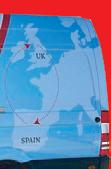






















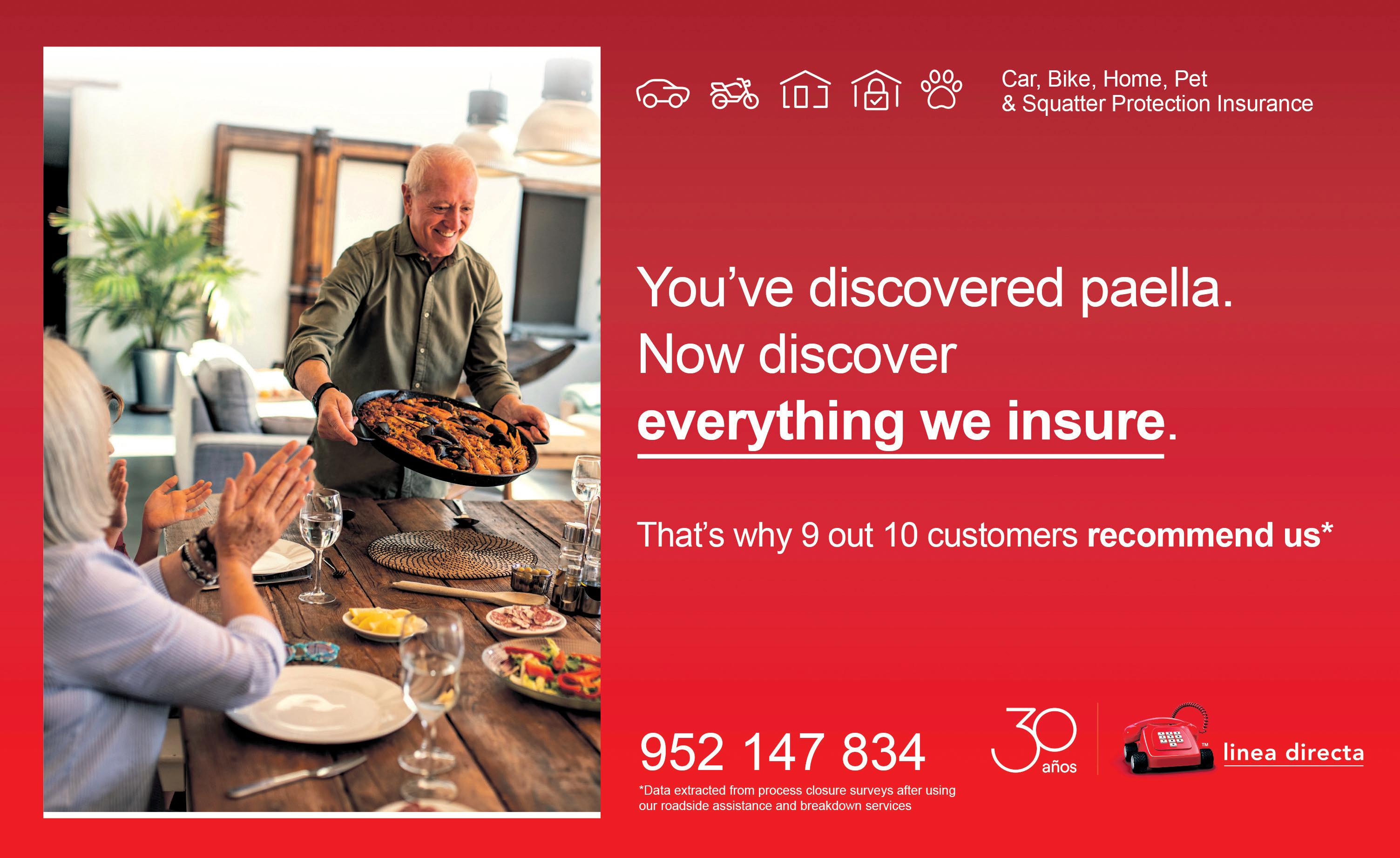













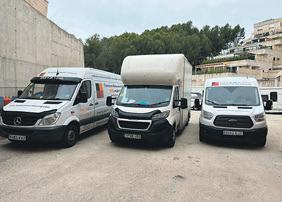




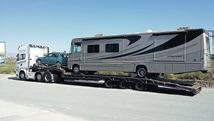






















































By Mark Slack
KIA has revealed prices and specifi cations for their new Sportage, the brand’s best-selling model in the UK, Europe and worldwide. The first customer deliveries due to begin later this year.
The new Sportage has undergone a mid-life refresh, with a new exterior and interior design, as well as the innovative technologies from Kia’s newest models.

The new model is priced from €35,764/£30,885 for petrol models, with the Hybrid (HEV) available to order from €39,867/£34,425 and the PHEV powertrain will also return to the UK line-up later in the year. Kia is also introducing a simplified three-tier line-up to the Sportage range, comprising ‘Pure’, ‘GT-Line’, and ‘GT-Line S’ models. For the first time, all three powertrainsICE, HEV and PHEV - will be available across every trim level in the line-up.
First on sale in the UK in 1995, and through five generations proving itself to be a firm favourite with motorists. Over its 30-year lifespan, Kia has sold more than 450,000 Sportage vehicles
in the UK alone, and more than seven million globally. Consistently the brand’s UK, Eu ropean and global best-seller and is currently the best-selling SUV in the country and the UK’s second most popular vehicle.
At the front, the latest version integrates a new front bumper and stacked LED headlight de sign, and LED ‘Star Map’ daytime running lights, replacing the boomerang-style DRLs of its predecessor. The grille has been enlarged, bringing Kia’s classic tiger nose to bring the Sportage’s appearance closer to other models in the brand’s line-up, such as
At the rear a redesigned bumper and skid plate to widen the appearance and road presence of the car. Its rear lights have been redesigned with the ‘Star Map’ aesthetic.
Inside, the touchscreen now features Kia’s new connected car Navigation Cockpit with new dual 31cm/12.3-inch screens with more squared-off corners than the units in the previous model. ‘Pure’ and ‘GT-Line’ models receive a 11cm/4.3-inch driver display.

the EV3, EV6, Sorento and Picanto. Along the side, the Sportage retains the same silhouette, but receives redesigned side cladding and trim beneath the doors.
The centre console, previously finished in glossy piano black plastic, has been swapped out for a brushed-effect finish, minimising the visual impact of dust and fingerprints. As usual, Kia will offer varying seat upholstery finishes dependant on grade, and the dashboard has been updated with new hidden air vent design.
A choice of three powertrains across all three trim levels are a 1.6-litre T-GDi and a 1.6-litre T-GDi Hybrid (HEV). The Hybrid pairs a 1.49kWh battery pack with the combustion engine, maximising refinement and efficiency. The Sportage Plug-in Hybrid (PHEV) will be offered later in 2025.






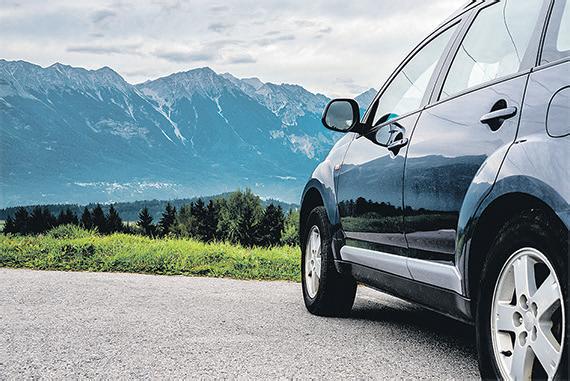

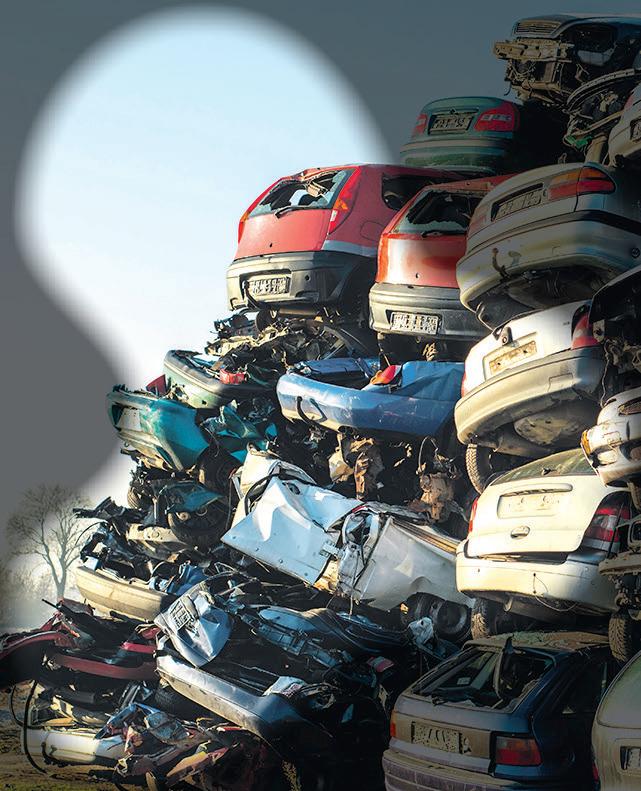



SALAMANCA has put the spin in speeding fines - and it’s all thanks to Spain’s first-ever average speed camera planted smack in the middle of a roundabout.
Yes, you read that right: La Dirección General de Tráfico (DGT) has installed the country’s first radar de tramo (average speed camera) on a roundabout, turning a humble rotary into one of the city’s biggest cash cows for fines in just six weeks.

The groundbreaking device has been set up at the Salamanca 20 urban motorway, specifically in the busy industrial hub of the Montalvo estate, where the autovía urbana, the southern ring road, and the A-50 all swirl together in a perfect storm of cars, lorries, and - it seems - easy targets for the DGT.
Race against the clock: 33 seconds to avoid a €100 sting
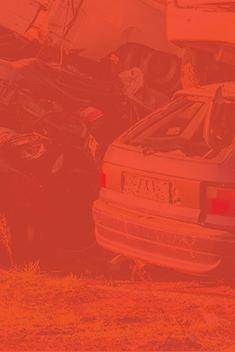

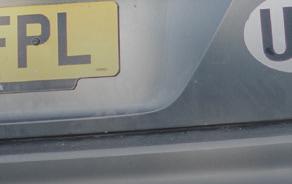

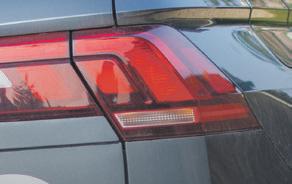





SPAIN’S Low Emission Zones now target even new diesel cars. Furious owners face driving bans despite buying ‘eco-friendly’ models with green labels.
They paid thousands for the latest ‘clean diesel’ cars - but now they’re being told to park up and stay home.

Spain’s war on diesel has taken a shock new turn - and this time, even the country’s newest diesel drivers are being dragged into the chaos.



Clean diesel? Not

Spain’s first-ever roundabout speed camera dishes out €100 fines every 30 seconds.
“This is strange, it’s surprising,” exclaimed motoring pundit Alfonso García ‘Motorman’ on COPE’s Poniendo las Calles, revealing that the radar covers a 461-metre stretch from kilometre 91.975 to 92.436 - with a strict 50 km/h limit. The catch? Anyone zipping through in less than 33.2 seconds gets slapped with a €100 fine. But don’t worry about losing your licence points - for now, it’s all about the money.
Fines fly: Salamanca’s third-biggest money-spinner in just 45 days Here’s the thing: this speed camera has only been live for a month and a half, yet it’s already Salamanca’s third most prolific fine machine.
clean enough!
For years, buyers were told that modern diesel engines - the so-called Euro 6 diesels - were the eco-friendly choice. Fitted with filters, advanced emission systems and proudly carrying Spain’s green C-label, these cars were marketed as a guilt-free alternative.
But as Spain’s Low Emission Zone (ZBE) rollouts gather pace, these drivers are now finding out their ‘green’ stickers won’t save them.



“I bought my diesel in 2017 thinking it was future-proof,” Jorge Lopez - a furious Madrid resident - told Euro Weekly News “Now I’m being treated like I’m driving a 20-year-old polluter. I feel completely conned.”
The bottom line
Spain’s diesel drivers - old and new - are discovering the hard way that no diesel is safe. The green C-label once promised freedom. Today, it’s starting to look like a ticking time bomb.
AS Spain gears up for the summer getaway season, fresh data from Madrid’s vehicle inspection network highlights a growing risk to holiday plans: car failures at the ITV (Spain’s version of the MOT). Nearly half of all vehicles inspected in Madrid this May needed fixes before they were cleared for the road. Tyres, lighting and emissions are the three main culprits, with more than 16 per cent failing on tyres, wheels, axles or suspension, and nearly 27 per cent flagged for lighting or signalling issues.
These aren’t just bureaucratic hurdles - they’re problems that could cut short your road trip or leave you stranded in the heat.
Summer temperatures are especially tough on cars. According to the Madrid Association of Vehicle Technical Inspection Companies (AEMA-ITV), high heat can sap tyre pressure and accelerate tread wear, shortening tyre life by up to 15 per cent. On long drives to the coast or countryside, the risk of a puncture or dangerous blowout climbs fast. The experts’ advice? Don’t wait for trouble. Check tyre pressure and tread before you leave, and look for any cracks or bulges. Take a few minutes for a garage check-up and you’ll avoid the nightmare of breaking down on a busy motorway.
Brakes were the fourth biggest reason for failed tests, with over 7 per cent of vehicles needing repairs. Meanwhile, emissions problems tripped up nearly a third of cars, showing safety checks aren’t just about avoiding fines - they’re about cleaner air, too.
THINKING of hitting the open road in Europe this summer? If your plans involve crossing from France into Spain, Italy, or Germany, a smooth holiday isn’t just about remembering your passport and playlist. Each country has its own driving rules and hidden requirements, and missing just one detail could land you with a hefty fine or an unexpected stop. Italy might seem like the land of laid-back food and sun, but on the road, the rules are strict. Tyres are a major headache: if you forget to swap winter tyres for summer ones once the weather warms up, you could face fines of up to €1,700. Heading through the Mont Blanc tunnel? Check ahead - closures are planned, and detours can be long. Italian bike racks also require a redand-white striped reflec-

tive board, even if the bikes are off.
Spain isn’t much simpler. You’ll still need warning triangles for breakdowns until January 2026, when a flashing beacon on the roof will become the law for Spanish cars. Hire vehicles may not include this, so double-check before setting off - forgetting could cost you €200. If you’re carrying bikes, you’ll need a special
Spanish sticker (not the same as Italy’s). Driving to Ibiza? No permit, no entry with your car. Germany, meanwhile, is all about preparation. Every car - tourist or local - needs a hi-vis vest for each passenger, a warning triangle, and a first aid kit. Many German cities require an Umweltplakette environmental sticker to enter, and the fines for skipping it aren’t worth the risk. If
you get pulled over, being polite and organised usually helps - keep all documents and stickers in a folder in your glovebox.
So do your homework before your trip. Make a checklist, pack your paperwork, and check each country’s latest requirements. Small mistakes can lead to big fines or holiday headaches. Safe travels, and enjoy the open road!

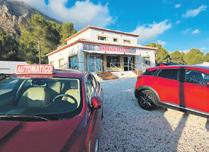
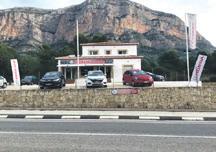









BRITISH fans had plenty to cheer about on Sunday July 6 as Lando Norris triumphed in a wild and unpredictable British Grand Prix at Silverstone. What started as a dry race quickly turned chaotic with on-and-off rain, strategy shake-ups, and dramatic twists.
Oscar Piastri looked set to take the win after leading most of the race, but a 10-second penalty for erratic driving behind the safety car handed victory to his McLaren teammate. While Piastri was clearly frustrated, it was all smiles for Norris, who soaked up the atmosphere in front of a thrilled home crowd. The real heartwarming story though came from Nico Hülkenberg. After 239 races without a podium, the Sauber
driver finally got his long-awaited top three finish, bringing a wave of emotion across the F1 world.
The 37-year-old veteran drove smartly and kept it clean in tricky conditions, well done him! Max Verstappen, who started on pole, spun mid-race and considering it could have been a lot worse he had to settle for fifth, Lewis Hamilton brought Ferrari home in fourth.
With Piastri and Norris now just eight points apart in the championship, and McLaren clearly on a roll, the title fight is heating up. But on Sunday, it was Norris’s moment, a home hero in front of a drenched but roaring Silverstone crowd.
THE world of motorsport is mourning the sudden and tragic loss of Spanish motorcycle racer Borja Gómez, who died on Thursday July 3, during a training session at the Magny-Cours circuit in France. He was just 20 years old.
Gómez, from San Javier in Murcia, was participating in a free practice session ahead of a European Stock 600 competition when he suffered a crash in a corner and was subsequently struck by another rider. Emergency services responded immediately, but the young racer was pronounced dead at the scene.
Gómez was considered one of Spain’s brightest up-and-coming talents. He led both the European Stock 600 series and the Spanish ESBK championship this season, with four ESBK victories already to his name.
He previously claimed the Supersport class tit-

le in the 2021 Spanish Superbike Championship and made his Moto2 World Championship debut in 2022. His team, Honda Laglisse, expressed deep sorrow over the loss, remembering his ‘exceptional talent and humility’. The wider motorcycling world responded with an outpouring of grief and admiration, with heartfelt tributes shared by stars such as Marc and



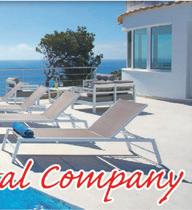
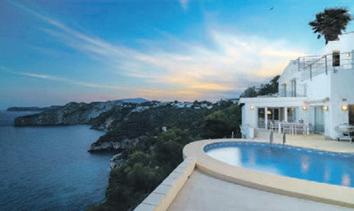
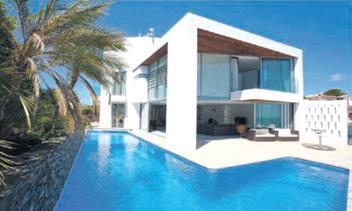
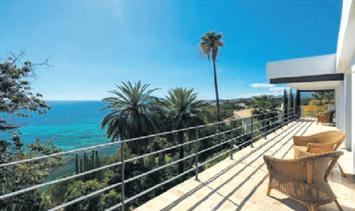
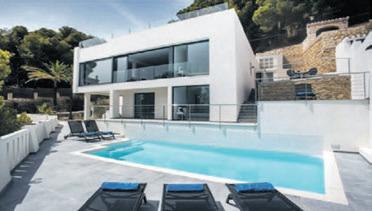
Álex Márquez, Jorge Martín and Tito Rabat. Social media has been flooded with messages honouring the young rider, describing him as ‘a champion on and off the track’.
Borja Gómez’s legacy will live on in the hearts of fans, teammates, and fellow competitors remembered for his fearlessness, kindness, and a future that ended far too soon.
